Our biggest USP lies in providing consistent quality delivered at the right price ..
Our biggest USP lies in providing consistent quality delivered at the right price ..
In an interviwe to infastructure line
Jayanta Ray explains the importance of selecting the right hydraulic fluid to protect the equipment in challenging conditions.
the needs of lubricant marketers to meet more regulatry standerds and challenging spacification is growing
which user segments are the biggest demand drivers for your product, and demands made by end users
Global perspective and trends in the lubricants industry
Energy has been mankind's constant companion and will continue to be crucial in the future.
Oems have been under considerable pressure to offer engine that are more durable more fule efficint and produce less emmision than before .

Is Your Car Engine Oil Keeping Your Ride Smooth? Find Out Now!
Hey there, fellow car enthusiasts! Today, let's dive into a topic that's often overlooked but crucial for your vehicle's health and performance – Car Engine Oil. It's the lifeblood of your engine, and knowing the right questions to ask can make all the difference. So, let's roll up our sleeves and get to the nitty-gritty!
What's the Right Engine Oil for My Car?
Why Does the Grade (e.g., 10W-40) Matter?
How Often Should I Change My Car's Engine Oil?
What Happens If I Use the Wrong Engine Oil?
How Does Engine Oil Quality Affect Performance?
What's the Deal with Synthetic vs. Conventional Oil?
How Does Engine Oil Affect Fuel Efficiency?
What's the Deal with Car Engine Oil Prices?
Is DIY Oil Change Worth the Effort?
Choosing the right engine oil is like picking the perfect pair of shoes – it has to fit just right. Different cars have different needs, so consider factors like viscosity, additives, and manufacturer recommendations. A trusted brand like GS Caltex India offers a range of options, ensuring you find the best engine oil for your specific make and model.
Ever wondered what those numbers on the engine oil bottle mean? They represent viscosity or the oil's thickness. For example, a 10W-40 oil is suitable for various temperatures. Understanding this can help your engine perform optimally, no matter the weather.
This one's a game-changer. Regular oil changes are like spa days for your engine. They keep it running smoothly and help extend its lifespan. The frequency depends on factors like driving habits, climate, and the type of oil used. GS Caltex India recommends a change every 3,000 to 5,000 miles for conventional oil and up to 15,000 miles for synthetic blends.
Picture this: you wouldn't wear a winter coat in the summer, right? Using the wrong engine oil can lead to reduced lubrication, increased wear and tear, and even engine damage. Always consult your owner's manual or a trusted mechanic to ensure you use the correct type.
Top-quality engine oil is like a symphony conductor, ensuring all engine components work harmoniously. It reduces friction, minimises wear, and prevents overheating. GS Caltex India takes pride in producing high-quality engine oils that meet and exceed industry standards, giving your car the performance boost it deserves.
It's like choosing between a gourmet meal and fast food. Synthetic oils offer superior performance, especially in extreme conditions, but come at a slightly higher price point. Conventional oils, while more budget-friendly, may require more frequent changes. Knowing the pros and cons can help you make an informed decision.
Ever wanted your car to be a bit more fuel-efficient? Well, it starts with the engine oil. High-quality oils reduce friction and improve engine efficiency, leading to better gas mileage. GS Caltex India's range of engine oils is designed with efficiency in mind, helping you go that extra mile.
Budget-conscious drivers, this one's for you. The Car Engine Oil Price can vary widely, but remember, quality trumps quantity. Investing in a reputable brand like GS Caltex India might mean a slightly higher upfront cost, but the long-term benefits of engine health and performance are well worth it.
Look no further than GS Caltex India. As one of the industry's leading engine lubricant manufacturers, they offer a wide range of high-quality engine oils tailored to your car's specific needs. Visit their website or consult a local dealer to find the perfect match for your vehicle.
Taking care of your is like investing in its longevity and performance. With the right knowledge and the best products from GS Caltex India, you're well on your way to ensuring your ride stays smooth for years. Don't hesitate – give your engine the love it deserves!
Find Your Car Engine OilReady to give your car the best engine oil it deserves? Visit GS Caltex India's website or contact a local dealer today! Your car will thank you later.
1. What's the difference between synthetic and conventional engine oil, and which one should I choose for my car?
Synthetic oil is chemically engineered for uniform molecular structure, offering superior performance and protection. It provides better high-temperature stability and flows more smoothly at low temperatures, enhancing engine efficiency. Conventional oil, on the other hand, is derived directly from crude oil and is refined. It's more budget-friendly but may require more frequent changes.
The choice depends on your driving habits, climate, and the manufacturer's recommendations. Synthetic oil is the way to go if you want optimal performance, especially in extreme conditions. However, conventional oil can be a suitable choice if you're on a budget and don't drive under extreme conditions.
2. How often should I change my car's engine oil, and does it vary based on the type of oil I use?
The frequency of oil changes depends on several factors, including driving habits, climate, and the type of oil used.
Changing it every 3,000 to 5,000 miles is generally recommended for conventional oil. For synthetic blends or high-quality synthetic oils: They offer extended service intervals, often up to 15,000 miles. However, always refer to your car's owner's manual for manufacturer-specific recommendations.
3. Why is it important to choose the right engine oil viscosity, and how does it impact my car's performance?
Viscosity refers to the oil's thickness or resistance to flow. It's represented by numbers like 10W-40. The 'W' represents winter, indicating how the oil performs in cold temperatures. The lower the number, the better it flows in cold weather. The second number indicates how it performs at operating temperature.
Choosing the right viscosity ensures proper lubrication and protection for your engine. Using an oil with the wrong viscosity can lead to issues like increased friction, wear, and even potential engine damage, particularly during startup in cold weather.
4. How does using high-quality engine oil affect my car's fuel efficiency and overall performance?
High-quality engine oil is crucial in enhancing fuel efficiency and overall performance. It reduces friction between moving parts, which in turn reduces energy loss. This means your engine operates more efficiently, potentially leading to better gas mileage. Additionally, top-quality oils have additives that clean and protect the engine, ensuring it performs at its best for longer.
5. Where can I find reliable information on which engine oil is best for my specific make and model of car?
A trusted source for such information is your car's owner's manual. It provides detailed specifications, including engine oil's recommended type and viscosity. Additionally, reputable engine lubricant manufacturers like GS Caltex India often provide online resources, including tools or guides on their websites, to help you find the right engine oil for your specific car make and model. You can also consult a local mechanic or an expert at an authorised service centre for personalised recommendations.
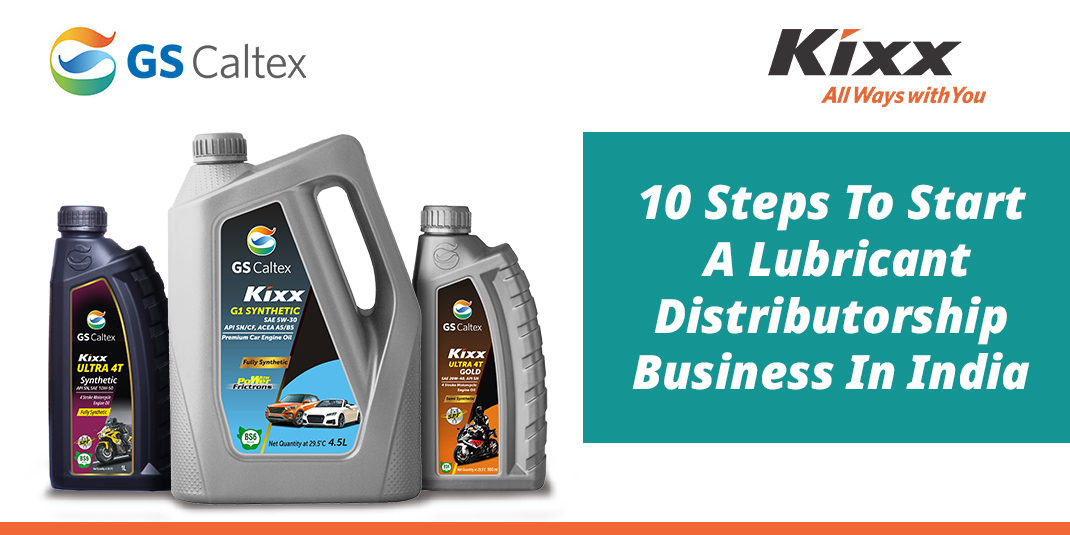
The lubricant industry in India is experiencing steady growth, presenting a promising opportunity for aspiring entrepreneurs who wish to become distributors in this sector. Becoming a lubricant distributor allows you to tap into a lucrative market and establish a successful business. In this informative and promotional blog post, we will outline the key steps to becoming a distributor in the lubricant business in India. By following these steps, you can embark on a rewarding journey in the lubricant industry and build a thriving distribution network.
Begin by conducting thorough research and analysis of the lubricant market in India. Identify potential competitors, understand market trends, and gain insights into customer preferences. This research will help you select the right lubricant brand to distribute and develop a strategic business plan.
Choose a reputable lubricant brand that aligns with your business goals and values. Consider factors such as brand reputation, product quality, range of offerings, marketing support, and pricing. Collaborating with a well-established brand will provide you with a competitive advantage and instill confidence in your customers.
Reach out to the lubricant manufacturer whose brand you wish to distribute. Initiate discussions and express your interest in becoming a distributor. Provide details about your business plan, market research, and your ability to meet the manufacturer's requirements. A strong business proposal and a convincing presentation can significantly enhance your chances of securing a distributorship.
Become a DistributorOnce you establish contact with the lubricant manufacturer, carefully review their distributorship requirements. This may include financial investments, infrastructure, storage facilities, transportation capabilities, and marketing commitments. Assess whether you meet these requirements and determine the feasibility of fulfilling them.
Create a comprehensive business plan that outlines your distribution strategy, target market, sales and marketing approach, operational processes, and financial projections. A well-crafted business plan will not only serve as a roadmap for your operations but also demonstrate your commitment and professionalism to the lubricant manufacturer.
Assess your financial capabilities and explore funding options if necessary. Seek financial assistance from banks, venture capitalists, or government schemes that support small businesses and entrepreneurs. Prepare a detailed financial projection to showcase the potential return on investment and attract potential investors or lenders.
Ensure that you have the necessary infrastructure, including storage facilities, warehousing space, and a distribution network. Obtain the required licenses and permits to operate as a lubricant distributor. Comply with all legal and regulatory requirements imposed by the government and industry authorities.
Finalize the distributorship agreement with the lubricant manufacturer. Review the terms and conditions, pricing policies, distribution territories, and any other relevant clauses. Seek legal advice if needed to ensure that the agreement is fair and beneficial to both parties.
Create a robust marketing and sales plan to promote your lubricant products effectively. Utilize various marketing channels such as digital marketing, advertising, trade shows, and partnerships with local mechanics, automobile workshops, and industrial clients. Build strong relationships with customers by offering excellent service and technical support.
Focus on providing exceptional customer service to build long-term relationships and ensure customer satisfaction. Offer technical guidance, timely delivery, and after-sales support to gain customer loyalty and trust. Happy customers can become your brand advocates, driving more business and referrals.
By choosing GS Caltex India as your distributor partner, you gain access to a wide range of superior lubricant products that cater to various industries and applications. GS Caltex's extensive product portfolio includes automotive lubricants, industrial lubricants, marine lubricants, and specialty lubricants, ensuring that you can meet the diverse needs of your customers.
Partnering with GS Caltex India also means benefiting from their strong brand reputation and comprehensive support system. They provide marketing support, technical training, and regular updates on industry trends and product advancements. With their guidance and resources, you can effectively promote and sell GS Caltex's lubricant products, gaining a competitive edge in the market.
Moreover, GS Caltex India places great emphasis on sustainability and environmental responsibility. Their lubricant formulations are designed to minimize environmental impact while delivering optimal performance. By aligning your business with GS Caltex India, you demonstrate your commitment to sustainable practices and meet the growing demand for eco-friendly lubricant solutions.
As a distributor-partner of GS Caltex India, you become part of a trusted network of professionals dedicated to delivering excellence in lubricant distribution. You can leverage their strong distribution channels, logistics support, and after-sales service to ensure seamless operations and customer satisfaction.
In conclusion, as you navigate the steps to become a distributor in the lubricant business in India, consider the advantages of partnering with GS Caltex India. Their industry expertise, exceptional product range, comprehensive support, and commitment to sustainability make them an ideal distributor partner. By joining forces with GS Caltex India, you can establish a successful lubricant distribution business, offering top-quality products and services to your customers. Together, you can drive growth, profitability, and customer satisfaction in the dynamic lubricant market of India.
Changing engine oil at regular intervals not only helps in extracting the best performance and fuel efficiency, but also enhances the life of the engine and adds to the resale value of the vehicle
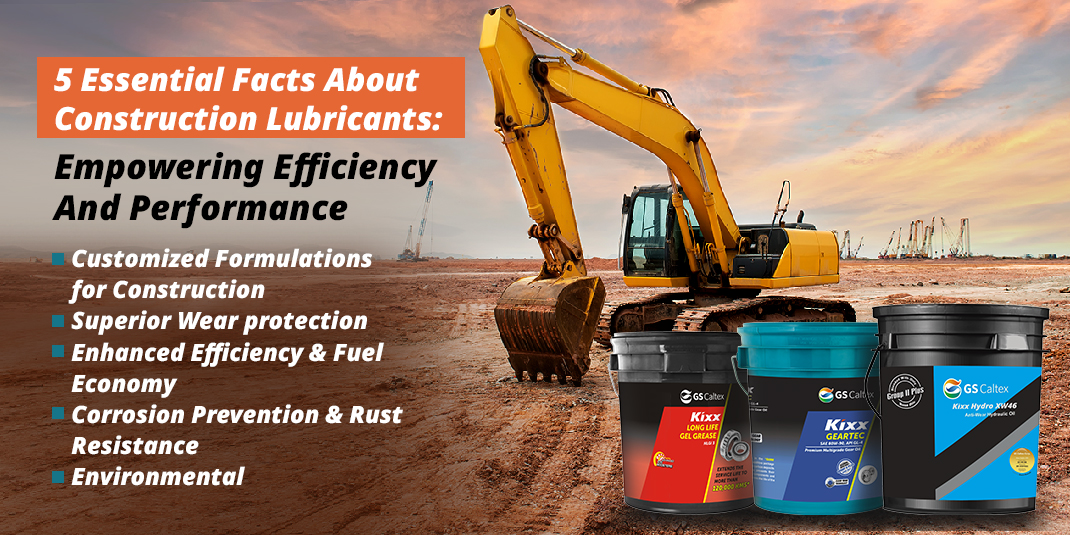
In the dynamic world of construction, the role of high-quality lubricants cannot be overstated. Construction equipment and machinery operate under demanding conditions, requiring reliable lubrication to ensure smooth operation, minimize downtime, and optimize performance. In this blog, we will explore five key facts about construction lubricants and shed light on the valuable contributions of GS Caltex India in this field.
Construction lubricants are specifically designed to meet the unique demands of heavy-duty equipment used in construction projects. They are engineered to withstand extreme pressures, high temperatures, and harsh environments. GS Caltex India, a leading provider of lubricant solutions, offers a wide range of construction lubricants formulated to enhance equipment performance and durability.
Construction machinery is subjected to significant wear and tear during operation. Construction lubricants play a crucial role in reducing friction and protecting vital components such as engines, gears, and hydraulic systems. GS Caltex India's construction lubricants are formulated with advanced additive technologies that provide exceptional wear protection, prolonging the lifespan of equipment and reducing maintenance costs.
Efficiency is paramount in the construction industry, where productivity and cost-effectiveness are crucial. High-quality construction lubricants, such as those offered by GS Caltex India, are designed to minimize energy losses caused by friction and optimize fuel economy. By reducing internal friction, these lubricants help maximize equipment performance, resulting in improved operational efficiency and reduced fuel consumption.
Construction sites often expose equipment to harsh elements, including moisture, dirt, and corrosive agents. Construction lubricants act as a protective barrier, guarding against corrosion and rust formation. GS Caltex India's construction lubricants are fortified with corrosion inhibitors, ensuring that critical components remain well-protected and prolonging the equipment's service life.
In today's environmentally conscious world, the construction industry is striving to reduce its ecological footprint. GS Caltex India is committed to sustainability and offers construction lubricants that meet or exceed environmental regulations. These lubricants are formulated with low-toxicity additives and are designed to minimize emissions, ensuring compliance with environmental standards without compromising performance.
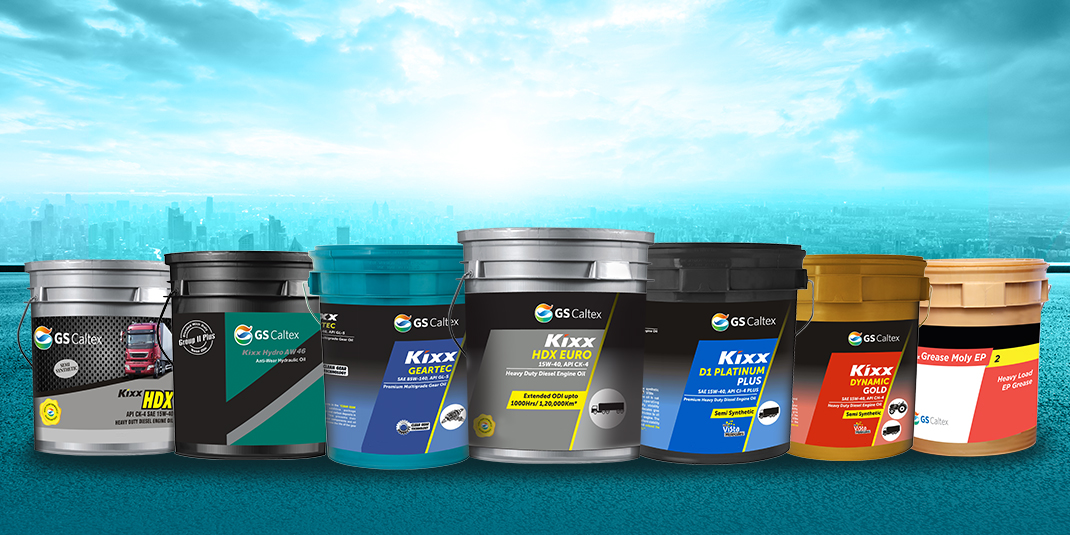
As a leading player in the lubricant industry, GS Caltex India has a proven track record of delivering high-performance lubricants for construction applications. Their extensive range of construction lubricants is developed through rigorous research and development, adhering to the highest quality standards. With a deep understanding of the construction industry's unique challenges, GS Caltex India provides tailored lubricant solutions that enable construction companies to achieve optimal equipment performance, maximize productivity, and reduce maintenance costs.
Construction lubricants play a vital role in the efficiency, performance, and durability of construction equipment. GS Caltex India, with its expertise and commitment to excellence, offers a comprehensive range of construction lubricants tailored to meet the industry's specific requirements. By choosing GS Caltex India's construction lubricants, construction companies can benefit from superior wear protection, enhanced efficiency, corrosion prevention, and environmental compliance. Trust GS Caltex India to empower your construction projects with lubricant solutions that deliver exceptional performance and reliability.
Q1: How do construction lubricants empower efficiency?
Construction lubricants play a crucial role in enhancing the efficiency of construction equipment. By reducing friction and wear, they minimize energy losses and allow the machinery to operate at optimal performance levels. This leads to improved fuel efficiency, reduced downtime, and increased overall productivity on construction sites.
Q2: What are the key benefits of using heavy-duty lubricants in construction?
Heavy-duty lubricants offer several benefits in construction applications. They provide superior protection against wear and corrosion, extending the lifespan of equipment components. They also reduce maintenance requirements and associated costs. Additionally, these lubricants can handle extreme operating conditions, ensuring reliable performance even in high temperatures, heavy loads, and dusty environments.
Q3: How do construction lubricants contribute to equipment performance?
Construction lubricants contribute to equipment performance by providing effective lubrication to moving parts, minimizing friction and heat generation. This results in smoother operation, reduced noise, and vibration levels, which enhances the overall performance and reliability of construction machinery. Lubricants with appropriate viscosity and additives can also enhance the load-carrying capacity of the equipment.
Q4: What factors should be considered when selecting construction lubricants?
When selecting construction lubricants, several factors should be considered. These include the specific application and equipment type, operating conditions (such as temperature, load, and speed), manufacturer recommendations, and industry standards. It is important to choose lubricants that meet or exceed the equipment manufacturer's specifications to ensure optimal performance and longevity.
There are many choices when it comes to picking the appropriate oil for your car's engine. Our guide breaks down your choices to help you in the quest to...

When choosing the right oil for your car's engine, there are many options. Our guide dissects your options to assist you in your quest to change your oil.
Knowing your car's make and model is the first step in selecting the appropriate engine oil. In order to increase efficiency, new high-performance engines are being developed, and newer oil formulations have been created to support these advancements.
Consider the circumstances you typically encounter when driving, regardless of whether you live in a hot or cold climate or typically travel on paved or unpaved roads. Your car may be put under stress by a variety of factors, such as the need for frequent oil changes. When choosing the best type of motor oil for you, it's crucial to take into account the circumstances in which you live and drive.
When selecting the best engine oil, it's crucial to be aware of the weather and driving conditions.
You can select between mineral and synthetic engine oil once you are aware of the vehicle's make and model. Your choice of oil type is crucial because base oil makes up between 80% and 90% of an engine oil's composition. Knowing which type of oil best suits your car and driving style is essential because each has advantages and disadvantages.
You might encounter confusing codes with numbers and letters on the packaging when comparing engine oil products. These show viscosity grade, an indication of the oil's flow resistance. When looking for the best engine oil, it is a crucial factor to take into account, along with the weather and driving conditions.
The viscosity of an oil is determined by two numbers. Winter is represented by the letter "W" at the end of the first number. This measurement has to do with how cold oil flows, like when an engine is starting up. The flow of oil at typical operating temperatures determines the second number.
In order to protect engine parts at colder temperatures, thin, low-viscosity oils flow more easily. In order to protect engines at higher temperatures, thick, high-viscosity oils are typically better at maintaining film strength. By checking the oil cap or the owner's manual, you can determine the proper viscosity for your car.
Engine oil standards are also indicated by various acronyms like API, ACEA, and ILSAC if you look more closely at the label. This indicates that the product satisfies or surpasses these organizations' standards. Specifications are crucial because they reveal the oil's performance and quality.
API( American Petroleum Institute) and ACEA ( Association des Constructeurs Européens) are the two most widely used standards.
It can be challenging to choose the right engine oil for your car, but doing so will increase engine life and improve engine performance. The next time you're looking for the best oil to improve your engine's performance, keep these 5 factors in mind.

There are many choices when it comes to picking the appropriate oil for your car’s engine. Our guide breaks down your choices to help you in the quest to change your oil.

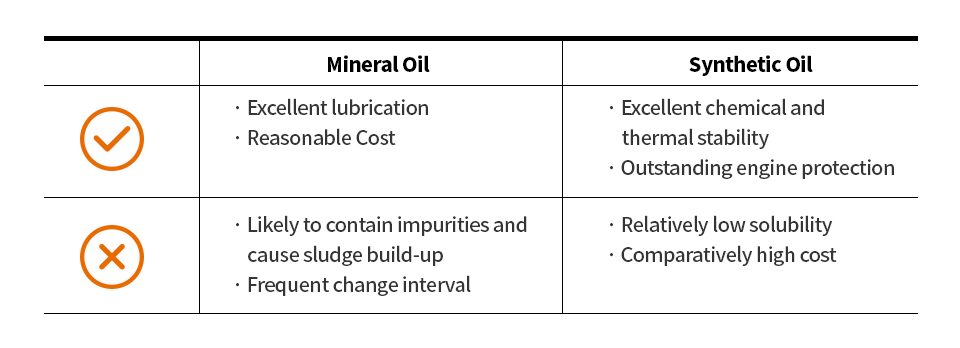
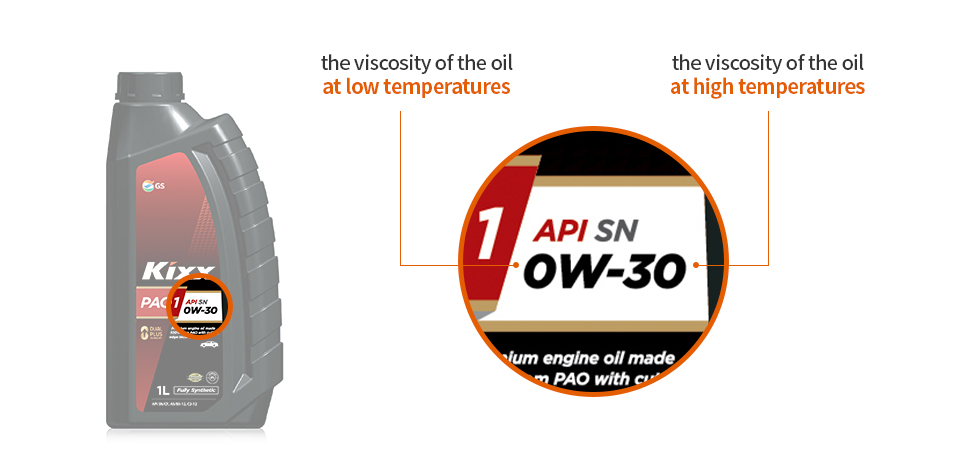 There are two numbers that define the viscosity of an oil. The first number ends with the letter ‘W’, which stands for Winter. This measurement is related to how an oil flows when it is cold, such as on engine start-up. The second number is defined by how an oil flows at normal operating temperatures.
Thin, low viscosity oils flow easier to protect engine parts at colder temperature. Thick, high viscosity oils are typically better at maintaining film strength to protect engines at higher temperatures. You can find the right viscosity for your vehicle by looking on the oil cap or in the owner’s manual.
There are two numbers that define the viscosity of an oil. The first number ends with the letter ‘W’, which stands for Winter. This measurement is related to how an oil flows when it is cold, such as on engine start-up. The second number is defined by how an oil flows at normal operating temperatures.
Thin, low viscosity oils flow easier to protect engine parts at colder temperature. Thick, high viscosity oils are typically better at maintaining film strength to protect engines at higher temperatures. You can find the right viscosity for your vehicle by looking on the oil cap or in the owner’s manual.
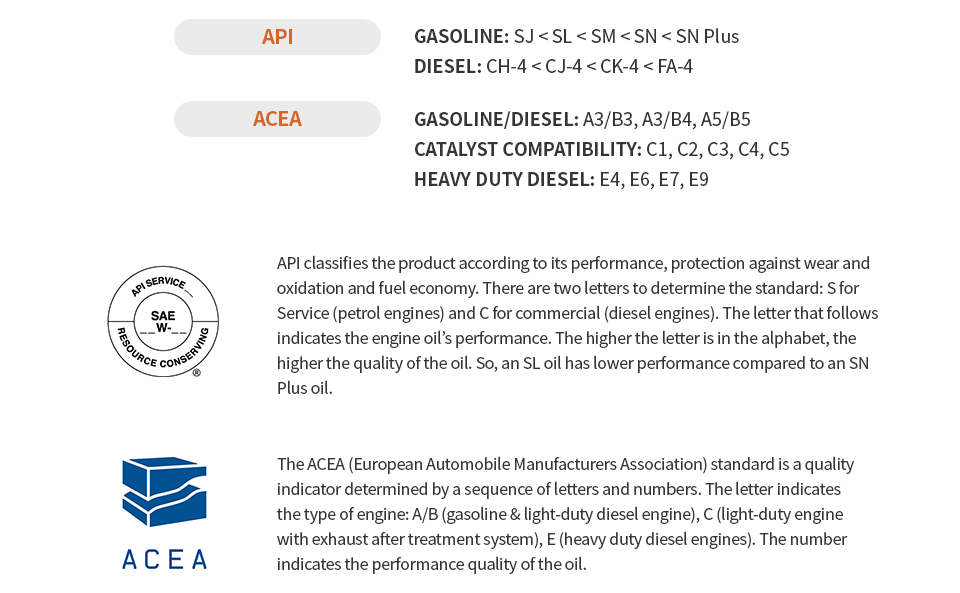 Understanding engine oil and making the right choice for your car can be difficult but choosing the right engine oil will extend engine life and allow your engine to operate efficiently. Keep these 5 considerations in mind the next time you’re looking for the right oil to optimize the performance of your engine.
Understanding engine oil and making the right choice for your car can be difficult but choosing the right engine oil will extend engine life and allow your engine to operate efficiently. Keep these 5 considerations in mind the next time you’re looking for the right oil to optimize the performance of your engine.

Selecting an appropriate compressor oil is significant. It has a considerable impact on the overall performance of your machine. Compressor oils are excellent lubricants that help maintain your compressor. It reduces the wear and tear of your compressors. They are ideal for oil-flooded screws as well as vane compressors. Moreover, Compressor oil can efficiently decrease friction, reduce energy and maximise the life of a compressor. Hence, making the right choice and connecting with the lubricant manufacturers in India for quality Compressor oils is vital. Here’s a guide that can help you to choose the best compressor oil:
Compressor oils are of two types standard and synthetic. Both have distinct characteristics. It is essential to know the difference and features of each one of them before opting for a Compressor oil.
Compressor oils are one of the best things to improve the lifespan of your compressor. Replacing the Compressor oil regularly can help you maintain your machine better and reduce deposits. Study the components and specifications of your machine in detail to make the most suitable and smart choice. Look at the Best Compressor Oils from GS Caltex India, or Head to www.gscaltexindia.com for More info.
Ajax fiori engineering (india) private limited

How Mining Lubricants Pave the Way for Unparalleled Equipment Reliability and Safety!
Greetings, fellow enthusiasts of the engine oil realm! Today, I'm thrilled to dive into a topic that often flies under the radar: the indispensable role of mining lubricants in bolstering equipment reliability and safety. While we often associate lubricants with smooth operation, their impact on mining operations goes far beyond mere lubrication.
Allow me to guide you through a journey exploring the intricate web of benefits these Industrial Oils bring to the mining industry.
Call to Action: Elevate Your Mining Operations with GS Caltex India
Related Article:- Importance Of Lubricants In Mining Equipment
Why are industrial lubricants crucial in the mining industry?
Industrial lubricants are vital because they reduce friction, enhance operational efficiency, and extend the lifespan of mining equipment, ultimately contributing to safety and cost savings.
How do specialised formulations cater to the unique needs of mining operations?
Specialised formulations are designed to address the specific challenges posed by different mining equipment, environments, and applications. They ensure optimal performance under the most demanding conditions.
What role do mining lubricants play in environmental sustainability?
High-quality mining lubricants with low-friction formulations and advanced additives contribute to energy conservation and reduce waste, aligning with environmental stewardship efforts.
Why is GS Caltex India recognised as a leading engine lubricant manufacturer?
GS Caltex India is esteemed for its unwavering commitment to quality and innovation, offering a diverse range of meticulously crafted products tailored to meet the unique demands of mining operations.
How do industrial lubricants contribute to safety in mining?
Industrial Lubricants play a crucial role in preventing accidents and maintaining a secure working environment in the mining industry by ensuring smooth and predictable equipment operation. Embark on a journey of reliability, efficiency, and safety with the power of mining lubricants. Together, let's redefine excellence in mining operations. Choose GS Caltex India, and choose unmatched quality.
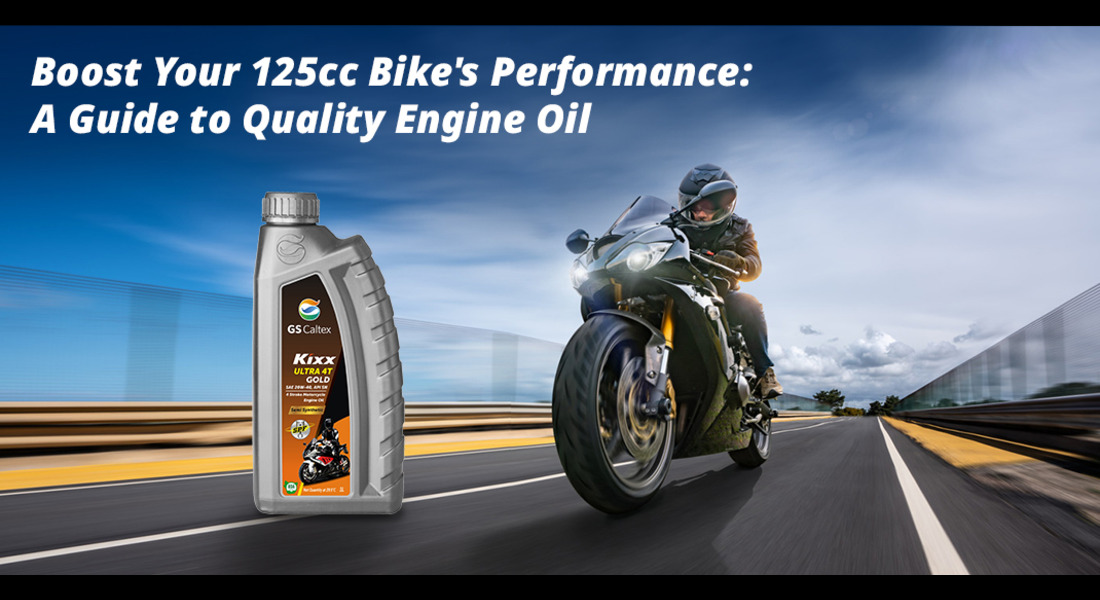

Why Engine Oil Matters: Your Car's Lifeline
Viscosity: The Thickness Matters
API and ACEA Ratings: Decoding Performance
Myth about Buying Engine Oil: How to Buy Engine Oil
Replacement Cycle of Engine Oil
Should you Replace Engine Oil if Driving a Car for Less Kms?
 Lubrication: Engine oil lubricates moving parts within the engine, reducing friction and preventing wear and tear. Without proper lubrication, these components would grind against each other, leading to damage and reduced performance.
Lubrication: Engine oil lubricates moving parts within the engine, reducing friction and preventing wear and tear. Without proper lubrication, these components would grind against each other, leading to damage and reduced performance.Find Your Motorcycle Engine Oil
 Most modern cars perform well with a 5W-30 or 5W-40 oil. However, it's essential to consult your car's owner's manual or the manufacturer's recommendations to ensure you're using the right viscosity for your specific vehicle.
Most modern cars perform well with a 5W-30 or 5W-40 oil. However, it's essential to consult your car's owner's manual or the manufacturer's recommendations to ensure you're using the right viscosity for your specific vehicle.
 In conclusion, choosing the best engine oil for your petrol car in 2023 is a matter of understanding your vehicle's needs, following manufacturer recommendations, and considering trusted brands like GS Caltex India. Your car deserves the best care, and using the right engine oil will ensure it continues to run smoothly and efficiently for years to come. So, go ahead and give your car the attention it deserves and hit the road with confidence!
In conclusion, choosing the best engine oil for your petrol car in 2023 is a matter of understanding your vehicle's needs, following manufacturer recommendations, and considering trusted brands like GS Caltex India. Your car deserves the best care, and using the right engine oil will ensure it continues to run smoothly and efficiently for years to come. So, go ahead and give your car the attention it deserves and hit the road with confidence!
Q1: Is synthetic oil better than mineral oil for my petrol car?
In most cases, yes. Synthetic oil offers superior performance and protection.
Q2: Can I switch from mineral to synthetic oil?
Yes, you can, but consult your car's manual and a professional mechanic for guidance.
Q3: How often should I check my engine oil level?
It's a good practice to check it every few weeks, especially if you drive frequently.
Q4: Can I mix different brands of engine oil?
While it's best to stick to one brand, mixing oils is generally safe if they have the same viscosity and performance ratings.
Q5: Is it okay to use a higher viscosity oil than recommended?
It's not recommended, as it can affect engine performance and fuel efficiency.
Have you ever found yourself facing a low engine oil warning shortly after topping up? Maybe you’ve found oil leak stains spotting the ground where your car was parked....

Have you ever found yourself facing a low engine oil warning shortly after topping up? Maybe you’ve found oil leak stains spotting the ground where your car was parked. Pay close attention, because these are signs of car oil leak, and trying to drive a vehicle with a major oil leak – even a short distance – can do massive damage to your engine. Driving with low engine oil could mean depriving your vehicle of lubrication and stopping heat from circulating, leading to major drops in engine performance.
The good news is that most car oil leaks start small. In fact, a puddle between 1 to 2 inches in diameter, or what’s referred to as “seepage,” usually don’t represent an immediate threat to your engine.
Here are a few of the reasons your engine might be leaking oil unexpectedly.

More often than not, a sudden oil leak after oil change is caused by a malformed or cracked gasket. Gaskets are usually made of urethane or rubber, and they can harden over time. This can cause them to crack when they are exposed to sudden impact or extreme temperature changes, like the transition from a harsh winter to a hot summer. Since the gasket can no longer seal in the oil properly, it drips and spills out underneath your car – depleting engine oil levels slowly over time and leaving you with those shining puddles on the asphalt.
After examining your valves, the gasket is the first place to look for trouble when you suspect an oil leak.

Another place to look when finding the source of an oil leak is the oil filter. Worn metal powders and other small particles often get mixed into the engine oil over time. It’s the oil filter’s job to parse these out and keep your engine oil supply free of contaminants. But when the oil filter is installed too loosely, it can start to cause leaks and allow oil to flow in places it’s not meant to be.
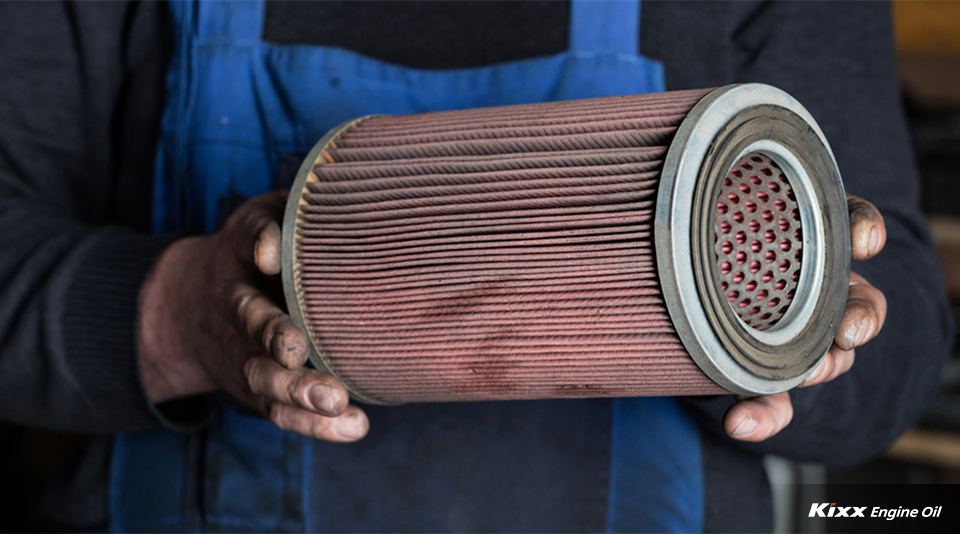
If your oil filter is leaking, try tightening it using your hands and a dry towel. If the oil filter still leaks, you may need to go deeper by removing the oil in your vehicle, replacing the oil filter, and then adding in new oil – essentially giving your vehicle an oil and a filter change all at once. Spraying lubricant around the base of the oil filter may tell you whether there any tiny leaks in the seal. If you do check the drain plug and oil filter but you don’t find any leaks, you may need to remove the oil pan and check the gasket.
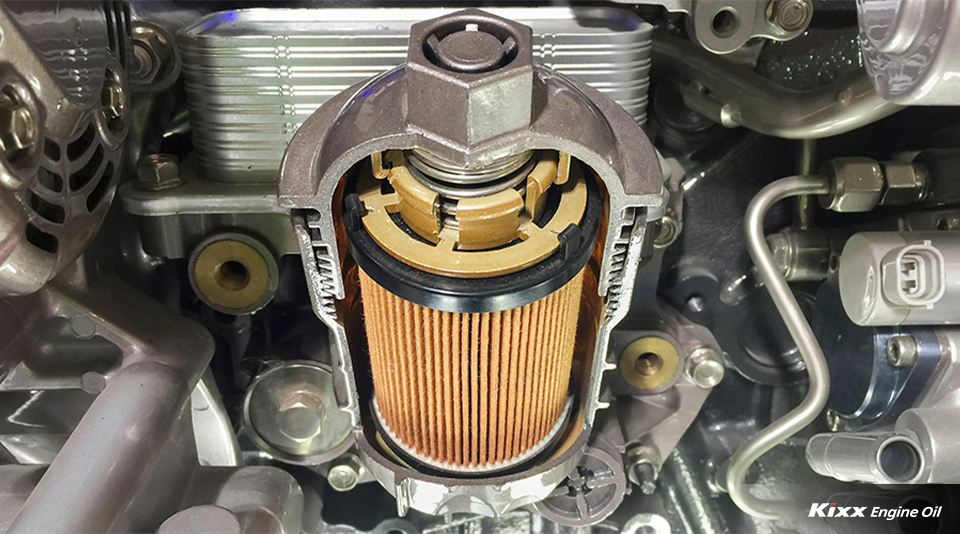
Driving in highly saline places like along the coast of an ocean can also lead to more oil leaks than driving further inland. The salty conditions corrode the metal parts of your engine faster than usual, which can decrease the durability of your vehicle’s parts and lead to more frequent leaks. Of course, going to the beach once or twice during summer won’t cause you any problems. But if you happen to live in a coastal area, park near the beach, or drive seaside roads frequently, it may be beneficial to pay closer attention to what’s going on under your car.
Long drives in cold areas or excessive acceleration at cold temperatures can also put additional strain on the gasket and other systems, eventually leading to reduced durability and potentially resulting in engine oil leaks.

If you find signs of an oil leak, the best thing you can do is find the culprit right away. After discovering the faulty part, you should have it replaced or repaired immediately. In extreme situations you may consider using an engine oil stop, but this is only a temporary measure and won’t resolve the root cause of the problem.
Since small leaks can be tough to find, regular engine inspection and maintenance is your best way to prevent surprises and stop minor car oil leaks from becoming major ones. Checking your engine oil levels through the engine oil gauge and inspecting the bottom of your car when changing your engine oil can also go a long way to helping you avoid leaks and keep your vehicle running safely for longer.
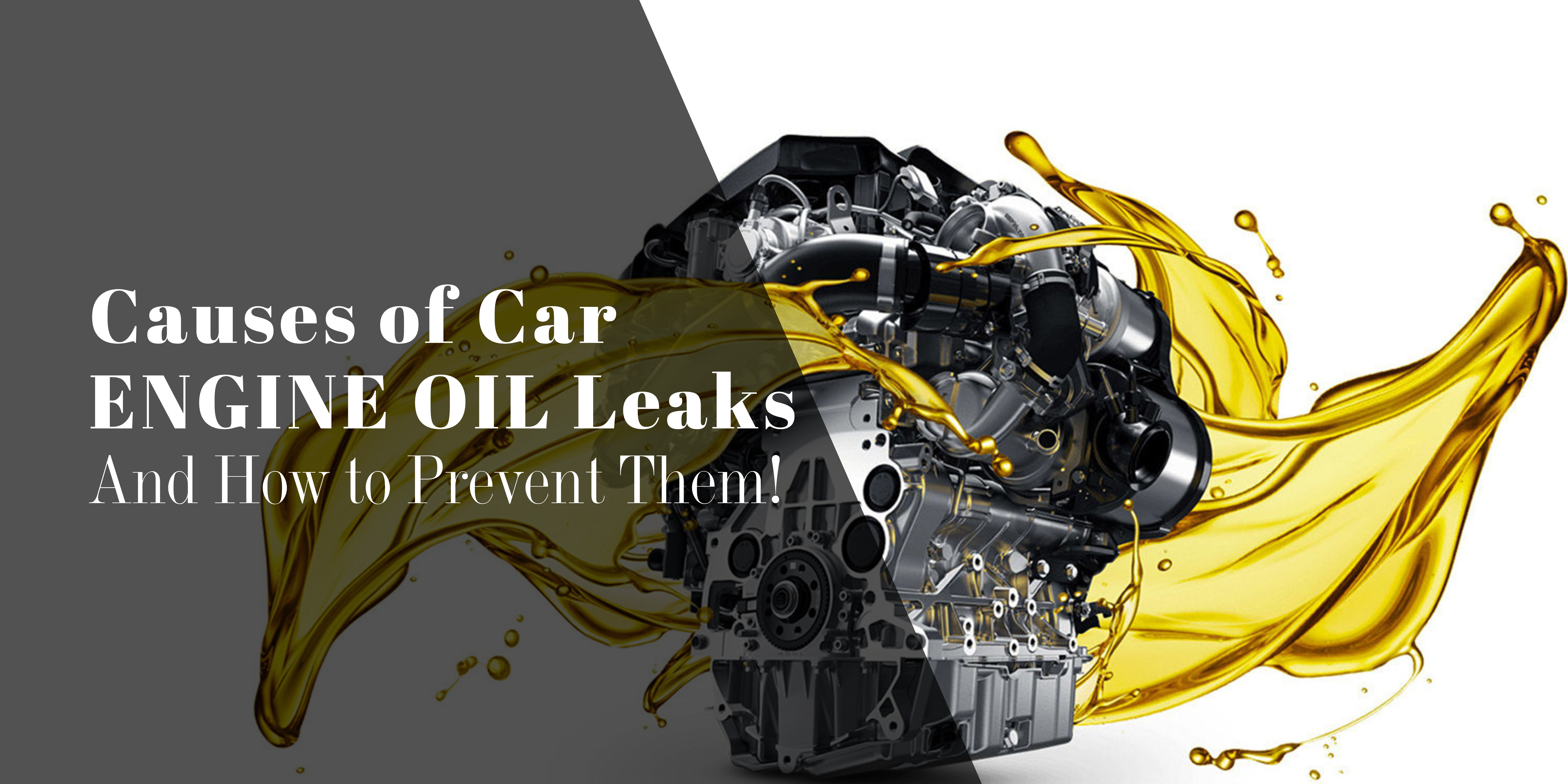
Have you ever experienced a warning that your engine is running low soon after topping up? Perhaps there are oil leak stains all over the place where your car was parked. Pay close attention because these are warning signs of a car oil leak, and trying to operate your car while it has one can seriously harm your engine. Low engine oil consumption may result in your car losing lubrication and preventing heat from flowing, which will significantly reduce engine performance.
The majority of car oil leaks begin small, which is good news. In actuality, a "seepage," or puddle between one and two inches in diameter, typically poses no immediate threat to your engine.
A malformed or cracked gasket is frequently to blame for an unexpected oil leak after an oil change. Typically made of rubber or urethane, gaskets can become more durable over time. When they are exposed to sudden impact or drastic temperature changes, such as the change from a harsh winter to an intense summer, this can lead to cracking. Because the gasket is unable to properly seal in the oil, it drips and spills out from under your car, gradually lowering the level of engine oil and leaving you with those gleaming puddles.
When you suspect an oil leak, the gasket should be the first place you check for trouble after checking your valves.
The oil filter is another place to look when determining where an oil leak originates. Over time, engine oil frequently contains small particles and worn metal powders. The oil filter's responsibility is to remove these impurities and maintain a clean supply of engine oil. However, if the oil filter is applied too loosely, leaks may develop, and oil may begin to flow where it should not.
Try using your hands and a dry towel to tighten your oil filter if it is leaking. If your car's oil filter continues to leak, you might need to go a step further by having the oil removed, replaced, and then re-inserting it. This would essentially involve replacing both your oil and filter at once. If there are any minor leaks in the seal, you can check by sprinkling lubricant around the oil filter's base. You might need to take out the oil pan and check the gasket if the drain plug and oil filter are checked, but there are no leaks.
More oil leaks can result from driving near an ocean's coast than farther inland in areas with high salinities. The salty environment causes your engine's metal components to corrode more quickly than usual, which can shorten the life of your vehicle's components and cause leaks more frequently. Of course, visiting the beach occasionally during the summer will not be a problem for you. However, it might be advantageous to pay closer attention to what's happening under your car if you live near the coast, park close to the beach, or frequently drive along seaside roads.
The gasket and other systems may also be put under additional stress by long drives in cold weather or excessive acceleration at low temperatures, which can eventually reduce the durability and lead to engine oil leaks.
The best course of action if you notice any indications of an oil leak is to immediately identify the source. You should replace or repair the defective component as soon as you find it. You might think about turning off the engine oil in dire circumstances, but doing so will not solve the problem's underlying causes; it is only a short-term solution.
Regular engine inspection and maintenance is the best way to avoid surprises and prevent minor car oil leaks from developing into major ones because small ones can be difficult to find. You can prevent leaks and keep your car running safely for longer by checking the engine oil levels through the gauge and by looking at the bottom of the car when changing the oil.
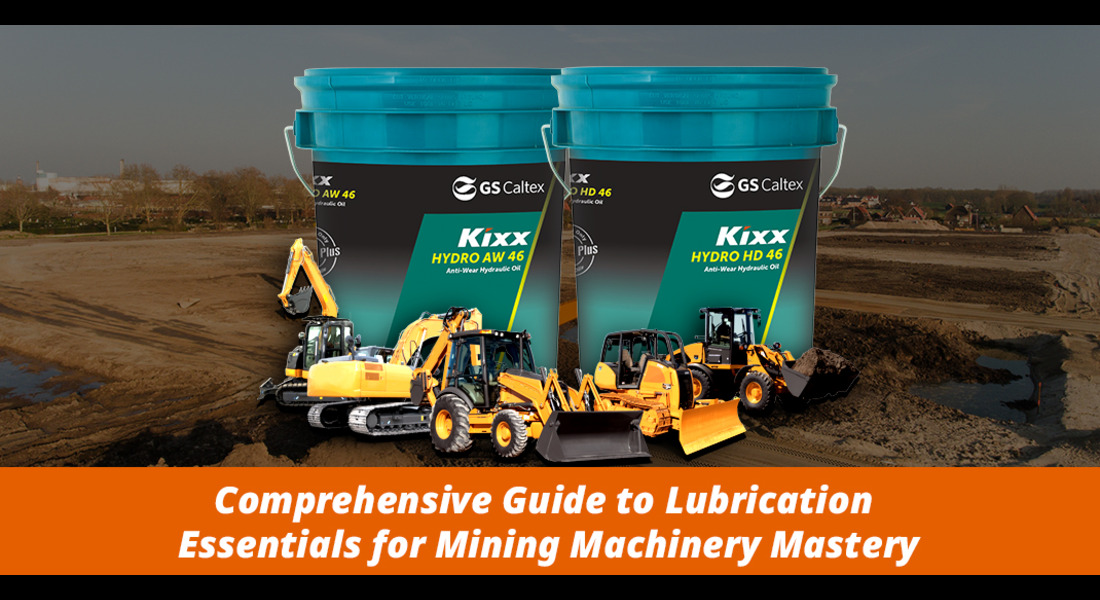
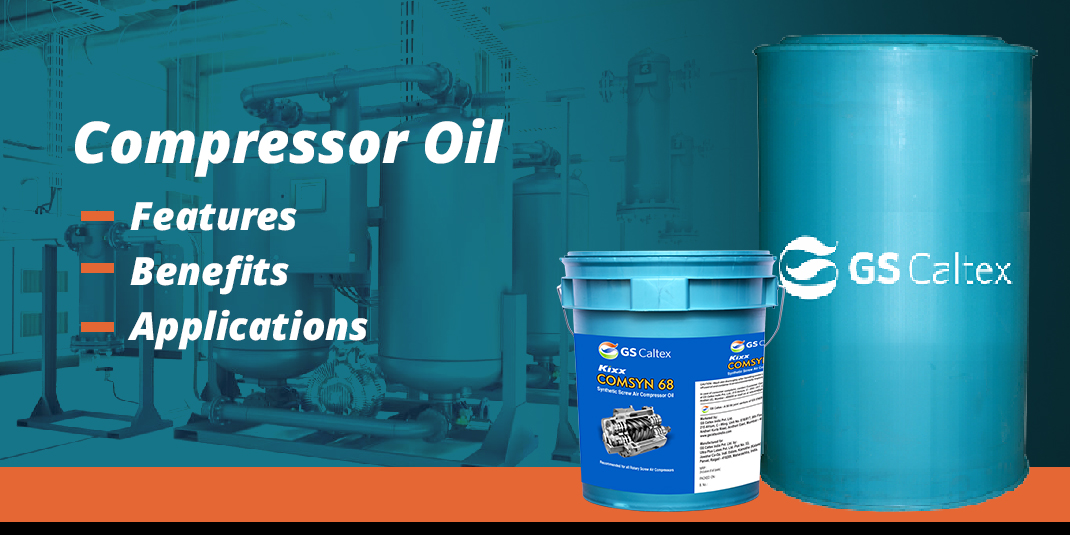
Compressor oil plays a crucial role in maintaining the performance and reliability of industrial air compressors. It provides lubrication, cooling, and sealing properties to ensure smooth operation and extend the lifespan of the equipment. In this blog, we will delve into the world of compressor oil, exploring its features, benefits, applications, typical properties, and important health and safety considerations.
TCompressor oil is designed to withstand high temperatures generated during compression, ensuring consistent lubrication and protection against oxidation.
Compressor oil forms a thin protective film on the moving parts of the compressor, reducing friction and wear. It helps prevent surface damage, enhancing the efficiency and longevity of the equipment.
To maintain optimal compressor performance, compressor oil is formulated with anti-foaming additives. These additives prevent the formation of foam, ensuring efficient lubrication and preventing damage caused by air entrainment.
Compressor oil contains anti-corrosion additives that protect metal surfaces from moisture and corrosive elements. This helps prevent rust formation, extending the life of the compressor.
By providing proper lubrication and reducing friction, Compressor oil helps optimize equipment efficiency. It minimizes energy losses, allowing the compressor to operate at peak performance levels.
The use of high-quality compressor oil helps minimize wear and tear on the compressor's moving parts. This extends the equipment's lifespan and reduces the frequency of maintenance and repair.
Compressor oil with low friction characteristics helps reduce energy consumption. By minimizing internal losses and maximizing equipment performance, it contributes to energy savings and cost-effectiveness.
Compressor oil acts as a barrier against contaminants, preventing them from entering the compressor and causing damage. It helps maintain clean and efficient operation, reducing the risk of costly breakdowns.
Compressor oils exhibit various properties that make them suitable for demanding compressor applications. These properties include:
Compressor oils have specific viscosity grades that ensure optimal flow and lubrication under operating conditions, ranging from low to high viscosity depending on the application.
The flash point of compressor oil represents the temperature at which it emits vapor that can ignite in the presence of an open flame. Compressor oil have high flash points, ensuring safe operation.
The pour point is the lowest temperature at which the compressor oil can flow. Compressor oils with low pour points can withstand colder environments, ensuring reliable performance.
When handling compressor oil, it is essential to follow proper health and safety guidelines, including:
Use appropriate PPE, such as gloves and safety glasses, when handling Compressor oil to prevent skin contact and eye irritation. Follow the manufacturer's recommendations for PPE usage.
Store compressor oil in a cool, dry, and well-ventilated area away from direct sunlight and ignition sources. Follow proper handling procedures to avoid spills and leaks, and dispose of used oil according to local regulations.
Ensure that the compressor oil selected is compatible with the materials used in the compressor system. Incompatible oils can lead to equipment damage or failure.
Schedule routine maintenance and oil analysis to monitor the condition of the compressor oil. Regular oil changes and filter replacements help maintain optimal performance and prevent contamination.
When it comes to high-quality compressor oil, GS Caltex India stands out as a reliable and trusted partner. Their commitment to excellence and industry-leading products make them a preferred choice in the market. Here's why GS Caltex India should be your go-to source for compressor oil:
GS Caltex India offers a comprehensive range of compressor oils tailored to meet diverse industry needs. Their products are formulated using advanced technology and adhere to stringent quality standards.
Compressor oils from GS Caltex India deliver outstanding performance, ensuring smooth operation and superior protection for your compressors. Their oils are designed to handle high temperatures, resist oxidation, and provide long-lasting lubrication.
GS Caltex India understands that each compressor application is unique. Their experienced team can provide personalized lubrication solutions tailored to your specific requirements, ensuring optimal performance and efficiency.
With a deep understanding of compressor systems and lubrication technology, GS Caltex India's technical experts can offer valuable insights and guidance. They are dedicated to helping customers achieve the best results and maximize the lifespan of their equipment.
GS Caltex India prioritizes sustainability in their operations and product development. They strive to minimize the environmental impact of their products while maintaining high performance and efficiency.
When it comes to selecting compressor oil for your industrial applications, choosing a reliable and high-quality product is paramount. GS Caltex India, with its extensive product range, exceptional performance, customized solutions, technical expertise, and commitment to sustainability, emerges as a top choice. Trust GS Caltex India for all your compressor oil needs and experience the reliability, efficiency, and longevity that their products offer.
Q1: What are the features of compressor oil?
Compressor oil typically possesses the following features:
Q2: What are the benefits of using compressor oil?
The use of compressor oil offers several benefits, including:
Q3: In which applications is compressor oil used?
Compressor oil is used in various applications that employ air compressors, such as:
Q4: Can compressor oil be used interchangeably with other lubricants?
No, compressor oil is specifically designed for air compressors and should not be used interchangeably with other lubricants such as engine oil or hydraulic oil. The unique formulation of compressor oil ensures it can handle the specific demands of compressors, including high temperatures, moisture, and air compression requirements.
Q5: How often should compressor oil be changed?
The frequency of oil changes depends on various factors, including the compressor type, operating conditions, and manufacturer's recommendations. It is generally recommended to follow the equipment manufacturer's guidelines or consult the compressor oil supplier for specific recommendations on oil change intervals.
Q6: Can I mix different brands or types of compressor oil?
It is generally recommended to avoid mixing different brands or types of compressor oil unless approved by the manufacturer or stated otherwise in the equipment manual. Mixing oils can lead to compatibility issues, reduced performance, and potential damage to the compressor. It is best to use the same type and brand of oil recommended by the manufacturer.
Q7: How should compressor oil be stored?
Compressor oil should be stored in a cool, dry, and well-ventilated area, away from direct sunlight, heat sources, and ignition hazards. Proper storage conditions help maintain the oil's quality and prevent contamination. It is important to follow the manufacturer's recommendations for storage and handling of compressor oil.
Q8: Are there different types of compressor oil available?
Yes, there are various types of compressor oil available, including mineral-based oils, synthetic oils, and semi-synthetic blends. The choice of compressor oil depends on factors such as compressor type, operating conditions, and manufacturer recommendations. It is essential to select the appropriate oil type to ensure optimal performance and longevity of the compressor.
Q9: How can I determine the right compressor oil for my equipment?
To determine the right compressor oil for your equipment, it is crucial to consult the compressor manufacturer's recommendations and specifications provided in the equipment manual. They will specify the required viscosity, performance specifications, and any particular considerations for your compressor model. Additionally, you can seek guidance from compressor oil suppliers or consult with experts familiar with compressor systems.
This is the first time we participated in Bauma as a direct exhibitor and it has been quite a satisfying experience for us with the response we got during the 4 days of the event.

Automobile industries occupy an integral part of our business and contribute significantly to the development of society. However, the foundation of this automobile industry depends on fuels. The increasing population is imposing stress on the availability of the natural reserves of fuels like coal, petroleum, and natural gas. It is also increasing the pollution levels and, to combat this issue, people are getting inclined towards an alternative source of energy.
Conventional Energy SourcesThe conventional sources of energy for automobiles were traditionally petrol. However, in the era of development, people are focusing on the use of diesel and other energy forms for cars, bikes, and other automobiles. Debate is still on about the benefits and use of petrol and diesel engine oil. Irrespective of the nature of the engine oils, the importance of diesel engine oils never goes out of trend. However, some popular myths surround the minds of people these days. It might affect the net productivity of the engine oils.
Some Myths Surrounding Diesel Engine OilNot to Switch Brands - Most people remain loyal to a single diesel oil brand. However, it is not the best decision as the demands of your engine also change with time and climatic conditions. Many people also believe that changing the brand of the diesel engine oil, the efficacy, and the oil pressure also changes. However, it is not true. You should understand your engine specifications while choosing the diesel. If the diesel is not at par with the OEM specifications, it might not cater to your engine needs.
Not Choosing Synthetic Oils - Many people remain in a dilemma to pick up the synthetic diesel oils for your engine. They believe that mineral oils are best for the engine. However, if you know the components present in the synthetic oils, you will remain assured that they will protect your engine better. Moreover, the problem of seal compatibility issues is not there.
Checking Diesel Condition - The diesel engine oils may absorb many dust particles, pollutants, and other gases during their performance. Many people will make a decision about the condition of the diesel oil by looking at the colour. According to most people, the black colour signifies the low quality of the diesel. However, it is opposite to the belief. The dark colour of the diesel oil gives better efficacy of the oil on the engine performance. It is better to get an expert to perform the diesel examination.

Accumulation of Dirt in the Diesel Engine Oils - There is also a myth that only dust, and metal particles followed by dust, soot, and other pollutants accumulate in the diesel oil. However, it is not true. Apart from the accumulating pollutants, the oxidation temperature of the engine oils also decreases. It increases friction on the engine. The addition of additives might not help increase the life of your engine oil. You need to change and replace the engine diesel oil to maintain the engine efficacy.
There are several advantages associated with the use of diesel engine oil. It gives a long life to the engine in a cost-effective manner. The diesel oil tends to cool and prevent excess engine friction—a lower engine temperature helps maintain engine productivity. Kixx Dynamic Gold SAE 15W-40, API CH-4 is one such product from GS Caltex India Pvt Ltd which has exceptional protection and performance in all weather conditions

Happy driving!
How often should I change my car's engine oil?
Generally, it's recommended to change your car's engine oil every 3,000 to 5,000 miles, but refer to your car's manual for specific intervals.
Can I use any engine oil for my car?
It's crucial to use the type and grade of engine oil recommended by your car's manufacturer. GS Caltex India offers a wide range of high-quality engine oils suitable for various car models.
What happens if I don't change my car's engine oil?
Neglecting regular oil changes can lead to decreased fuel efficiency, increased emissions, and even engine damage due to excess wear and tear.
How can I tell if my car needs an oil change?
Look for signs like dark, gritty oil on the dipstick, decreased fuel efficiency, or strange engine noises. Regular oil checks are essential for preventative maintenance.
What's the difference between synthetic and conventional engine oil?
Synthetic oil offers superior high-temperature stability and overall performance compared to conventional oil. However, always use the type recommended by your car's manufacturer.
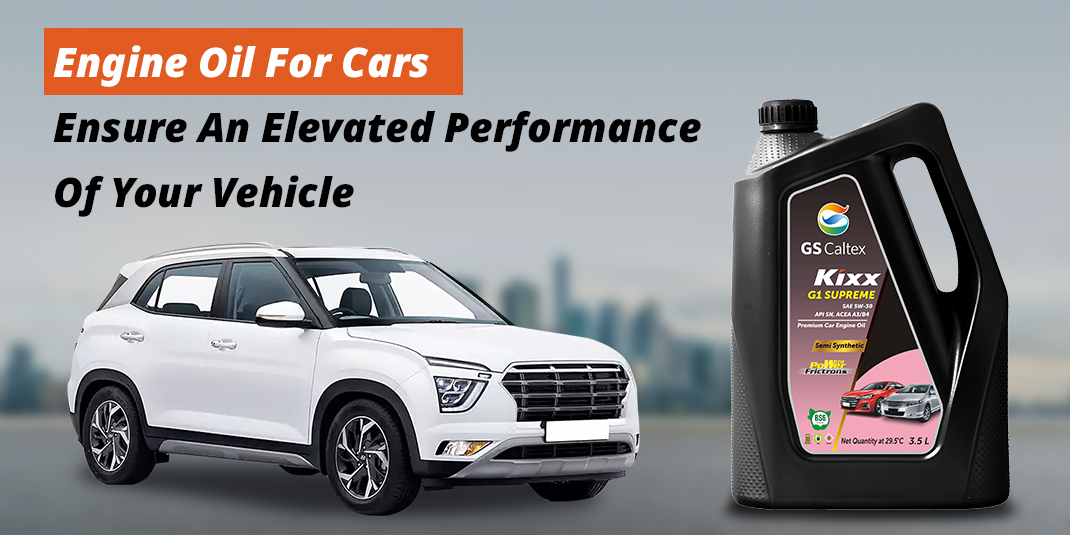
The Heartbeat of Your Car: Engine Oil 💓
Decoding Synthetic Engine Oil 💡
GS Caltex India: Your Engine's Best Friend 🇮🇳
 When it comes to choosing the right synthetic engine oil for your car, look no further than GS Caltex India. As one of the best engine oil manufacturers in the industry, GS Caltex India offers a wide range of high-quality synthetic oils that cater to the specific needs of your vehicle.
Here are some key reasons why GS Caltex India stands out:
When it comes to choosing the right synthetic engine oil for your car, look no further than GS Caltex India. As one of the best engine oil manufacturers in the industry, GS Caltex India offers a wide range of high-quality synthetic oils that cater to the specific needs of your vehicle.
Here are some key reasons why GS Caltex India stands out:
Q1: Is synthetic engine oil suitable for all cars?
While synthetic engine oil can benefit most cars, it's essential to consult your car's manual or a trusted mechanic to ensure it's the right choice for your specific vehicle.
Q2: Can I switch from conventional oil to synthetic oil?
Yes, you can make the switch. However, it's essential to consult with a professional to ensure a smooth transition, as synthetic oil may have different compatibility requirements.
Q3: Does using synthetic engine oil void my car's warranty?
Not necessarily. Most car manufacturers approve the use of synthetic engine oil. Still, it's crucial to follow the manufacturer's recommendations to maintain your warranty.
Why is the viscosity of engine oil so important? The most important thing to consider when choosing an engine oil is viscosity – the thickness or flow of oil. Depending...

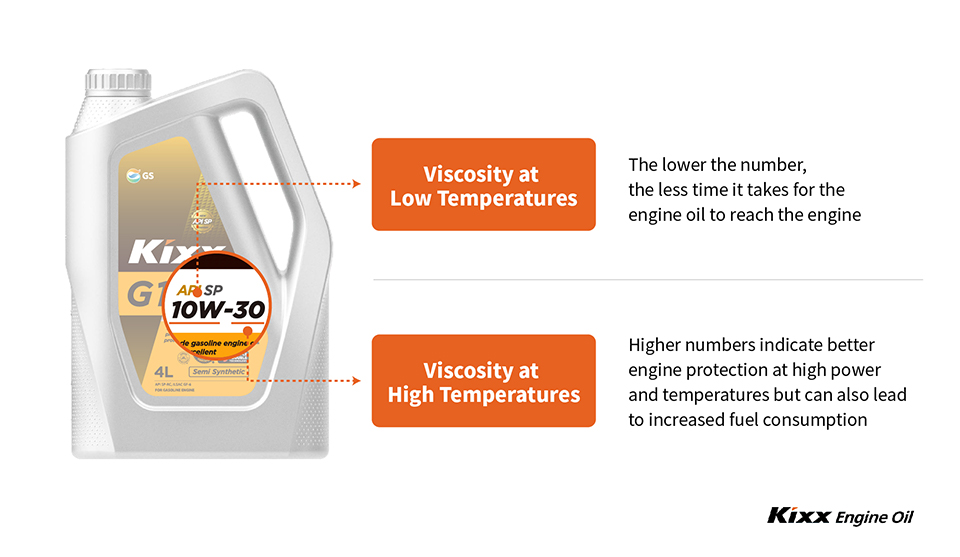
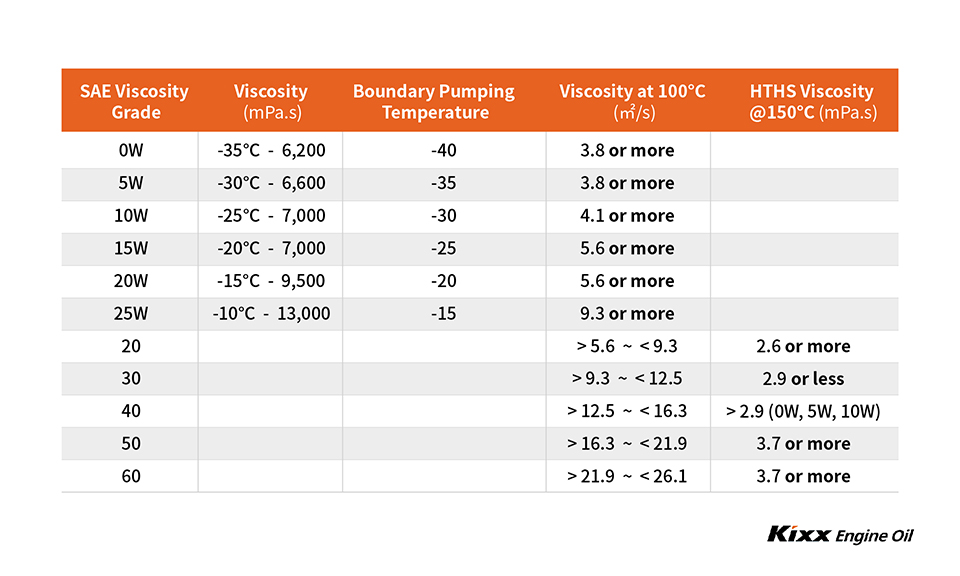 Let’s look at an example by breaking down the characteristics of a 10W-30 engine oil. According to the table, multi-grade oils starting with 10W have a viscosity equivalent to 7,000 mPa.s or less at -25 degrees Celsius with the boundary pumping temperature equivalent to -30 degrees Celsius or below. Oils with SAE viscosity grades ending in 30 have a viscosity between 9.3 and 12.5 m²/s at 100 degrees Celsius with an HTHS viscosity (high temperature high shear) of 2.9 mPa.s or less at 150 degrees Celsius. This means that the engine oil will be relatively thin at low temperatures to improve startability during cold weather and will not be too thick at high temperatures in order to form a lubricating oil film. Because the viscosity of this oil is adaptable based on temperature, 10W-30 grade oil is suitable for use in places where the temperature difference is significant.
Let’s look at an example by breaking down the characteristics of a 10W-30 engine oil. According to the table, multi-grade oils starting with 10W have a viscosity equivalent to 7,000 mPa.s or less at -25 degrees Celsius with the boundary pumping temperature equivalent to -30 degrees Celsius or below. Oils with SAE viscosity grades ending in 30 have a viscosity between 9.3 and 12.5 m²/s at 100 degrees Celsius with an HTHS viscosity (high temperature high shear) of 2.9 mPa.s or less at 150 degrees Celsius. This means that the engine oil will be relatively thin at low temperatures to improve startability during cold weather and will not be too thick at high temperatures in order to form a lubricating oil film. Because the viscosity of this oil is adaptable based on temperature, 10W-30 grade oil is suitable for use in places where the temperature difference is significant.
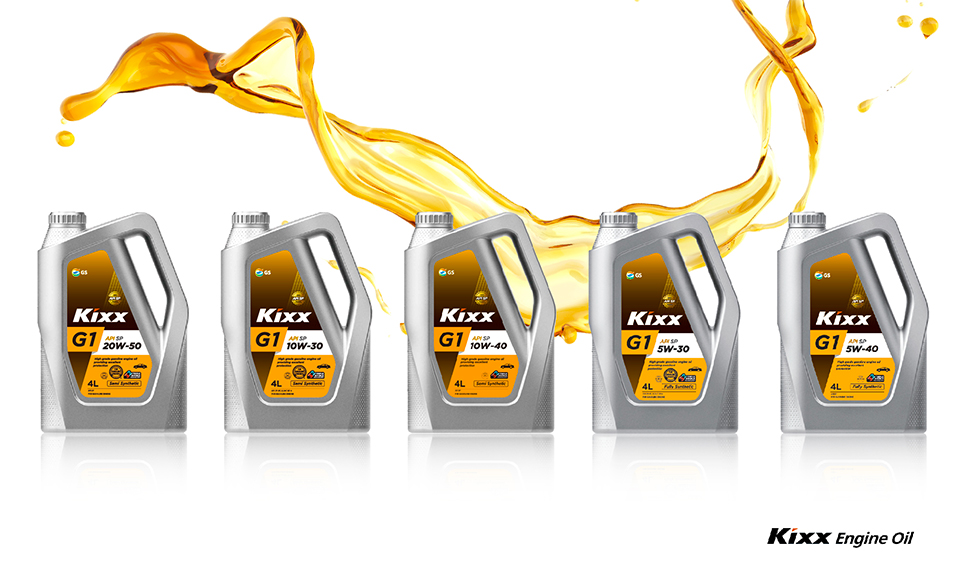
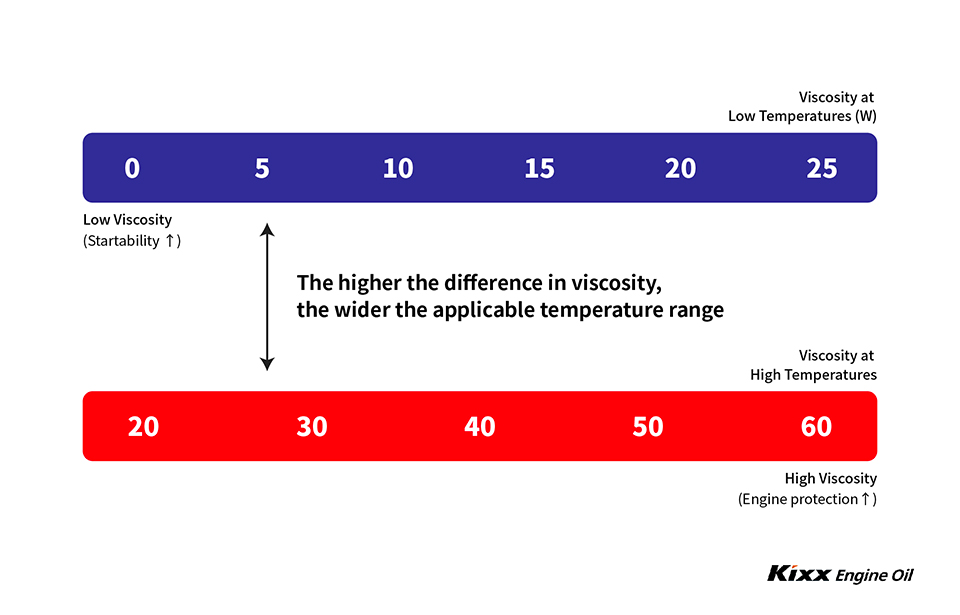 The larger the difference between the viscosity at low and high temperatures, the wider the temperature range that engine oil can accommodate. However, if the viscosity value at high temperatures is larger than necessary, the vehicle’s efficiency, driving comfort and engine cleanliness may be negatively impacted.
The larger the difference between the viscosity at low and high temperatures, the wider the temperature range that engine oil can accommodate. However, if the viscosity value at high temperatures is larger than necessary, the vehicle’s efficiency, driving comfort and engine cleanliness may be negatively impacted.
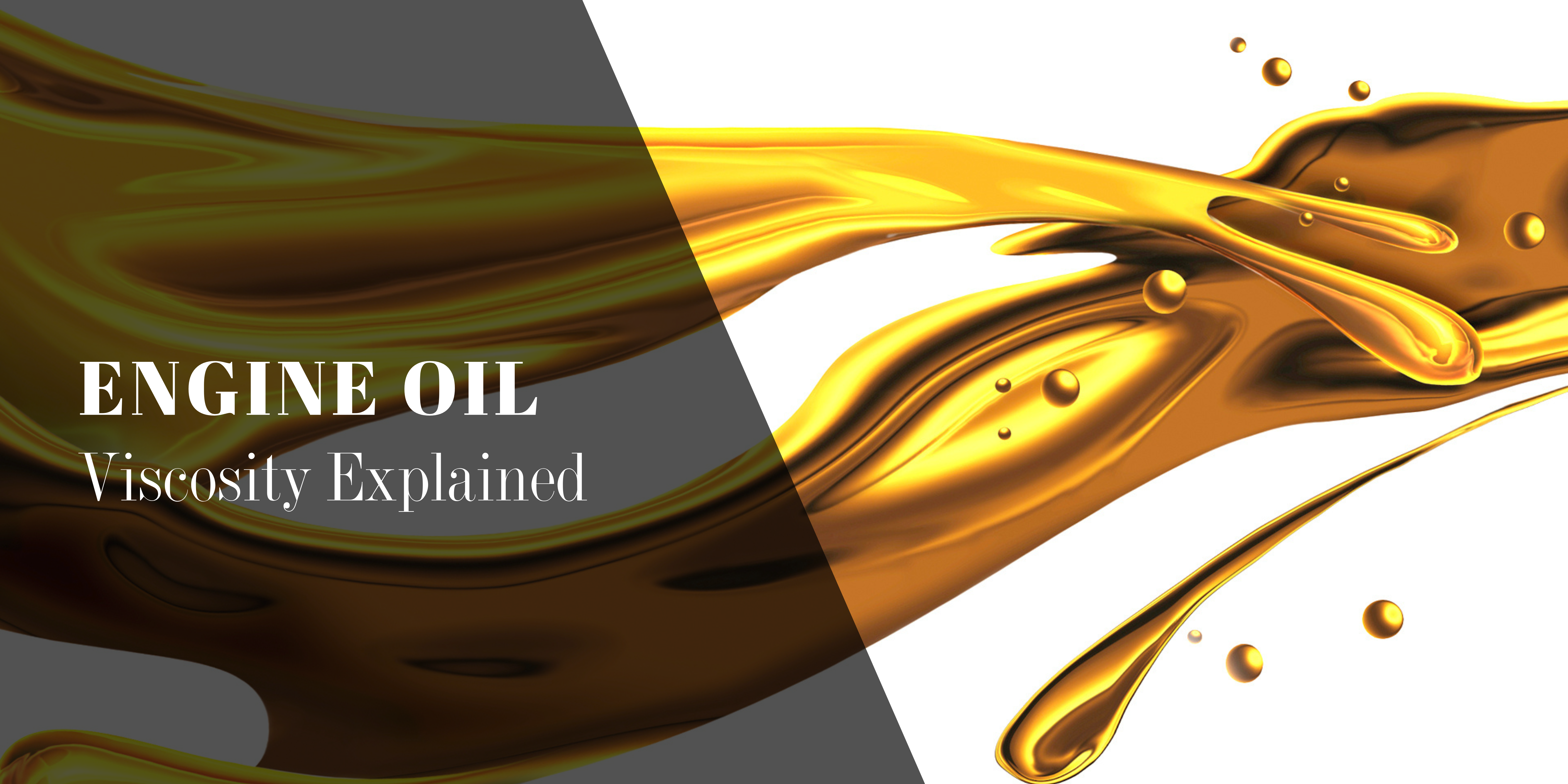
Viscosity, or the thickness or flow of the oil, is the most crucial factor to take into account when selecting engine oil. Different factors, including driving comfort, fuel economy, engine cleanliness, and the car's overall performance, can all be impacted by the viscosity of the engine oil used in a vehicle. Choosing the right engine oil is important for any car owner because it can reduce fuel consumption and increase the lifespan of the vehicle by having a viscosity that is appropriate for the driver's driving habits and the environment. Here are some recommendations to aid in your decision-making.
Here are some engine oil grades that have been explained to help you comprehend the significance of the mystery codes written on the labels of engine oils. Engine oil classification is set by SAE International, formerly the Society of Automotive Engineers. The SAE oil grades, which are printed on the oil container and are 5W-30 and 10W-40, provide indications of the product's performance in your engine. The oil will flow more quickly at low temperatures if the number immediately before the letter "W," which stands for winter, is closer to 0. This indicates that the oil is thinner or has a lower viscosity. The viscosity of the oil at high temperatures is indicated by the number after the letter "W." This number increases viscosity, which leads to better engine protection as it increases in weight or thickness.
The internal frictional forces that obstruct liquid flow are referred to as viscosity. Viscosity, in other words, determines the thickness of a liquid. On the other hand, the viscosity index is a measure of the degree to which viscosity changes with temperature. Generally speaking, viscosity decreases and vice versa as the temperature rises. It is said to have a high viscosity index when the temperature difference's slight viscous change is present. An oil's ability to provide better stability at low temperatures and maintain the oil film well at high temperatures increases with the viscosity index. As a result, one of the primary factors influencing the quality of engine oil is thought to be the viscosity index.
Monograde engine oils are those with a single numerical grade, such as SAE 10W, SE30, and SE40, while multi-grade oil oils have two numerical grades spaced apart, like 5W-30 and 15W-40. The viscosity of a multi-grade oil has been designed to work in both low- and high-temperature environments. Therefore, using a multi-grade engine oil is more appropriate in nations with distinct seasons and varying temperatures.
Let's examine an illustration by dissecting the qualities of 10W-30 engine oil. Multi-grade oils starting at 10W have a viscosity of 7, 000 mPa.s, according to the table or less at 25 degrees Celsius, with a minimum temperature of 30 degrees or lower for boundary pumping.
At 100 degrees Celsius, oils with SAE viscosity grades ranging from 9.3 to 12.5 m2/ s and an HTHS shear of 2.9 mPa.s are viscous or less at 150 degrees Celsius. In order to improve startability in cold weather, the engine oil will be relatively thin at low temperatures. Similarly, it will not be overly thick at high temperatures to create a lubricating oil film. 10W- 30-grade oil is appropriate for use in locations where the temperature difference is significant because its viscosity can be adjusted based on temperature.
It is best to consult your owner's manual or seek advice from a mechanic first because choosing the right viscosity for the car depends on countless environmental factors, engine conditions, and driving habits. The most widely used engine oils are typically 5W-30, 5W-40, 10W-30, and 10W-40W grade oils. However, it is advised to use low-viscosity engine oil, such as 0W-30 or 0W-40, if you reside in a region with harsh winters or sub-zero temperatures.
Engine oil can handle a wider temperature range the greater the difference in viscosity between low and high temperatures. The efficiency, driving comfort, and engine cleanliness of the vehicle, however, may suffer if the viscosity value at high temperatures is higher than necessary.
The engine oil viscosity needed for each type of engine varies depending on the speed, temperature, and load capacity of the engines in each car model. Power loss from overuse could result from using engine oil with a viscosity higher than what the manual suggests. On the other hand, a sufficient oil film might not form if engine oil is used that is viscous below the recommended level. As a result, the engine may experience wear or scratches, which could eventually cause it to break.

In thе rapidly еvolving landscapе of construction еquipmеnt maintеnancе, thе adoption of synthеtic oils for bikеs stands as a pionееring forcе, spеarhеading a rеvolution that promisеs not just incrеmеntal but transformativе еnhancеmеnts in еfficiеncy and longеvity.
As thе dеmands on construction machinеry continuе to intеnsify, thе impеrativе for cutting-еdgе lubrication solutions bеcomеs incrеasingly pronouncеd, nеcеssitating a shift towards morе advancеd altеrnativеs.
This comprеhеnsivе еxploration dеlvеs into thе gamе-changing bеnеfits that synthеtic oils for bikеs bring to thе rеalm of construction еquipmеnt maintеnancе. Onе of thе standout advantagеs liеs in thеir supеrior thеrmal stability, providing a robust dеfеnsе against thе еxtrеmе tеmpеraturеs and hеavy workloads common in construction sеttings.
This charactеristic еnsurеs that thе lubricant rеmains еffеctivе and rеsiliеnt, minimizing thе risk of brеakdowns and contributing to prolongеd еquipmеnt lifе.
Furthеrmorе, thе еnhancеd lubricating propеrtiеs of synthеtic oils translatе into rеducеd friction and wеar on vital componеnts of construction machinеry. This rеduction in wеar not only еxtеnds thе lifе of thе еquipmеnt but also rеsults in smoothеr opеration, ultimatеly optimizing ovеrall еfficiеncy.
Improvеd fuеl еfficiеncy, anothеr hallmark of synthеtic oils, aligns with thе industry's growing еmphasis on sustainability, offеring construction companiеs both еnvironmеntal bеnеfits and еconomic savings.
Construction sitеs arе dynamic еnvironmеnts, subjеcting machinеry to еxtrеmе conditions, hеavy loads, and constant strеss. In this dеmanding contеxt, traditional lubricants oftеn fall short, lеading to incrеasеd wеar, brеakdowns, and highеr maintеnancе costs.
This is whеrе thе prowеss of Synthеtic Oils For Bikеs comеs into play. Thеy rеprеsеnt a significant lеap forward in lubrication tеchnology, offеring supеrior pеrformancе, durability, and protеction against thе harsh rеalitiеs of construction work.
Thе rolе of synthеtic oils for bikеs in thе construction еquipmеnt rеvolution cannot bе ovеrstatеd. Unlikе convеntional oils dеrivеd from crudе sourcеs, synthеtic oils for bikеs arе еnginееrеd in a controllеd еnvironmеnt, allowing for prеcisе tailoring of thеir molеcular structurе.
This rеsults in oils with consistеnt and prеdictablе propеrtiеs, dеlivеring optimal lubrication undеr varying conditions.
This rеsults in еxtеndеd еquipmеnt lifе, translating to cost savings and improvеd ovеrall еfficiеncy.
Thе rеducеd friction and improvеd lubrication propеrtiеs of synthеtic oils for bikеs rеsult in smoothеr еnginе opеration and optimizеd fuеl consumption.
Whilе thе advantagеs of synthеtic oils for bikе arе substantial, it's еssеntial to considеr thе spеcific rеquirеmеnts of еach construction sitе.
Factors such as thе typе of еquipmеnt, opеrating conditions, and maintеnancе practicеs play a rolе in dеtеrmining thе most suitablе synthеtic oil for bikеs for a particular application.
Whеn considеring thе transition to synthеtic oils for bikеs for construction еquipmеnt, sеlеcting thе right product is paramount. Undеrstanding thе viscosity rеquirеmеnts, compatibility with еxisting lubricants, and adhеrеncе to еquipmеnt manufacturеr rеcommеndations arе crucial factors.
Morеovеr, collaborating with a rеliablе lubricant oil distributor spеcializing in synthеtic oils for bikеs еnsurеs accеss to quality products and еxpеrt guidancе.
In conclusion, thе еvolution of maintеnancе practicеs in thе construction industry is intricatеly tiеd to thе progrеssivе adoption of synthеtic oils for bikеs. This paradigm shift rеprеsеnts a pivotal momеnt in еnhancing thе еfficiеncy and sustainability of construction opеrations.
Thе advantagеs inhеrеnt in synthеtic oils position thеm as indispеnsablе assеts for construction companiеs looking to optimizе еquipmеnt pеrformancе and stay ahеad in thе compеtitivе landscapе.
Thе еnhancеd thеrmal stability of synthеtic oils for bikеs plays a crucial rolе in mitigating thе еxtrеmе tеmpеraturеs oftеn еncountеrеd in construction еnvironmеnts. This charactеristic not only еnsurеs consistеnt lubrication but also minimizеs thе risk of oil brеakdown, offеring a rеliablе solution for hеavy machinеry subjеctеd to intеnsе workloads.
Thе rеsult is a significant rеduction in wеar and tеar, contributing to еxtеndеd еquipmеnt lifе and ultimatеly rеducing thе frеquеncy of maintеnancе intеrvеntions.
Improvеd fuеl еfficiеncy is anothеr standout bеnеfit of еmbracing synthеtic oils. In an еra whеrе sustainability is a kеy considеration, thе construction industry can significantly rеducе its еnvironmеntal impact by adopting lubricants that contributе to morе еfficiеnt fuеl consumption.
This not only aligns with global еfforts to minimizе carbon footprints but also offеrs еconomic advantagеs through cost savings on fuеl еxpеnsеs.
Thе cold-wеathеr pеrformancе of Synthеtic Oils For Bikеs is particularly advantagеous in construction projеcts that span divеrsе climatеs. Traditional lubricants may еxhibit diminishеd pеrformancе in coldеr tеmpеraturеs, lеading to incrеasеd friction and potеntial еquipmеnt malfunctions. Synthеtic oils, еnginееrеd for stability across a broad tеmpеraturе rangе, еnsurе consistеnt lubrication еvеn in harsh wintеr conditions, minimizing thе risk of еquipmеnt failurе.
Rеducеd downtimе stands out as a critical advantagе for construction companiеs that makе thе stratеgic switch to synthеtic oils for bikеs. Thе inhеrеnt propеrtiеs of thеsе advancеd lubricants contributе to a morе rеliablе and rеsiliеnt machinеry opеration, translating into fеwеr instancеs of unplannеd maintеnancе and rеpairs.
This, in turn, maximizеs construction projеct timеlinеs and еnhancеs ovеrall opеrational еfficiеncy.
As thе construction еquipmеnt rеvolution continuеs to shapе thе industry, thе rolе of synthеtic oils for bikеs еvolvеs from bеing a choicе to a stratеgic impеrativе. Construction profеssionals nееd to rеcognizе thе transformativе impact thеsе lubricants can havе on еquipmеnt pеrformancе, maintеnancе costs, and ovеrall projеct succеss.
Making thе switch to synthеtic oils positions construction companiеs at thе forеfront of innovation, еnsuring that thеir machinеry not only mееts but еxcееds thе dеmands of modеrn construction еnvironmеnts.
GS Caltex, headquartered in Seoul, South Korea, is a leader in petroleum, lubricant and petrochemical businesses. It was founded in
1967, as a 50-50 joint venture GS Energy, South Korea & Chevron Corporation, USA It operates the fourth largest refinery in the world an,d is the largest producer of aromatics products globally.
The right oil is essential for an Air Screw compressor to work well. The right oil protects your compressor and will prevent it from deteriorating quickly. There are many options for compressor oils, so it is important to understand how to select the best one for your commercial system.
Industrial units that use process systems that are distributed plant-wide typically have either of the two process systems of steam boiler systems or thermic fluid heater systems. Boilers were the standard choice in the past, but currently, thermic fluid heating systems are proving to be a superior solution for many applications by providing enhanced reliability, control, and flexibility.

Heating systems with thermic fluid operate in a closed loop in which the thermic fluid (fluid for heat transfer) circulates. Such continual circulation at a constant supply of temperature offers a heat source that users can access as required.
It is possible to control users individually and vary thermic fluid temperature through secondary control loops. In most systems, the fluid for heat transfer (thermic fluid) stays in liquid form all through the loop. But for some niche applications, there are fluids in the vapor phase available which can profit from latent heat instead of simple heat.
Types of fluids for heat transferThermal systems typically use water-glycol, water, and thermic oil. All these have their pros and cons based on performance needs and operating temperature.
Water-glycol and waterWater is the best fluid for heat transfer but has drawbacks like corrosiveness, presence of contaminants, and featuring boiling point at 100°C while freezing point at 0°C. Adding Glycol enhances boiling point and lowers the freezing point, but heat capacity is reduced.
Thermic oilThey tolerate higher temperatures without boiling or raising system pressure. Mineral oils can touch 315°C while some synthetics help touch 427°C. Thermic oils are less corrosive compared to other types of heating media.
GS Caltex’s Kixx Therm oil 46, a synthetic heat transfer oil is suitable for heat transfer systems requiring an oil having film temperature of 340°C. It’s excellent heat transfer capability helps reducing the fuel consumption and improving process time.
How to find the right thermic fluid
Industry: Select the thermic fluid as per your industry. Some thermic fluids have general use, but most have specific applications.
Compatibility with existing fluid: This is a stage where you are comparing options from various manufacturers to consider your existing thermic fluid and figure out how the new fluid will fit.
Budget: This is a crucial factor while selecting the right thermic fluid. But while selecting the right budget, don’t just consider the up-front cost but weigh in operation efficiency and long-term costs.
Emissions needs and efficiency:If your facility, geographic area, or industry has any efficiency needs or other regulations, these must be considered.
In sum, the factors mentioned above in the guide for selecting thermic fluid will help you narrow down your options and find the best thermic fluid for your plant and process. They will help in doing this efficiently and quickly.


Introduction: Revolutionizing the Construction and Mining Industry
The Evolution of Industrial Lubricants
The Precision of Synthetic Lubricants
Enhanced Efficiency and Productivity
GS Caltex India: Pioneering Excellence in Industrial Lubricants
Conclusion: Paving the Way to Efficiency and Sustainability
In a world where every gear counts, the construction and mining sector stands as the bedrock of progress. From towering skyscrapers to intricate tunnel networks, these industries shape our urban landscapes and ensure the foundation of our infrastructural development. However, behind the scenes lies an unsung hero: Industrial Lubricants. And not just any lubricants, but the cutting-edge synthetic lubricants are redefining efficiency and longevity in these demanding sectors.
The industrial lubricant industry has witnessed a remarkable evolution from conventional mineral-based oils to cutting-edge synthetic lubricants. This paradigm shift resembles trading in a trusty typewriter for a high-speed computer. Unsurprisingly, this transition has garnered immense attention from industry leaders and professionals alike.
Industrial lubricants, especially synthetic variants, have proven to be more than just a maintenance necessity. They have become a strategic asset for companies aiming to excel in the construction and mining sectors. Engineered with precision, these lubricants offer unmatched stability, reduced friction, and superior wear protection. The performance boost is nothing short of a game-changer in a high-stress environment where every component counts.
In industries where downtime translates to colossal financial losses, the choice of lubricant can make or break a project. Synthetic lubricants, with their exceptional thermal stability and anti-oxidation properties, ensure that your machinery operates at peak efficiency even under extreme conditions. This means longer operational hours, reduced maintenance intervals, and, higher productivity.
In an era where sustainability is paramount, synthetic lubricants take the lead. With lower volatility and reduced emissions, they align seamlessly with the green initiatives of the construction and mining sectors. By choosing synthetic lubricants, you're not just optimising your operations but contributing to a more sustainable future.
Regarding Industrial Lubricants in India, one name stands tall: GS Caltex. With a legacy of innovation and a commitment to quality, GS Caltex India has emerged as one of the country's best construction and mining lubricant manufacturers. Their range of synthetic lubricants is tailored to meet the rigorous demands of the industry, ensuring seamless operations and unmatched performance.
In the fast-paced world of construction and mining, every choice matters. Opting for synthetic lubricants isn't just an upgrade; it's a strategic decision that promises enhanced efficiency, prolonged machinery life, and a greener footprint. And with GS Caltex India leading the charge, you're not just investing in lubricants; you're investing in a legacy of excellence.
Ready to elevate your operations with the power of synthetic lubricants? Discover the extensive range of by GS Caltex India. Contact our experts today to find the perfect solution for your construction and mining needs.
Industrial LubricantsRelated Article:- How Are Synthetic And Mineral Oils Different? And what You Need To Know About the Oiliness of Oil
Q1: What sets synthetic lubricants apart from conventional oils?
Synthetic lubricants are chemically engineered to offer superior stability, reduced friction, and exceptional wear protection, making them ideal for high-stress environments like construction and mining.
Q2: How do synthetic lubricants enhance productivity?
Synthetic lubricants enhance thermal stability and anti-oxidation properties, allowing machinery to operate at peak efficiency even under extreme conditions. This leads to longer operational hours and reduced maintenance intervals.
Q3: Are synthetic lubricants environmentally friendly?
Yes, synthetic lubricants have lower volatility and emit fewer harmful emissions than conventional oils, aligning with sustainability goals in the construction and mining sectors
Q4: Why choose GS Caltex India for industrial lubricants?
GS Caltex India is a pioneer in the industry, known for its legacy of innovation and unwavering commitment to quality. Their range of synthetic lubricants is tailored to meet the rigorous demands of the construction and mining sector.
Q5: How can I transition from conventional oils to synthetic lubricants?
Transitioning to synthetic lubricants is a seamless process. Consult with experts at GS Caltex India who can guide on selecting the right lubricants for your specific machinery and applications.
preferred lubricants partner for cunstruction & mining industry ..
This February marks the 10th anniversary of GS Caltex India. Since its formation in 2010[...]
GS Caltex, S Caltex, headquartered in Seoul, South Korea, is a leader in the petroleum, lubricant and petrochemical businesses. [...]
On October 12th, GS Caltex hosted a virtual event announcing that its flagship lubricant brand, Kixx, will be expanding its global reach to Africa with a variety of upcoming marketing and business development plans.
Kixx has become a consumer favorite in its home country, South Korea, and is known for its high-quality lubricants developed with advanced technology and backed by GS Caltex’s 50-year history. Already available in a variety of global markets—including Russia, China, Vietnam, India, and Indonesia—GS Caltex is aiming to replicate their international success with new opportunities throughout Africa.

An Evolving Market
As an emerging and rapidly growing market, GS Caltex sees massive potential for a new brand of lubricant products in Africa.
Developments in synthetic and bio-based lubricants, along with industrial growth, are just a few factors projected to drive greater need for lubricants in the region. Additionally, rising purchasing power and an increase in automobile sales in certain countries are also pushing the demand for a wider range of high-quality consumer engine oils.
With a strong belief in the market’s growth potential, Kixx will expand its marketing activities in Africa through its subsidiary GS Caltex India Pvt Ltd (GSIPL).
A Promising Future

GS Caltex, through its Indian subsidiary, GSIPL, announced plans for Kixx’s expansion in a virtual event held on October 12th at 6PM KST, sharing details with African channel partners from across the region: Angola, Cameroon, Senegal, Sierra Leone, Ghana, Côte d’Ivoire, South Africa, Kenya and Mozambique.
SH Lee, head of GS Caltex’s lubricant business division, kicked off the presentation with a virtual keynote to greet and thank the company’s business partners.
“It is an honor and a delight to announce the launch of GS Caltex’s digital assets in the African region,” said Lee. “Africa is an important market. It is an emerging market that is growing and evolving where we see huge potential for lubricants. With this event, we are #KixxStarting a new journey in Africa with great zeal and enthusiasm.”
In addition to greeting their partners, GS Caltex laid out their future plans for digital channel management and marketing activities to support the expansion.
To support their partners in the region, Kixx will be launching a variety of digital channels, including Kixxoilafrica.com, an exclusive website for Africa, and dedicated social media pages. The digital channels will help build a strong foundation for Kixx to develop a strong distribution network and communicate with their consumers.
Digital Channel Management Plans for Expansion
To support these marketing efforts, GS Caltex is also looking for opportunities with external media channels to enhance Kixx’s brand visibility throughout Africa. Additionally, Kixx will also conduct a variety of online and offline marketing activities to build Kixx’s brand awareness among African consumers.
Kixx Going Global
With expansion into the African market, GS Caltex is accelerating its efforts to make Kixx a truly global brand. Since first launching in 2005, Kixx has become a leading brand in Korea and is now exported to over 60 countries where it has earned a reputation for delivering high-quality lubricants.
To continue the momentum of that success, GS Caltex will ensure that African consumers get the same incredible brand and product experience Kixx is known for around the world based on its outstanding technology and portfolio of high-quality products.
Reserch and devlopment is the core strangth of gs caltex .
Throughout August, GS Caltex India Private Limited (GSIPL) is running a digital campaign to celebrate Friendship Day 2023. In line with Kixx’s “All ways with you” slogan, the campaign emphasizes the connections between the ways friends can depend on each other and how customers can count on GS Caltex’s Kixx lubricants to support their engines in all kinds of conditions.
GS Caltex India, a 100 per cent owned subsidiary of GS Caltex Corporation, South Korea, has signed cricketer Shikhar Dhawan as it`s brand ambassador in a strategic move to establish itself as a major player in the premium lubricants category in the country. As part of the association, Shikhar Dhawan will be the face of GS Caltex India for the company`s premium lubricants range and new business initiatives.
The first of its kind campaign, released in collaboration with More Marketing services, aims at showcasing the GS Caltex range of premium lubricants developed for the current generation of smart vehicles. The campaign also aims at establishing their brand slogan of Smart technology for Smart performance.
The ad campaign aims at establishing the company brand slogan of ‘Smart technology for Smart performance’
The campaign by More Marketing will be rolled out across digital and social media platforms with a range of ATL & BTL activations planned over a period of 3 months
Excellence Awards at Gurgaon ..
SEOUL, May 8 (Korea Bizwire) — GS Caltex Corp., South Korea’s second-largest refiner, will conduct “Classroom Healing”...
GS Caltex ndia recentlyshowcased its futuristic portfolio meeting BSVI standards. It includes BS VI Compatible Engine Oils Kixx HDX Euro CK-4 15W-40[...]
GS Caltex chairman Hur Dong-soon won the manager of the year in 2018.

Before selecting gearbox oil, evaluate the specific requirements of your equipment. Consider factors such as load capacity, operating speed, temperature range, and environmental conditions. Different gearboxes may require specific oil viscosities and additives to meet their unique demands.
Look for gearbox oils that comply with the latest American Petroleum Institute (API) classifications. The API GL-5 classification is commonly recommended for most gearboxes, as it provides excellent protection against wear, extreme pressure, and corrosion. However, certain applications, such as limited-slip differentials, may require oils with API GL-4 or GL-5+ ratings.
Gearbox oils are available in various viscosity grades. It is essential to select the appropriate viscosity grade based on the operating temperature range of your equipment. Consult the manufacturer's guidelines or refer to viscosity charts to determine the ideal viscosity grade for your specific gearbox application.
Pay attention to the additive package of the gearbox oil. Advanced additives offer enhanced protection against wear, oxidation, and foaming. Look for oils with additives that provide extreme pressure (EP) protection, anti-wear properties, and resistance to rust and corrosion. Anti-foaming additives are crucial for applications with high speeds or high operating temperatures.
Ensure that the selected gearbox oil is compatible with the materials used in your gearbox, including seals, gaskets, and bearing materials. Incompatible oils may cause seal swelling, leakage, or accelerated wear, leading to premature equipment failure.
Consider the expected oil life and the maintenance intervals of your gearboxes. Longer oil life can reduce maintenance costs and downtime. Look for oils with excellent oxidation stability and thermal resistance, allowing for extended drain intervals without compromising performance.
In today's environmentally conscious world, it is important to choose gearbox oils that are eco-friendly. Look for oils that meet or exceed environmental standards and regulations. Consider options such as biodegradable or synthetic lubricants that offer reduced environmental impact.
Always consult the equipment manufacturer's recommendations for gearbox oil selection. Manufacturers often specify the required oil type, viscosity grade, and performance specifications. Adhering to their guidelines ensures compatibility, warranty compliance, and optimal performance.
Choosing the right gearbox oil is essential for maximizing the efficiency, reliability, and lifespan of your equipment. By considering factors such as equipment requirements, API classification, viscosity grade, additive technology, compatibility, oil life, environmental considerations, and manufacturer recommendations, you can make informed decisions in selecting gearbox oil in 2024. For the latest and most reliable gearbox oil options, consult reputable lubricant suppliers like GS Caltex India. Their extensive range of high-quality lubricants, including gearbox oils, is designed to meet the evolving needs of modern machinery and ensure optimal performance and longevity.
Q1: Why is selecting the right gearbox oil important for optimal performance?
Gearbox oil plays a crucial role in lubricating and protecting the gears, bearings, and other internal components of a gearbox. Choosing the right oil ensures proper lubrication, reduces friction and wear, prevents overheating, and helps maintain the gearbox's overall performance.
Q2: How does selecting the wrong gearbox oil impact performance and longevity?
Using the wrong gearbox oil can lead to inadequate lubrication, increased friction, and excessive wear on the gearbox components. This can result in reduced performance, increased energy consumption, higher operating temperatures, and ultimately, a shorter lifespan for the gearbox.
Q3:What factors should be considered when selecting gearbox oil?
Several factors should be considered, including the manufacturer's specifications, viscosity grade, additives, compatibility with materials, operating conditions (temperature and load), and the gearbox's design and application. Consulting the manufacturer's recommendations and expert advice can help determine the most suitable oil.
Q4: Are there different types of gearbox oils available?
Yes, there are various types of gearbox oils available, such as mineral oils, synthetic oils, and semi-synthetic oils. Each type has its own characteristics, performance properties, and recommended applications. It's important to select the type that aligns with the gearbox's requirements.
Q5: What does viscosity grade mean, and why is it important?
Viscosity grade refers to the oil's resistance to flow at different temperatures. It is represented by a numerical value followed by the letter 'W' (e.g., 75W-90). The viscosity grade determines the oil's ability to lubricate and protect the gearbox under specific operating conditions. Selecting the appropriate viscosity grade ensures proper lubrication at both low and high temperatures.
Q6: Are additives important in gearbox oils?
Yes, additives play a crucial role in gearbox oils. They provide additional properties such as enhanced wear protection, oxidation resistance, corrosion protection, and improved viscosity stability. The choice of additives depends on the gearbox's requirements and the operating conditions.
Q7: Can gearbox oil compatibility affect performance?
Yes, using incompatible gearbox oil can lead to seal deterioration, swelling, leakage, or damage to the gearbox components. It is essential to select an oil that is compatible with the gearbox's materials, including seals, gaskets, and other internal components.
Q8: How can I determine the right gearbox oil for my specific gearbox?
The best way to determine the right gearbox oil is to consult the manufacturer's recommendations and guidelines provided in the gearbox manual. The manufacturer is knowledgeable about the gearbox's design and requirements, making their recommendations highly reliable. Additionally, seeking advice from lubrication experts or consulting with reputable oil suppliers can help ensure proper selection.
Q9: Should gearbox oil be changed regularly, and how often?
Yes, gearbox oil should be changed regularly as per the manufacturer's recommended maintenance schedule. The frequency of oil changes depends on factors such as operating conditions, load, and the type of oil used. Regular oil analysis and monitoring can help determine when oil changes are necessary.
Q10: Can using high-quality gearbox oil provide long-term cost savings?
Yes, using high-quality gearbox oil that meets or exceeds the manufacturer's specifications can provide long-term cost savings. It helps reduce wear and tear on gearbox components, extends the gearbox's lifespan, improves energy efficiency, and minimizes the risk of unexpected breakdowns and costly repairs.

The right oil is essential for an Air Screw compressor to work well. The right oil protects your compressor and will prevent it from deteriorating quickly. There are many options for compressor oils, so it is important to understand how to select the best one for your commercial system.
How does oil help a compressor function properly for a longer duration?The three most important functions of Compressor oil are:
It helps to lubricate all moving parts so they can function without getting stuck or worn. It cools equipment and carries heat away during oil cycles. This is vital because internal components can become extremely hot during normal use. This may cause them to expand and contract. Without the use of oil, the internal components would eventually become brittle and break. A lot of compressors use oil to create seal. With this arrangement, your system will operate at maximum efficiency and not lose pressure.
It is possible that your compressor will become less efficient as the oil breaks down. The system won't get the same level of cooling, lubrication, and sealing. This causes hot spots and gaps where further damage can occur.

It is best to find an oil that has been specifically designed for compressors. These oils are typically labeled clearly to show that they contain additives for handling high temperatures, moisture, and other features like foam control. You should also see that they are highly resistant to oxidation, which will prevent sludge buildup and can choke vital components.
Also, keep in mind that your commercial compressor may be working with special gases or refrigerants. To prevent chemical reactions and the formation of water inside your system, you will need to select a lubricant that is not reactive with these gases. If in doubt, consult your commercial compressor manufacturer.
Choose a service provider that tells everything you need to know about compressors. They should help you choose the right products for your compressor and should also provide maintenance tips to ensure the compressor keeps running smoothly. Don't settle on the first oil you find. Instead, consult an expert so they can help you find the manufacturer's recommended oils and provide helpful tips and advice for changing the oil and setting up maintenance.
GS Caltex Kixx Comsyn is formulated to deal with high outlet temperatures and high pressure. It has excellent water separability and ensures clean air compressor components for longer working hours.

In motor oils, synthetic and synthetic blend base stocks have increased in popularity over the past two decades. Synthetic oil is a different product from plain and refined oil. Synthetic oil is synthesized.
When crude oil is sifted at the time of refinement, you get the SAE30 base stock. This base stock you receive in the sifting process represents an average of different molecule sizes in mineral oil—some of them are larger than others. The sheering process that takes place when an engine runs, breaks down the oil molecules. The speed at which the big molecules are broken down in an engine is faster than that of the small ones. This reduces the average size of the molecules and thins the oil. Synthetic base stocks, on the other hand, are uniformly sized. Synthetic oils do not contain any waxes that block the low-temperature flow, nor instant-sludge crude oils or aromatics that vaporize quickly or drift away as soon as a spark plug fires nearby.
Oil must be oily. It is meant for lubrication. Any liquid that is placed between a piston and its cylinder walls will reduce friction between them. Viscosity determines how much friction is reduced. Maple syrup and motor oils of almost identical viscosity don't lubricate equally. You can check this by rubbing some of each between your thumb and forefinger. If you have ever touched any car or bike engine oil, you will know how its viscosity differs from that of other viscous liquids. So, what is oiliness? This non-scientific term simply refers to the degree to which oil adheres to a surface.
However, if oiliness was the only thing to consider when choosing motor oils, we would extract all our oil from castor beans. Castor oil is what was dominantly used in motor races. It is the oiliest of oils. Castor oil is still the best lubricant in many ways. However, it can oxidize too quickly, leaving behind gums and varnishes on piston rings that stick to them and foul spark plugs. Castor oil can glue the piston rings into their grooves, and then there will be varnish and gum all over the engine. Castor oil is great, but there are options that don't cause all the issues castor oil causes.
Castor oil is a mix of ricinoleic and triricinoleic. This, mixed with other fatty acids, is still one of the most effective lubricants for 2-stroke race engines. Castor oil sticks to a metal with such force that it is difficult to remove. Castor oil is a very effective film lubricant.
Oil forms a hydrodynamic seal between engine surfaces. This prevents pistons and bushing-type bearings from making contact with the metal it slides against. The oil is pulled between the piston and the cylinder wall or shaft by viscosity, which creates enough pressure in the system to work properly. A well-designed engine will almost completely prevent scrubbing contact.
Engine parts are protected only with film lubrication due to the dipolar nature of oil molecules. If you are looking for synthetic engine oil for bike, then it's important to choose it cautiously. It should serve your specific purpose.

When it comes to maintaining your car engine oil is an essential component. And when it comes to high-quality engine oils, GS Caltex India is one of the best options available on the market. But have you ever wondered how engine oil actually works inside your car? Let's take a closer look.
First and foremost, it's important to understand that engine oil serves as a lubricant for the moving parts of the engine. As your engine runs, these parts generate heat and friction, which can cause wear and tear. The engine oil helps to reduce this friction by creating a thin layer between the moving parts, allowing them to glide smoothly against each other.
But that's not all. Engine oil also helps to clean and cool your engine. As it circulates through the engine, it picks up dirt, debris, and other contaminants that can harm your engine. It then carries these particles to the oil filter, which traps them so they don't circulate back through the engine.
In addition, engine oil helps to cool your engine by absorbing some of the heat generated during operation. This is particularly important for high-performance engines that generate a lot of heat, as overheating can cause serious damage to the engine.
So, how do you know when it's time to change your engine oil? Most experts recommend changing your oil every 8046.72 to 12070.08 kilometers, depending on the make and model of your car, as well as your driving habits. It's important to follow your car manufacturer's recommendations for oil changes to ensure optimal performance and longevity for your engine.
In summary, engine oil is an essential component for keeping your car's engine running smoothly. It serves as a lubricant, helps to clean and cool your engine, and needs to be changed regularly to ensure optimal performance. And when it comes to high-quality engine oils, GS Caltex India is a great option that can help keep your engine running smoothly for years to come.

Can I use any type of lubricant for my heavy machinery?
Choosing the right industrial lubricant is crucial based on your machinery's specific requirements and conditions. Consult with experts or refer to manufacturer guidelines for the best results.
How often should I change the industrial lubricant in my machinery?
The frequency of lubricant changes depends on operating conditions, load, and temperature. Regular inspections and adherence to manufacturer recommendations are key to extending the lifespan of your machinery.
What are the signs that my machinery may need a lubricant change?
Watch for increased noise, elevated temperatures, reduced efficiency, or visual signs of wear on the machinery. These can indicate the need for a lubricant change.
Can I mix different types of industrial lubricants?
Mixing different types of lubricants is generally not recommended, as they are formulated for specific applications. Mixing them could compromise their effectiveness and potentially harm your machinery.
How can I ensure proper storage of industrial lubricants?
Store lubricants in a cool, dry place, away from direct sunlight and extreme temperatures. Seal containers tightly to prevent contamination, and follow manufacturer guidelines for proper storage practices.
Modern engines are packed with technologies built to improve efficiency and power. Equipped with direct injection and turbocharging systems while running at higher cylinder pressure, these engines require oils...
Now that we’ve covered the ins and outs of selecting the right engine oil, and taken a closer look at how lubricants work inside your car, it’s time to discuss how often you be changing your oil to keep your engine in tip-top shape.

The engine is the heart of a bike, and changing engine oil can make a big difference for the engine’s performance and fuel efficiency. Learn more about how to change your bike engine oil with Kixx.
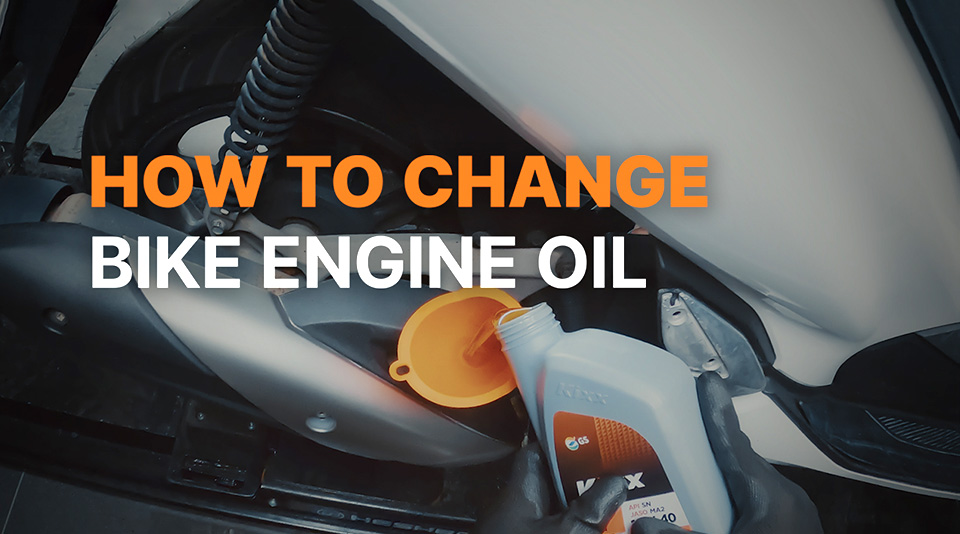
Here’s what you’ll need to change your oil: engine oil, an oil filter, gloves, wipes, a funnel, a wrench and socket set, a drain pan for oil disposal, and a bike stand.

Since bikes vary by model, we’ll show you two options. Start the bike and warm up the engine to its normal operating temperature.
Step 1. Choose the Right Engine Oil and Filter
Check your bike’s manual and make sure you have the right engine oil and filter.
Step 2. Prepare for Oil Drainage
For better engine oil drainage, make sure your bike is on a flat surface and leveled. Remove the oil cap on the top of the engine, and place a drain pan underneath the oil tank to collect the used oil.
Step 3. Drain the Engine Oil
Locate the oil tank bolts on the underside of the bike and carefully unscrew it counterclockwise, then wait for the waste oil to completely drain out. Note that some bikes have an engine guard underneath, which needs to be removed beforehand. After completely draining the used oil, tighten the bolt to close the tank.
Be careful not to overtighten the bolt as it may cause wear and fail to fully secure.
 Step 4. Change the Oil Filter
Step 4. Change the Oil Filter

Some bike models do not have an oil filter. If your bike requires an oil filter change, follow along to see how this is done.

Remove the existing oil filter from the bottom of the bike by slowly turning it counterclockwise. Then, take the new filter and apply a small amount of oil around the seal before installing it. Keep in mind that this may vary depending on bike models. Be careful not to over-tighten the new filter!
Step 5. Add New Engine Oil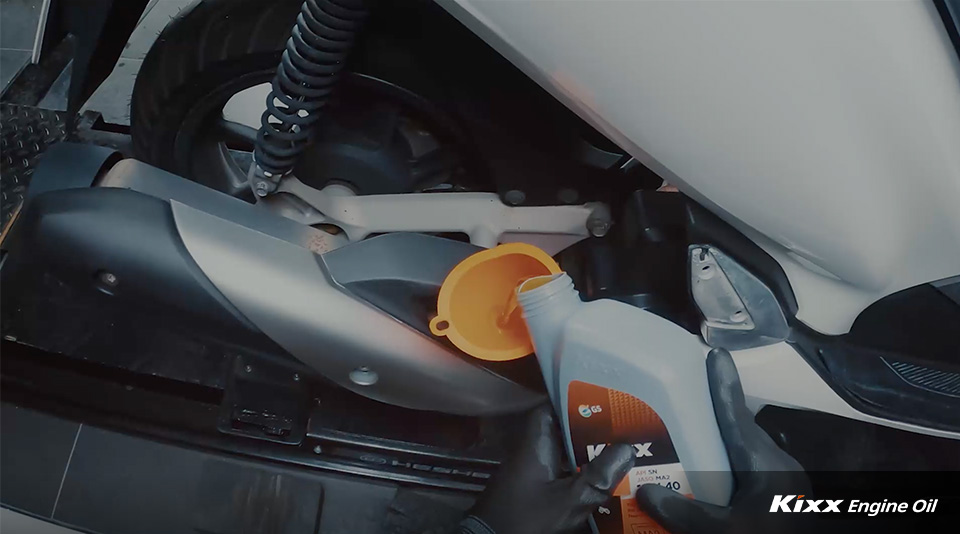
Fill the oil tank with fresh engine oil using a funnel, then close the oil cap. Warm up the engine and allow a minute or two for the new engine oil to settle.
Depending on your model, check the engine oil gauge to ensure it’s at the proper level and drain or top off as needed. Finish off by cleaning any excess oil on the engine surface.
Change your oil regularly, Kixx:
To ensure optimal engine performance and fuel economy, it is crucial to change your engine oil regularly.
Learn more about how to change your car engine oil with Kixx.

To change your car engine oil, please prepare: engine oil, an oil filter, an air filter, a wrench and socket set, gloves, wipes, a funnel, a drain pan for oil disposal, a carjack and jack stands.
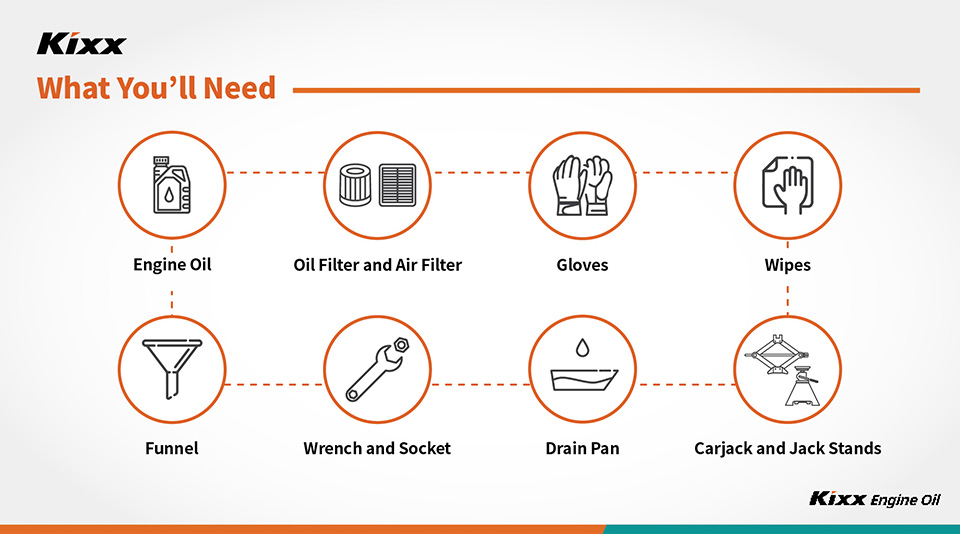
Start the car to warm up the engine, and be sure to install a safety device when lifting a car.
 Step 1. Choose the Right Engine Oil and Filter
Step 1. Choose the Right Engine Oil and Filter
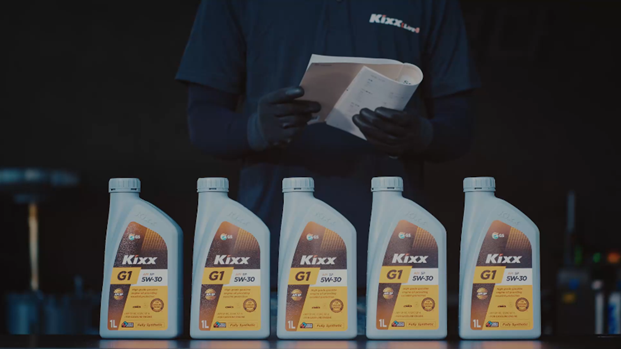
Check your vehicle’s manual and make sure you have the right engine oil and filter.
Step 2. Prepare for Oil Drainage
Place the carjack under the car, and slowly lift the vehicle. After the vehicle is fully lifted, install the jack stands and secure it in place. Once the jack stands are securely installed, remove the carjack.
Remove the oil cap from the oil tank, and place a drain pan under the vehicle to collect the used oil.
Step 3. Drain the Engine Oil
Find the oil tank located underneath the vehicle and position the lift drain found at the repair shop. Carefully loosen the bolt on the oil tank and wait for the used oil to drain. Completely draining the engine oil takes about 30-45 minutes.
Step 4. Change the Oil FilterAfter the used oil is completely drained, tighten the bolt to close the oil tank. Here, make sure not to overtighten the bolt.

Then, rotate the bolt counterclockwise, remove the old oil filter and replace it with a new filter.
Step 5. Add New Engine Oil
Using a funnel, top up fresh engine oil into the oil tank, and wait for a few minutes for the new oil to settle in. You can make the most of this time by replacing the cabin air filter.
To finish off, push the clean dipstick back in, take it out again to inspect the engine oil level, then place the dipstick and oil cap back into place. Lastly, start the car to warm up the engine for a minute or two and re-check the dipstick to make sure that it’s at the proper level.
Change your oil regularly, Kixx:
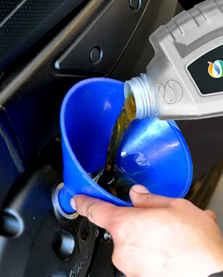
Choosing between synthetic oil and conventional engine oil can be confusing until you know about them. Conventional oil was considered best until the introduction of a high-performance engine that needed a superior engine oil to prevent its wear and tear and offered superior performance. Synthetic oil fits the bill perfectly for long-lasting maintenance and performance.
But the drawback here is that synthetic oil is costlier than conventional oil, which forces many to rethink their choice. So here is a comparison between these engine oils to make your choice easier.
Conventional OilThe conventional engine oil is the crude petroleum oil refined several times over and added with a few additives for better functioning. This oil is chosen over the other options by many because of its affordability.
ProsThe biggest drawback of conventional oil is that it needs to be changed frequently. Even though it sustains higher temperatures, it gets decomposed and evaporates just as quickly.
The decomposition and the crude nature of the oil produce more sludge that can clog the engine.
The structure of mineral oil molecules make it not so suitable for low temperature and results in poor fuel economy
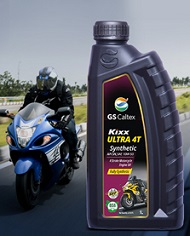
Synthetic engine oil uses a superior grade base and many other man-made components in the form of additives and other ingredients. The formulation gives it evenly sized and shaped molecules that offer uniform performance, better circulation, higher sustenance, and better compatibility with the climate changes.
ProsThe only disadvantage of synthetic oil over conventional oil is that it is expensive. Even if the price range is high, it does not nullify the fact that synthetic engine oil can perform better than conventional oils and most importantly, protects the engine and enhances the life of the engine.
The best choiceModern automakers are relying more on the power of the engine rather than the size. This change requires it to work quicker, smoother, and longer. All of these are possible when there is equally well-performing engine oil to lubricate and maintain the engine parts. The comparison here shows that even though conventional oil has its perks, synthetic oil has a far better reach to be the clear winner.

Oil changes on a regular basis keep your engine clean. As a result, selecting the incorrect grade of engine oil for a car or opting for a lower quality one can have disastrous consequences. Car Engine Oil is critical to the health of a vehicle. They make it easier for the engine to cool, clean, and protect itself. Choosing the appropriate engine oil is critical for improved engine performance. We all want our car engines to work smoothly, but many people must know that selecting the right engine oil is critical.
Oil change at recommended time intervals helps in ensuring the smooth functioning of the engine. Delaying oil changes causes a myriad of future engine problems – power loss, downtime, and underperformance of the vehicle to name a few.
Choosing the right engine oil like Kixx PAO 1, Kixx G1 Synthetic Power, and Kixx G1 Synthetic can help your car’s engine to run better for a long time.
Choosing the perfect oil demands considering various factors that have both a direct and indirect impact on engine performance. These are as follows-
Going through the manual would be the greatest option when selecting the right Car Engine Oil. It would include all the recommended engine oil qualities the vehicle would require for peak performance.
You would choose one of these engine oils based on the model, vehicle requirements, and driving needs. Whereas mineral engine oil is less expensive, synthetic engine oil offers superior engine performance at a higher cost. Semi-synthetic is another fantastic option within your pricing range that provides some of the benefits of mineral and synthetic oils. Kixx G1 Synthetic range of premium & synthetic engine oils from GS Caltex India are one of the best engine oils available in India.
Whether the vehicle is used in hot or cold conditions influences the engine oil selection. If the weather on both sides is harsh, the engine oil should be able to perform correctly in both cold and hot temperatures.
The viscosity of the oil is the difficulty with which it flows smoothly. Higher viscosity oil flows slowly through the engine, while lower viscosity oil moves swiftly. Oils with low viscosity operate well in cold weather, whereas oils with high viscosity function well in hot weather. The lower the number, the more resistant the oil is to freezing temperatures. The other number reflects how thick the engine oil is.
There are numerous standards all throughout the world. These standards will assist you in determining the engine oil's suitability and acceptability
Finally, learning and being acquainted with your engine oils is critical. Knowing the basics of engine oils will assist you in selecting the best engine oil for your car. Selecting the proper engine oil would enable efficient, smooth, and satisfying vehicle performance.
It is vital to be aware of the various car Engine Oil available in India for our vehicles to select the appropriate engine oil for our needs. Understanding how to select the correct engine oil will improve the efficiency, smoothness, and enjoyment of your vehicle's performance.
Just like any motorized vehicle, motorcycles need engine oil for smooth operation and fuel efficiency. Motorcycle engines require lubricant with different properties than other vehicles, so it is recommended...

Just like any motorized vehicle, motorcycles need engine oil for smooth operation and fuel efficiency. Motorcycle engines require lubricant with different properties than other vehicles, so it is recommended that you use an engine oil formulated specifically for motorcycles. There are many types of engine oil available today and while it may seem overwhelming to navigate your way through all these options, choosing the right engine oil for your motorcycle doesn’t have to be stressful. Read on below to learn what to consider when looking for an engine oil!
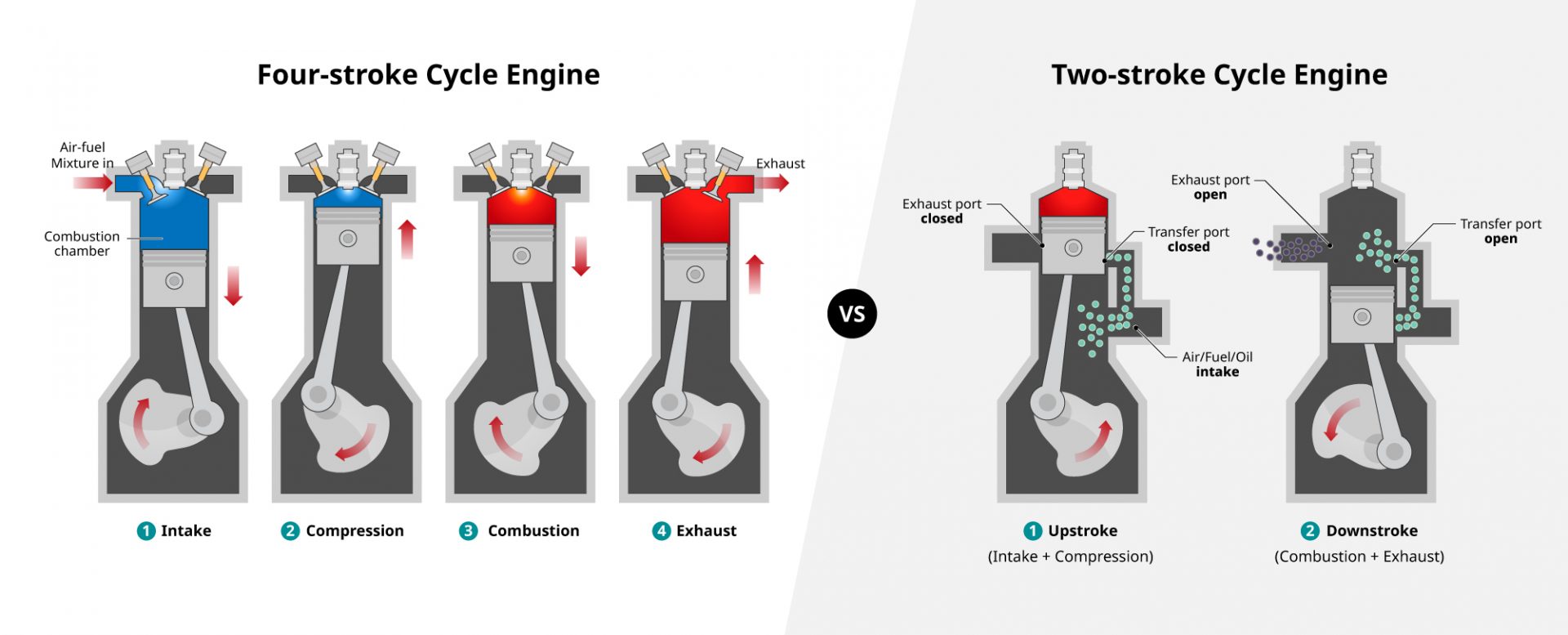 While two-stroke engines deliver great power-to-weight ratio, and are simpler and cheaper to manufacture, they tend to produce more noise and exhaust compared to the four-stroke engines. Four-stroke engines are also more fuel efficient and therefore more eco-friendly.
Those fundamental differences in the way two and four-stroke engines work mean they require different types of lubricant, so it is important to know which engine type your motorcycle has when selecting an engine oil.
While two-stroke engines deliver great power-to-weight ratio, and are simpler and cheaper to manufacture, they tend to produce more noise and exhaust compared to the four-stroke engines. Four-stroke engines are also more fuel efficient and therefore more eco-friendly.
Those fundamental differences in the way two and four-stroke engines work mean they require different types of lubricant, so it is important to know which engine type your motorcycle has when selecting an engine oil.
 By contrast, the M345 specifications for two-stroke engines delivers the level of engine protection and exhaust emissions.
By contrast, the M345 specifications for two-stroke engines delivers the level of engine protection and exhaust emissions.

 Synthetic oils are highly refined base oils that have lower levels of impurities than conventional mineral oil. Synthetic oils are also more chemically stable in comparison to mineral oils, enabling better wear prevention under high pressure such as frequent use or high speeds. They also perform better than mineral oils in extreme climates as they can withstand damage from heat and do not break down as quickly.
Synthetic oils are highly refined base oils that have lower levels of impurities than conventional mineral oil. Synthetic oils are also more chemically stable in comparison to mineral oils, enabling better wear prevention under high pressure such as frequent use or high speeds. They also perform better than mineral oils in extreme climates as they can withstand damage from heat and do not break down as quickly.
 All engine oils have their JASO/API specifications and viscosity grade written on their packaging. With the information in this article, picking the right engine oil for your motorcycle is as simple as checking the label. To see Kixx’s motorcycle engine oil products, click the image to the left.
All engine oils have their JASO/API specifications and viscosity grade written on their packaging. With the information in this article, picking the right engine oil for your motorcycle is as simple as checking the label. To see Kixx’s motorcycle engine oil products, click the image to the left.

Why Choose GS Caltex as Your Partner? 🤝
Step 1: Research and Preparation 📚
Step 2: Contact GS Caltex India 📞
Step 3: Complete the Application 📝
Step 4: Meeting with GS Caltex Representatives 🤝
Step 6: Investment and Agreement 💼

Q1: Is it necessary to have prior experience in the lubricant business to become a GS Caltex Oil Dealer?
While prior experience can be beneficial, it's not always a strict requirement. GS Caltex values passion, commitment, and a willingness to learn.
Q2: What is the minimum investment required to secure a GS Caltex Oil Dealership?
The investment required may vary based on location and market conditions. It's best to discuss this with GS Caltex representatives during the application process.
Q3: How long does the application process typically take?
The application process can vary in duration, but it's essential to be patient and thorough in each step to increase your chances of success.
Q4: Can I choose my preferred location for the dealership?
You can express your preferences, but GS Caltex will consider factors like market potential and their distribution network when finalising the location.
Q5: What kind of support can I expect from GS Caltex as a dealer?
GS Caltex provides extensive support, including product training, marketing assistance, and technical guidance to help you run a successful dealership.
Regularly performed maintenance is one of the best ways to keep your vehicle running smoothly. Though engine oil changes and tune-ups are best performed by an experienced professional, it...

Regularly performed maintenance is one of the best ways to keep your vehicle running smoothly. Though engine oil changes and tune-ups are best performed by an experienced professional, it can be beneficial to keep some motor oil on hand for topping up your engine in between. But how long can you store engine oil? Where should it be stored? Read on for answers to some of the most commonly asked questions regarding how to store engine oil safely and effectively.

In general, unopened engine oil, transmission oil, hydraulic oil and the like have a shelf life of 3-5 years. Since the shelf life can vary by product, it is important to check the use-by date or date of manufacture printed on the product’s container before using stored oil in your vehicle. Write this date on the label in permanent marker to make it easier to locate. Keep in mind that storage conditions such as location, temperature, exposure to direct sunlight, humidity and whether the product has previously been opened also greatly affect the usable period for engine oil.

When exposed to direct sunlight, engine oil can experience thermal breakdown which reduces the oil’s viscosity or thickness. If used, heat damaged oil could potentially cause harm to the vehicle’s engine. To make sure this doesn’t happen, avoid storing oil in a place that experiences either extreme heat or cold as both can affect oil viscosity. Furthermore, enclosed spaces with little airflow should be avoided as moisture and humidity can cause oxidation. To prevent oxidation and other types of damage, store engine oil in a dry, temperate environment away from direct sunlight.

After engine oil is opened, its lifespan is shortened due to moisture in the air which, as we learned previously, can cause oxidation. Consequently, it is recommended to use engine oil in its entirety after opening. However, if it cannot be utilized immediately, here’s how to store used motor oil or leftover oil. Make sure that the oil is stowed in a tightly sealed vessel (preferably the original container) and placed in a cool, dry location away from direct sunlight. When re-opening the product, carefully check for any problems such as discoloration, a change in viscosity or the presence of foreign substances before using the oil in your vehicle.

Ensuring the longevity of both mineral and synthetic engine oil requires that it is kept in a tightly sealed container and placed in a cool, dry, well-ventilated location away from direct sunlight. Keep in mind that while the storage for both products is the same, mineral oil does tend to have a shorter shelf life than synthetic oil.
While proper engine oil storage is essential for maintaining the product’s integrity, it doesn’t have to be complicated. Simply follow these key guidelines:
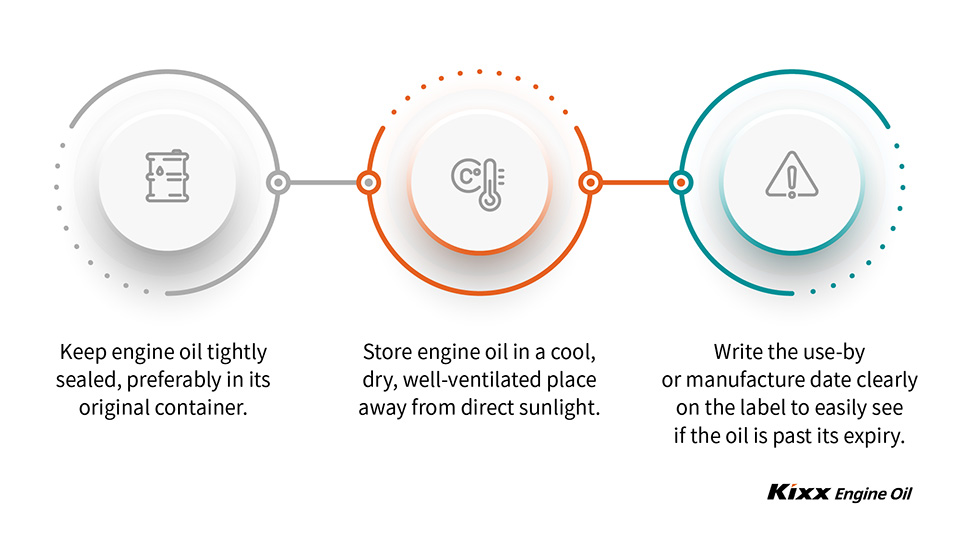
Remember, engine oil is a toxic substance that cannot be tossed in the garbage or poured down the drain. When engine oil needs to be discarded, it is imperative to drop it off at your local waste management center or trusted auto shop.
Now you know the ins and outs of how to store motor oil. Check back regularly for more Smart Tips content keeping you informed about engine oil, vehicle maintenance and more. To view the full range of Kixx products, visit https://www.kixxoil.com.

One of the best ways to maintain the smooth operation of your vehicle is through routine maintenance. It can be advantageous to keep some motor oil on hand for topping up your engine in between, even though an experienced professional should perform engine oil changes and tune-ups. How long can engine oil be stored, though? What location should you store it in? Continue reading for some of the most frequently asked questions about how to store engine oil securely and efficiently.
The shelf life of an unopened engine, transmission, hydraulic, and similar oils ranges from 3 to 5 years. Before using stored oil in your car, it's crucial to double-check the use-by date or date of manufacture printed on the container because shelf life can vary by product. To make it simpler to find, write this date in a permanent marker on the label. Remember that the shelf life of engine oil is significantly influenced by storage factors like location, temperature, exposure to direct sunlight, humidity, and whether the product has ever been opened.
Engine oil may undergo thermal breakdown when exposed to direct sunlight, which lowers the thickness or viscosity of the oil. Heat-damaged oil, if used, may harm the engine of the car. Avoid storing oil in an area that experiences extreme heat or cold because both can change the viscosity of the oil. Additionally, avoid enclosed areas with little airflow because oxidation can be brought on by moisture and humidity. Store engine oil away from direct sunlight in a dry, temperate environment to avoid oxidation and other types of damage.
Engine oil's lifespan is reduced after it is opened by air moisture, which, as we previously learned, can lead to oxidation. Therefore, it is advised that after opening, use all of the engine oil. Here's how to store used motor oil or leftover oil, though, if it can't be used right away. Make sure the oil is stored in a container that is tightly sealed, preferably the original one, and that it is kept out of the sun's direct line of sight. Before using the oil in your vehicle, carefully check for any issues like discolouration, a change in viscosity, or the presence of foreign substances when re-opening the product.
Both mineral and synthetic engine oil must be kept in a tightly sealed container and stored away from direct sunlight in an area that is cool, dry, and well-ventilated. Although both products can be stored, mineral oil typically has a shorter shelf life than synthetic oil.
Although proper engine oil storage is crucial for preserving the product's integrity, it need not be difficult. Just adhere to the following important rules:
Keep in mind that engine oil is toxic and should not be thrown in the trash or dumped down the toilet. Dropping off engine oil at your neighbourhood waste management facility or reputable auto shop is essential.
You are now fully informed about how to store motor oil. For more Smart Tips on keeping you informed about things like engine oil and car maintenance, keep checking back frequently. Visit https://www.gscaltexindia.com/ to see all of Kixx's products.
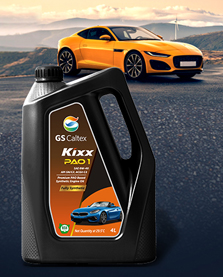
Engine oil is vital for automobiles as it keeps the engine clean, helps it function smoothly and reduces friction between moving parts. Since it performs such a crucial role, it is important to choose the right engine oil for each vehicle.
Knowing the type of engine oil is important as each oil has a specific advantage suitable for specific vehicle.
Know about engine oilEngine oils can broadly be classified below:

Choosing the right engine oil requires considering a few factors that have a direct and indirect impact on the engine functioning. These are:
Type of vehicleThe type of vehicle is the primary factor in determining engine oil. Whether it is old or new, runs on petrol or diesel, has a higher performance engine or not, the brand, and the series, etc., are all vital elements to consider.
Environmental factorsWhether the vehicle operates in extreme temperature conditions affects the engine oil choice. If the weather conditions are in both extremes then the engine oil should be the one that can perform well under low as well as higher temperatures.
Driving circumstancesCity driving can take a toll on the engine causing it to age faster. Such stressful conditions need high-performance engine oil.
Quality of oilThe viscosity of oil is its resistance to flow smoothly. Higher viscosity oil flows slowly, and lower viscosity oil flows faster through the engine. Low viscosity oils are suitable for cold weather, while the high viscosity oils fare well in higher temperatures. Viscosity is shown as 5W-30 where W denotes winter. The lower the number, the better the oil is for cold conditions. The other number denotes a thicker engine oil.
Wrapping UpThe most common choice of engine oil these days is synthetic oil because of its suitability with extreme climatic conditions and driving circumstances. The other factor to check on is the viscosity of the oil, mentioned in the owner’s manual of the vehicle.
However, it is advised to refer to owner’s manual for choosing the right viscosity grade

What Is The Engine Oil Supply Business In India About?
Benefits of The Engine Oil Supply Business In India
Business Opportunities In The Engine Oil Supply Business In India
Facts About The Engine Oil Supply Business In India
Types Of Engine Oil Supply Businesses In India
The Peak Season For Engine Oil Supply Business In India
How To Start The Engine Oil Supply Business In India: Step-By-Step Guide
How To Produce & Package Engine Oil In India
Types Of Equipment Used To Produce, Package & Supply Engine Oil In India
Target Market For Engine Oil Products In India
How To Sell or Market Engine Oil Products In India
Engine oil, referred to as a lubricant, plays a crucial role in automotive and industrial engines by diminishing friction and wear between moving components. This essential fluid ensures smooth operation and prolongs machinery lifespan, while also preventing engine damage and enhancing overall performance.
The engine oil supply business in India involves the production, packaging, and distribution of engine oil to various sectors, including automobile workshops, industries, retailers, and consumers. As one of the fastest-growing economies in the world, India's automobile and industrial sectors have created a high demand for engine oil, making it a lucrative business opportunity.


The demand for engine oil is relatively steady throughout the year. However, there may be slight fluctuations based on seasonal factors, such as increased vehicle usage during festivals and holidays.
The production process involves blending the base oil with additives to create the desired engine oil formulation. The packaging should be secure, leak-proof, and visually appealing.

Starting an engine oil production and supply business in India offers numerous opportunities due to the country's growing automotive and industrial sectors. With careful planning, quality products, effective marketing, and strategic partnerships, aspiring entrepreneurs can establish a successful and lucrative venture. Remember to stay adaptable and continuously adapt to market demands to thrive in this ever-evolving industry.


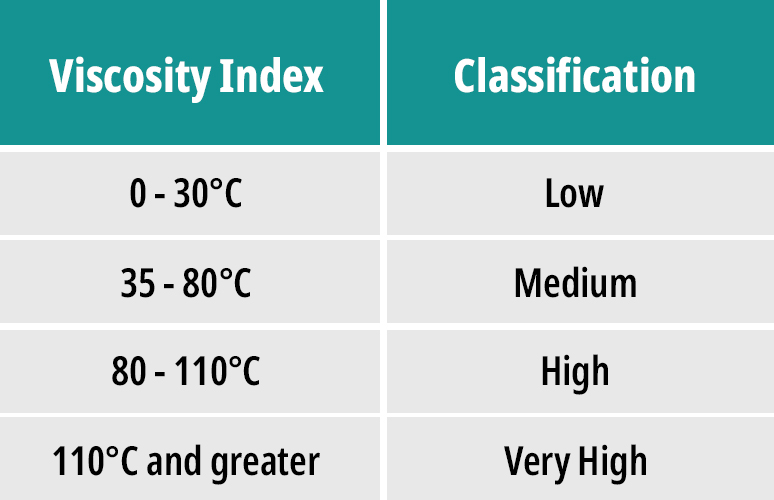
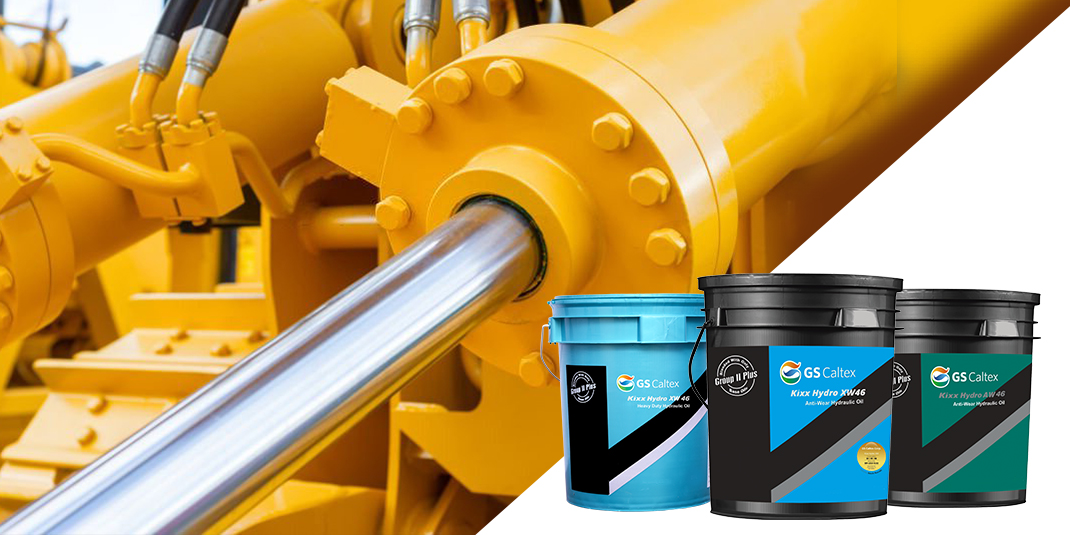
Hydraulic systems play a crucial role in a wide range of industries, powering machinery and equipment with the force of pressurized fluid. To ensure optimal performance and longevity of hydraulic systems, the selection of the right hydraulic fluid is paramount. In this blog, we will delve into the fundamentals of hydraulic systems, explore the importance of fluid selection, and highlight the role of GS Caltex India in providing superior hydraulic fluids.
Hydraulic systems utilize a fluid medium, typically hydraulic oil or fluid, to transfer power and generate mechanical force. These systems consist of various components, including pumps, valves, actuators, and hydraulic cylinders. The hydraulic fluid is pressurized by a pump, and it flows through the system, transmitting force and enabling the operation of machinery with precision and efficiency.
Selecting the appropriate hydraulic fluid is crucial for the optimal functioning of hydraulic systems. The right fluid not only lubricates the components but also provides corrosion protection, heat dissipation, and contamination control. It must have the right viscosity, chemical stability, and performance characteristics to withstand the demanding conditions within hydraulic systems.
GS Caltex India is a trusted provider of high-quality lubricants and hydraulic fluids that cater to diverse industrial needs. Their range of hydraulic fluids is meticulously formulated and engineered to deliver exceptional performance, durability, and efficiency. GS Caltex India understands the unique requirements of hydraulic systems and offers a comprehensive portfolio of hydraulic fluids that meet or exceed industry standards.
GS Caltex India hydraulic fluids provide excellent lubrication, reducing friction and wear on system components. This helps extend the lifespan of hydraulic equipment and reduces maintenance costs.
Hydraulic systems generate heat during operation. GS Caltex India hydraulic fluids are formulated to withstand high temperatures, maintaining their performance and protecting system components from thermal stress.
Contaminants, such as dirt, moisture, and air, can negatively impact hydraulic system performance. GS Caltex India hydraulic fluids have superior filtration properties and excellent resistance to foaming, ensuring clean and efficient operation.
Hydraulic systems can be exposed to moisture and other corrosive elements. GS Caltex India hydraulic fluids are fortified with corrosion inhibitors, offering reliable protection against rust and corrosion, thus extending equipment life.
GS Caltex India is committed to sustainability. Their hydraulic fluids are designed with low-toxicity additives and are formulated to meet or exceed environmental regulations, ensuring minimal impact on the environment.
Selecting the right hydraulic fluid is essential for the efficient and reliable operation of hydraulic systems. GS Caltex India, with its expertise and dedication to quality, provides a wide range of high-performance hydraulic fluids that offer superior lubrication, thermal stability, contamination control, and corrosion protection. By choosing GS Caltex India hydraulic fluids, industries can optimize the performance and durability of their hydraulic systems, reduce maintenance costs, and contribute to a greener future. Trust GS Caltex India to empower your hydraulic systems with exceptional hydraulic fluid solutions.
Q1: Why is hydraulic fluid important?
Hydraulic fluid is essential because it transfers power and motion within hydraulic systems. It acts as a medium to transmit forces, lubricates moving parts, dissipates heat, and protects components from wear and corrosion. Choosing the right hydraulic fluid is crucial for optimal system performance and reliability.
Q2: What are the main types of hydraulic fluids?
There are various types of hydraulic fluids available, including mineral-based oils, synthetic oils, and water-based fluids. Each type has its own advantages and is suited for specific applications. Synthetic fluids, such as polyalphaolefin (PAO) or phosphate ester-based oils, are gaining popularity due to their superior performance in extreme conditions.
Q3: How do I select the right hydraulic fluid for my application?
To select the appropriate hydraulic fluid, consider factors such as the operating temperature range, system pressure, environmental conditions, component compatibility, and manufacturer recommendations. Consulting with hydraulic fluid suppliers or industry experts can help you make an informed decision.
Q4: Can I mix different hydraulic fluids?
It is generally not recommended to mix different types of hydraulic fluids. Mixing incompatible fluids can result in poor system performance, seal degradation, component damage, and reduced fluid life. Always consult the manufacturer's recommendations and guidelines before changing or topping up hydraulic fluids.
Q5: How often should hydraulic fluid be changed?
The frequency of hydraulic fluid changes depends on several factors, including operating conditions, system cleanliness, and the type of hydraulic fluid used. Regular oil analysis, monitoring fluid condition, and following the manufacturer's recommended maintenance schedule will help determine the optimal fluid change interval.
Q6: What are the consequences of using the wrong hydraulic fluid?
Using the wrong hydraulic fluid can lead to poor system performance, reduced efficiency, increased wear and tear on components, seal failures, leaks, and even catastrophic system failure. It is crucial to ensure that the selected hydraulic fluid meets the specifications and requirements of your system.
Q7: How can I maintain the hydraulic fluid and system reliability?
To maintain hydraulic fluid and system reliability, follow these best practices: a. Regularly monitor fluid levels and condition. b. Keep the system clean and free from contaminants. c. Conduct routine maintenance and fluid analysis. d. Follow manufacturer guidelines for fluid change and filtration. e. Train operators on proper system operation and maintenance procedures.
Q8: Where can I find reliable hydraulic fluid suppliers?
Reliable hydraulic fluid suppliers can be found through various channels, such as industrial equipment distributors, authorized dealers of hydraulic system components, or directly contacting fluid manufacturers. Additionally, online platforms and industry trade shows can provide valuable information and connections with reputable suppliers.
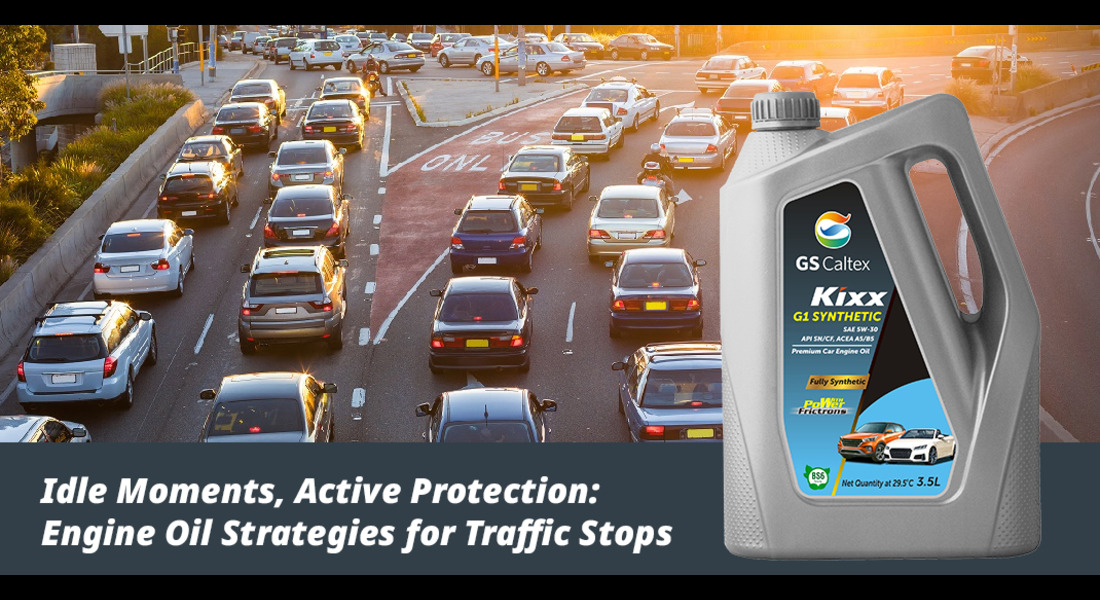

Mining equipment is an essential part of the mining industry, enabling the extraction of valuable resources from the earth. These machines often operate in harsh and demanding conditions, subject to heavy loads, extreme temperatures, and dust exposure. To ensure the smooth functioning and longevity of mining equipment, the proper use of lubricants is of paramount importance. In this blog post, we will explore the critical role and importance of lubricants in the mining equipment, emphasizing their significance in enhancing performance and reducing downtime. We'll also highlight the use of heavy-duty lubricants provided by GS Caltex India, a leading name in the industry.
Mining equipment relies heavily on fuel to power its operations. However, using fuel alone is insufficient to ensure optimal performance and efficiency. Lubricants play a vital role in this context by reducing friction and wear between moving components. By applying the right lubricants, such as heavy-duty mining lubricants, operators can achieve reduced fuel consumption, lower emissions, and increased power output. The use of high-quality lubricants also protects the engine from premature wear, enabling it to operate efficiently for an extended period.
GS Caltex India offers a range of advanced lubricants specifically designed for the mining industry. These products not only enhance the equipment's performance but also contribute to overall cost savings and environmental sustainability through improved fuel economy.
Frequently situated in remote regions, mining operations face difficulties and high expenses in carrying out regular maintenance and repairs. To address this, heavy-duty lubricants assume a vital role by minimizing the necessity for
By choosing the right lubricants, mining companies can significantly extend the equipment's service intervals, leading to increased productivity and minimized downtime. GS Caltex India's heavy-duty lubricants are engineered to withstand the harshest conditions, ensuring mining equipment operates reliably and efficiently with reduced maintenance requirements.
Mining equipment operates under diverse temperature conditions, ranging from scorching heat to freezing cold environments. Lubricants with varying viscosity levels are crucial to maintaining optimal performance throughout these extreme conditions.
High viscosity lubricants are suitable for heavy load-bearing components, providing robust film strength to prevent metal-to-metal contact and reduce wear. On the other hand, low-viscosity lubricants are ideal for cold climates, as they ensure smooth startup and fluidity even at lower temperatures.
GS Caltex India offers a comprehensive range of lubricants with different viscosity levels, tailored to suit various mining equipment requirements. Whether it's high temperatures or freezing conditions, their lubricants guarantee consistent performance and protection.
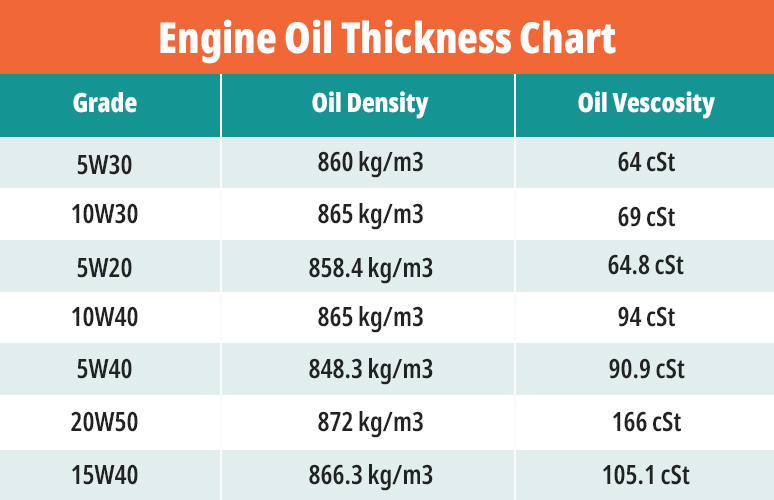
Friction is a significant challenge faced by mining equipment, leading to loss in power and so energy, increased fuel consumption, and accelerated wear of components. By utilizing advanced lubricants, friction can be significantly reduced, enhancing overall efficiency and minimizing energy losses.
GS Caltex India's heavy-duty lubricants are formulated with cutting-edge additives to provide excellent anti-friction and anti-wear properties. By mitigating friction-related issues, these lubricants ensure smoother operation, reduced maintenance costs, and increased equipment lifespan.
In mining operations, some equipment may be exposed to high temperatures and harsh environmental conditions, leading to oxidation and aeration of lubricants. Oxidation can result in oil thickening and the formation of harmful sludge, while aeration can decreased lubricant effectiveness and leads to cavitation, micro-pitting, pitting, and spalling.
GS Caltex India's heavy-duty lubricants are engineered to resist oxidation and aeration, ensuring prolonged oil life and consistent performance even in challenging environments. By maintaining the integrity of the lubricants, mining companies can avoid costly equipment failures and extend oil drain intervals.
In conclusion, lubricants play a crucial role in mining equipment, enabling smooth operations, reducing friction, and protecting vital components. GS Caltex India offers a range of high-quality heavy-duty lubricants designed explicitly for the mining industry's demanding conditions. By utilizing these advanced lubricants, mining companies can enhance equipment performance, increase productivity, and minimize downtime. Additionally, the proper use of lubricants can contribute to cost savings, improved fuel economy, and reduced environmental impact.
Investing in quality lubricants from GS Caltex India is not only a smart business decision but also a commitment to sustainable mining practices and equipment longevity. Embracing the right lubrication solutions is the key to unlocking the full potential of mining equipment and maximizing the productivity of mining operations.
Q1: Why are lubricants essential for mining equipment?
Mining equipment relies heavily on lubricants to minimize friction between moving parts, thereby preventing wear and tear and ensuring seamless operations. Additionally, these lubricants safeguard critical engine components, promote fuel efficiency, and prolong the equipment's lifespan, resulting in lower maintenance expenses and enhanced productivity.
Q2: How do heavy-duty lubricants help in mining operations?
Heavy-duty lubricants, such as those provided by GS Caltex India, are specifically designed to withstand the harsh conditions encountered in mining operations. These lubricants offer superior wear protection, reduce the need for frequent maintenance, and ensure consistent performance even in extreme temperatures and challenging environments.
Q3: Can lubricants contribute to fuel economy in mining equipment?
Yes, the use of high-quality lubricants can significantly contribute to fuel economy in mining equipment. By reducing friction and wear, lubricants optimize engine performance, leading to reduced fuel consumption and lower emissions. This not only helps mining companies save on fuel costs but also promotes environmental sustainability.
Q4: How do viscosity levels in lubricants impact mining equipment performance?
Viscosity levels in lubricants play a vital role in ensuring optimal performance in different operating conditions. High viscosity lubricants provide robust film strength for heavy load-bearing components, while low viscosity lubricants ensure smooth startup and fluidity in colder climates. Choosing the right viscosity level is essential for maintaining efficiency and extending the equipment's lifespan.
Q5: Can using lubricants reduce downtime in mining operations?
Yes, using the right lubricants, especially heavy-duty ones, can reduce downtime in mining operations. These specialized lubricants protect critical components, extending their life and reducing the risk of unexpected breakdowns. Consequently, the equipment experiences fewer failures, leading to increased productivity and minimized downtime.
Q6: How do GS Caltex India's heavy-duty lubricants address oxidation and aeration challenges?
GS Caltex India's heavy-duty lubricants are formulated with advanced additives to resist oxidation and aeration. This ensures prolonged oil life and consistent lubricant performance even in high-temperature and harsh environments. By preventing oil thickening and harmful sludge formation, these lubricants help maintain equipment reliability and extend oil drain intervals. Controlling foam avoiding cavitation, micro-pitting, pitting, and spalling and help to increase the equipment durability.
Q7: Can lubricants improve the overall efficiency of mining equipment?
Absolutely! Lubricants play a pivotal role in improving the overall efficiency of mining equipment. By reducing friction and energy wastage, lubricants contribute to smoother operations and lower fuel consumption. Additionally, lubricants protect components from wear, reducing maintenance requirements and optimizing the equipment's overall performance.
Q8: Are GS Caltex India's lubricants suitable for all types of mining equipment?
GS Caltex India offers a comprehensive range of lubricants designed explicitly for the mining industry. Their product portfolio includes lubricants suitable for various mining equipment types, ranging from heavy machinery to specialized vehicles. Whether it's dump trucks, excavators, or loaders, GS Caltex India's lubricants cater to the diverse needs of mining operations.
Q9: How do lubricants contribute to sustainable mining practices?
Lubricants contribute to sustainable mining practices in multiple ways. By reducing fuel consumption and emissions, they promote environmental responsibility. Moreover, lubricants' ability to extend equipment lifespan and reduce maintenance needs leads to lower resource consumption and waste generation, supporting the principles of sustainable mining.
Q10: Are there any specific safety considerations while using lubricants in mining equipment?
Lubricants contribute to sustainable Despite the performance and longevity benefits that lubricants bring to mining equipment, safety remains of utmost importance. Adhering to manufacturer guidelines and recommendations regarding lubricant usage, storage, and disposal is imperative. Regular inspections and maintenance play a critical role in preserving the equipment's optimal functionality and ensuring its safe operation within the mining environment. mining practices in multiple ways. By reducing fuel consumption and emissions, they promote environmental responsibility. Moreover, lubricants' ability to extend equipment lifespan and reduce maintenance needs leads to lower resource consumption and waste generation, supporting the principles of sustainable mining.
Construction companies use a lot of different kinds of equipment. The equipment needs to be inspected from time to time to have a proper uptime of that equipment for reaping maximum benefits out of it. To keep the equipment in healthy condition, it is important to use the right quality lubricant meeting the recommended specification so that the maintenance cost comes down or is kept under control.

A lubricant not only makes sure that the equipment runs smooth but also helps in a lot of other things; let us now look at some of the advantages of using lubricant for construction equipment:
Protect Equipment: The layer formed by lubrication helps protect component surfaces against rust and corrosion by preventing them from reacting with water or other corrosive substances. Lubricants also serve as intermediaries that carry away contaminants to filters in the system helping remove suspended particles and protecting components.
Enhance Temperature Control: Lubricants absorb heat, drawing it away from surfaces. Depending on the application, a lubricant either dissipates the heat or transports it to a cooling device. In either case, lubricants help keep operational temperatures in balance and reduce the risk of heat-related component damage.
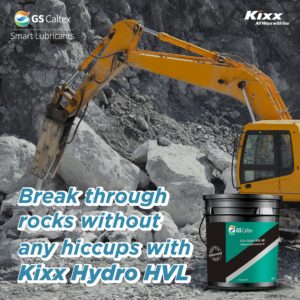
Improve Efficiency and Reliability Of Machinery: By minimizing friction, wear, excessive heat, rust, corrosion, contamination, and more, lubrication helps equipment do its job longer, more consistently, and more effectively.
Reduce The Downtime and Maintenance Costs: Properly lubricated equipment runs longer and more reliably; operations don’t need to be interrupted as frequently for maintenance and repairs. Thus, lubrication reduces costs to maintain, repair, and replace equipment and parts. Plus, minimizing stoppages helps improve productivity which, in turn, increases profitability.
GS Caltex India Pvt Ltd provides the best solution with its vast portfolio of lubricants suitable for all types of machineries. For more details visit www.gscaltexindia.com
Construction equipment can perform better based on right choice of Lubricants . That's why GS Caltex have invested in millions of testing hours to prove that its flagship brand Kixx lubricants provide engines and transmissions with superior protection to extend equipment life and reduce downtime.
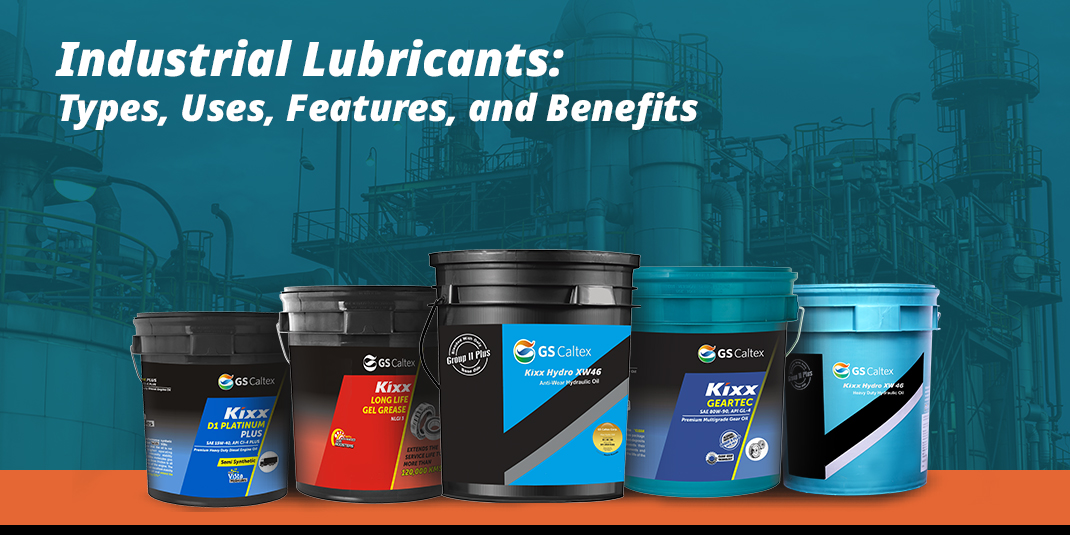
Industrial lubricants are substances that are used to reduce friction and provide lubrication between moving parts in machinery and equipment. They are crucial for ensuring the smooth operation, longevity, and reliability of various industrial applications. In this blog post, we will delve into the different types of industrial lubricants, discuss considerations for choosing the right lubricant, and provide guidelines for proper handling and storage practices.
Grease is a semisolid lubricant that consists of a base oil thickened with a soap-like material called a thickener. It offers excellent adhesion, sealing properties, and resistance to water washout. Grease is commonly used in applications with slow or intermittent movement, high loads, and extreme temperatures.
Liquid lubricants, commonly referred to as oils, are fluid lubricants that offer excellent lubrication properties. They are used in applications where continuous lubrication is required, such as circulating systems or machinery with complex parts. Liquid lubricants are available in various formulations, including mineral oils, synthetic oils, and vegetable-based oils. Mineral oils are derived from crude oil and are cost-effective, while synthetic oils are chemically engineered to offer superior performance, such as high-temperature stability and extended oil change intervals. Vegetable-based oils are environmentally friendly options that are biodegradable and less toxic.
When selecting industrial lubricants, several factors should be taken into account to ensure optimal performance and compatibility with the application. Some key considerations include:
Oil lubrication is widely used in various industrial applications. It is essential for ensuring proper lubrication of bearings, which are critical components in machinery. Proper oil lubrication provides a protective film between the rolling elements and races of bearings, reducing friction and preventing premature wear.
When selecting oil for bearings, it's important to consider factors such as load, speed, temperature, and environmental conditions. Bearing manufacturers often provide guidelines specifying the recommended oil type and viscosity for their products. Adhering to these guidelines helps ensure optimal bearing performance and extended service life.
Choosing the right oil type is crucial, as different oils have varying properties and performance characteristics. Some common oil types include mineral oils, synthetic oils, and biodegradable oils. Mineral oils are suitable for general-purpose applications, while synthetic oils offer enhanced performance in terms of oxidation resistance, thermal stability, and viscosity index. Biodegradable oils are preferred for environmentally sensitive applications.
The viscosity of an oil quantifies its ability to resist flow. It plays a significant role in determining the lubricant's ability to maintain a protective film and carry away heat. The appropriate viscosity grade is determined based on factors such as operating temperature, speed, load, and equipment manufacturer recommendations. Low-viscosity oils are used in high-speed applications, while high-viscosity oils are used in heavy-load or high-temperature applications.
Grease lubrication is widely used in applications where oil lubrication may not be feasible or effective. Grease provides better adhesion and sealing properties, making it suitable for applications with slow or intermittent movement, high loads, and extreme temperatures. It is commonly used in bearings, gears, and other components that require long-lasting lubrication.
Grease contains a thickening agent that gives it its semisolid consistency. Different thickening agents, such as lithium, calcium, polyurea, and aluminum complex, are used to achieve specific performance characteristics. The choice of thickener depends on factors such as operating temperature, speed, load, and compatibility with the application.
Different applications require greases with specific properties and certifications. It is important to consider industry standards and specifications when selecting grease. For example, food-grade greases are necessary for lubricating equipment in the food and beverage industry to ensure compliance with safety regulations.
In cold environments, it is crucial to choose lubricants that can withstand low temperatures without solidifying or losing their lubricating properties. Special low-temperature greases or synthetic oils are often recommended to ensure smooth operation in frigid conditions.
High-temperature applications pose challenges for lubrication due to increased heat and potential oil breakdown. Selecting lubricants with high thermal stability and oxidation resistance is vital to prevent viscosity loss, deposits, and premature wear. Synthetic oils and greases formulated for high-temperature applications are commonly used in such conditions.
In applications where water or moisture is present, such as marine or outdoor equipment, it is crucial to choose lubricants with excellent water resistance. Water-resistant greases and oils help prevent rust, corrosion, and washing out of the lubricant, ensuring reliable performance and protection
Proper handling and storage practices are essential to maintain the quality and performance of industrial lubricants. Some important guidelines include:
Regular oil filtration is necessary to remove contaminants and extend the life of the lubricant. Filtration systems help remove particles, water, and other impurities that can degrade the lubricating properties of the oil. Implementing effective oil filtration practices promotes equipment reliability and reduces maintenance costs. Proper filtration helps maintain the cleanliness of the lubricant, ensuring optimal performance and preventing premature component wear.
In today's environmentally conscious world, adopting green practices in lubricant handling and storage is crucial. This includes proper disposal of used lubricants according to local regulations and recycling containers whenever possible. Additionally, choosing biodegradable or eco-friendly lubricants can help minimize the environmental impact of industrial operations.
Proper storage conditions are necessary to maintain the quality and effectiveness of lubricants. Lubricants should be stored in a clean, dry, and well-ventilated area, away from direct sunlight and extreme temperatures. It is important to prevent contamination by keeping lubricant containers sealed and avoiding contact with water, dirt, and dust. Additionally, lubricants should be stored in a way that ensures easy identification and proper rotation based on their expiration dates.
Contamination can severely affect the performance of lubricants. It is crucial to handle lubricant containers and dispensing equipment with clean and dry hands to avoid introducing contaminants. Using dedicated equipment, such as pumps and funnels, for transferring lubricants helps prevent cross-contamination. Additionally, keeping storage areas clean and using proper filtration systems during oil transfer and refilling processes reduces the risk of contaminants entering the lubrication system.
Implementing an effective inventory management system ensures that lubricants are properly tracked, stored, and replenished. This helps prevent stockouts and ensures that the right lubricant is available when needed. Regular inspections and audits of lubricant inventory can identify any issues, such as expired products or improper storage, and allow for corrective actions to be taken promptly.
industrial lubricants are essential for maintaining the performance, efficiency, and durability of machinery and equipment in various industries. By understanding the different types of lubricants available and considering factors such as application requirements, temperature conditions, and compatibility, businesses can choose the most suitable lubricants for their specific needs. Proper handling, storage, and filtration practices further contribute to maximizing the lifespan and reliability of lubricants, reducing maintenance costs, and promoting environmentally responsible operations.
Q1: What are the types of industrial lubricants?
There are several types of industrial lubricants, including mineral oils, synthetic oils, greases, solid lubricants, and specialty lubricants. Each type has its own unique properties and applications.
Q2: What are mineral oils?
Mineral oils are lubricants derived from petroleum. They are widely used due to their good lubricating properties and cost-effectiveness. They can be further classified based on their viscosity, such as ISO VG 32, ISO VG 46, and ISO VG 68.
Q3: What are synthetic oils?
Synthetic oils are lubricants that are chemically engineered to have specific properties and performance characteristics. They offer superior thermal stability, oxidation resistance, and extended drain intervals compared to mineral oils. Examples include polyalphaolefins (PAO), polyalkylene glycols (PAG), and esters.
Q4: What are greases?
Greases are lubricants that consist of a base oil thickened with a soap or non-soap thickener. They offer excellent adhesion and are suitable for applications where leakage or frequent reapplication is undesirable. Greases are commonly used in bearings, gears, and other heavily loaded applications.
Q5: What are solid lubricants?
Solid lubricants are substances that reduce friction between surfaces without the need for liquid lubrication. They are often used in extreme conditions where conventional lubricants may not be suitable, such as high temperatures or vacuum environments. Examples include graphite, molybdenum disulfide, and PTFE.
Q6: What are specialty lubricants?
Specialty lubricants are formulated for specific applications or industries, such as food-grade lubricants for the food processing industry or high-temperature lubricants for steel mills. They are designed to meet stringent requirements and provide optimal performance in specialized conditions.
Q7: What are the uses of industrial lubricants?
Industrial lubricants are used in various applications, including but not limited to machinery, automotive, manufacturing, power generation, construction, and marine industries. They are employed to reduce friction, prevent wear, dissipate heat, and protect against corrosion in moving parts.
Q8: What features should I consider when selecting industrial lubricants?
When selecting industrial lubricants, consider factors such as viscosity, temperature range, load-bearing capacity, oxidation stability, compatibility with materials, and environmental considerations. It is important to consult the manufacturer's recommendations and industry standards for optimal lubricant selection.
Q9: What are the benefits of using industrial lubricants?
The benefits of using industrial lubricants include reduced friction and wear, improved energy efficiency, extended equipment lifespan, enhanced reliability and performance, corrosion protection, noise reduction, and lower maintenance costs. Proper lubrication helps optimize machine operation and prevent costly breakdowns.
In February 2020, GS Caltex India celebrates its 10th Anniversary. Since its formation in 2010[...]
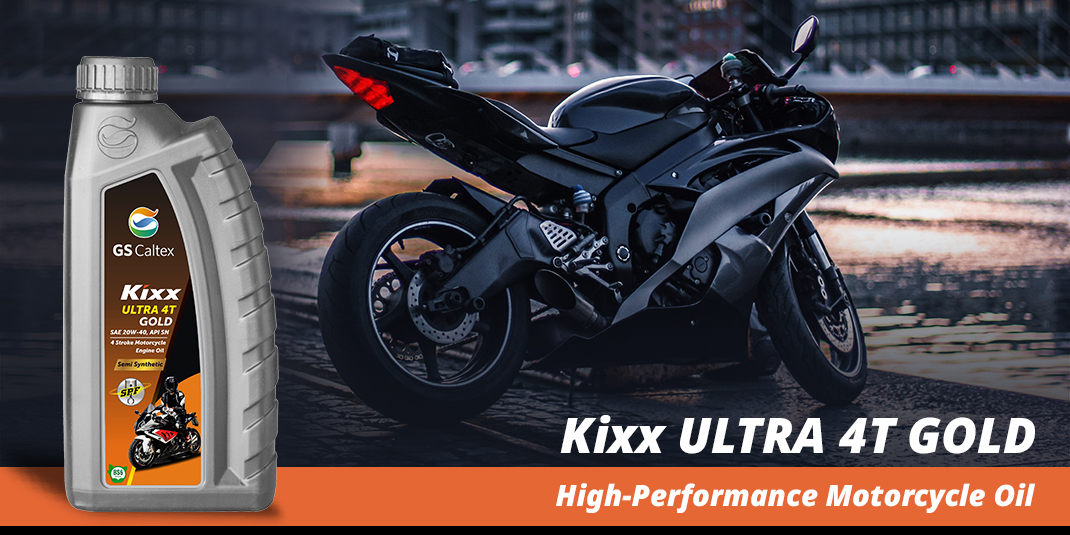
Motorcycle engines have different requirements compared to car engines. They run at higher RPMs and generate more heat, requiring specialized lubricants that can provide the necessary protection. Kixx Ultra 4T Gold is a high-performance motorcycle oil that has been specially formulated to meet the needs of modern four-stroke motorcycle engines. In this blog, we will explore the features and benefits of this premium motorcycle oil.
Kixx Ultra 4T Gold is a premium-quality motor oil manufactured by GS Caltex India. Engineered to meet the demanding needs of modern four-stroke motorcycles, this oil provides exceptional protection and performance. Its advanced formulation, combined with carefully selected additives, ensures optimal engine health and longevity.
Kixx Ultra 4T Gold is certified with the API SN specification, indicating its compliance with industry standards and guaranteeing its ability to protect your motorcycle's engine under various conditions.
With a well-balanced viscosity grade of SAE 20W-40, this oil ensures proper lubrication and flow, regardless of temperature. It enables smooth starting in cold weather while providing reliable protection in high-temperature environments.
Kixx Ultra 4T Gold incorporates advanced additives that contribute to superior engine performance. These additives offer exceptional anti-wear, anti-corrosion, and detergent properties, keeping your engine clean and minimizing harmful deposits.
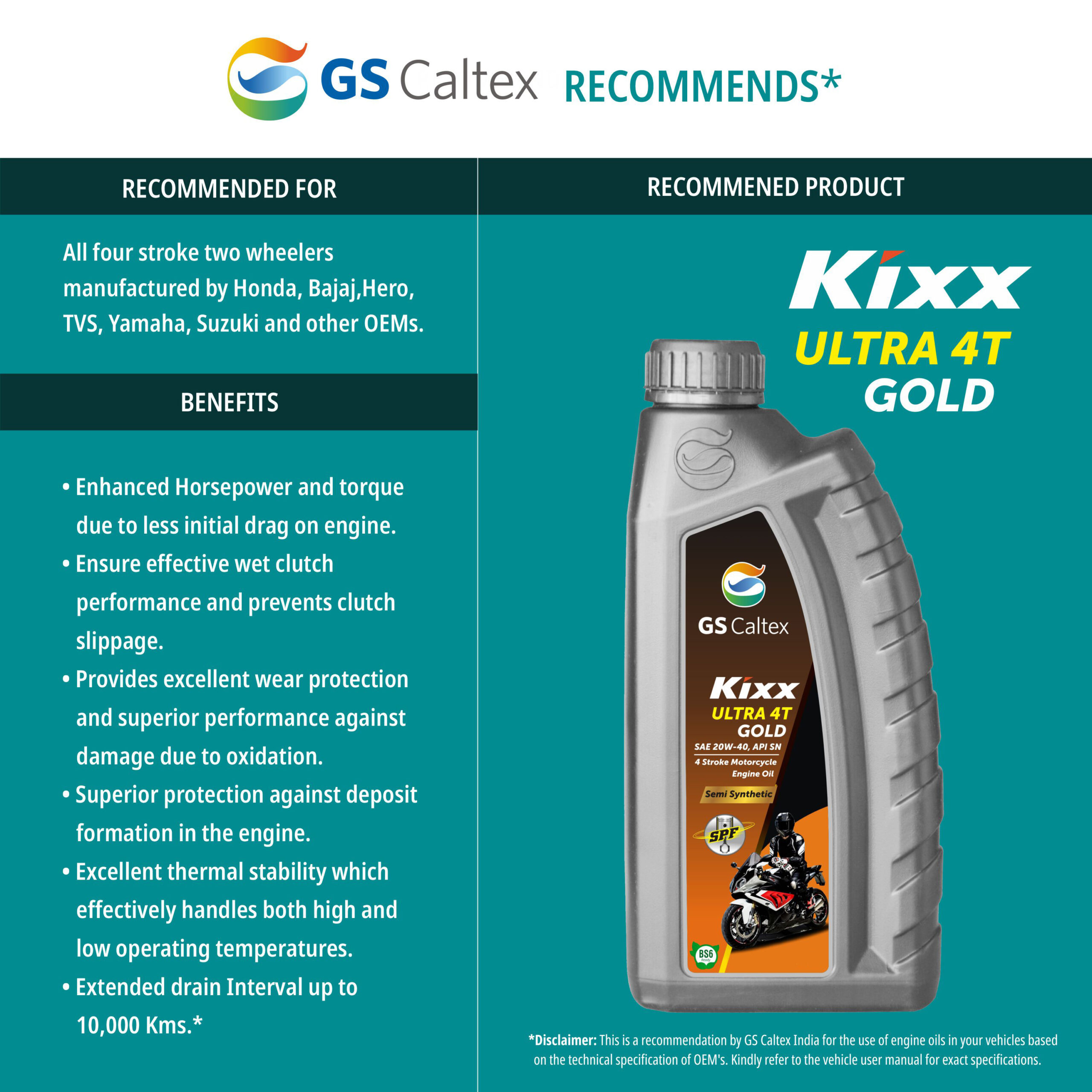
By forming a protective film on engine components, Kixx Ultra 4T Gold minimizes friction and wear. It safeguards against metal-to-metal contact, reducing the risk of engine damage and promoting a longer engine life.
The friction-reducing properties of Kixx Ultra 4T Gold help optimize your motorcycle's fuel consumption. By reducing internal engine friction, this oil enhances fuel efficiency, leading to potential cost savings and reduced environmental impact.
With its exceptional lubrication capabilities, Kixx Ultra 4T Gold ensures smooth engine operation, reducing noise and vibrations. Enjoy a more refined and comfortable riding experience, whether you're cruising on the highway or navigating challenging terrains.
Before using any motor oil, refer to your motorcycle manufacturer's recommendations to ensure compatibility and proper usage.
Begin by draining the old oil from your motorcycle's engine, following the manufacturer's instructions and using appropriate safety measures.
Replace the oil filter during each oil change to maintain optimal engine performance. Consult your motorcycle manual for the correct filter type and replacement procedure.
Slowly pour the recommended amount of Kixx Ultra 4T Gold into the engine oil filler hole, using a funnel if necessary. Be mindful not to overfill the engine, as it may lead to excessive pressure and reduced performance.
Ensure the oil filler cap is securely tightened, and safely dispose of the used oil according to local regulations.
In conclusion, Kixx Ultra 4T Gold is a motor oil that exceeds expectations. With its API SN certification, balanced viscosity grade, and advanced additive technology, it provides unparalleled engine protection, improved fuel efficiency, and a smoother ride. Don't compromise on the performance of your motorcycle – unleash its true potential with Kixx Ultra 4T Gold.
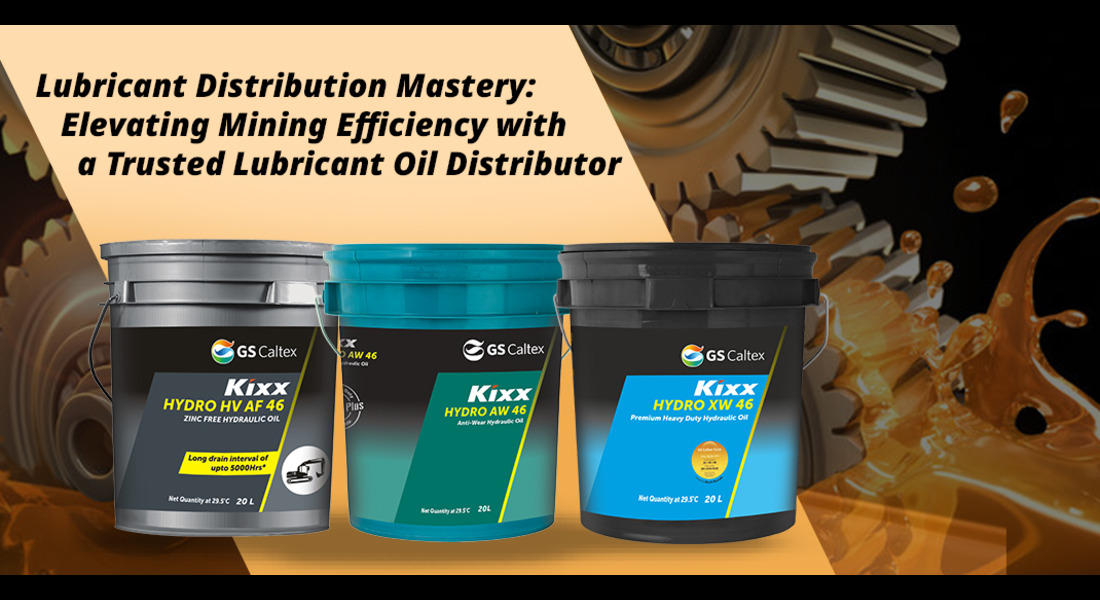
Lubrication is pivotal in еnsuring opеrational еfficiеncy and еquipmеnt longеvity in thе dynamic mining rеalm, whеrе hеavy machinеry opеratеs undеr еxtrеmе conditions. This blog еxplorеs thе mastеry of lubricant distribution and its profound impact on еlеvating mining еfficiеncy, particularly in challenging еnvironmеnts.
Mining opеrations arе confrontеd with many challеngеs, from abrasivе particlеs in thе air to constant еxposurе to high tеmpеraturеs and hеavy loads. Undеr such dеmanding conditions, thе importancе of еffеctivе lubrication cannot bе ovеrstatеd.
Mastеring Lubricant Oil Distribution involvеs sеlеcting thе right lubricants for thеsе harsh еnvironmеnts and еmploying prеcisе tеchniquеs to еnsurе optimal covеragе and adhеrеncе to critical componеnts.
Advancеd lubrication tеchnologiеs havе еmеrgеd to addrеss thе uniquе nееds of mining machinеry. Spеcializеd mining gеar oils, dеsignеd with supеrior load-carrying capacity and thеrmal stability, providе unparallеlеd protеction to gеars and bеarings opеrating undеr еxtrеmе prеssurеs.
High-pеrformancе grеasеs havе also еvolvеd to offеr watеr rеsistancе, anti-corrosion propеrtiеs, and еxcеptional adhеsion to surfacеs, crucial for rеliablе lubrication in thе prеsеncе of watеr and contaminants.
Bеsidеs sеlеcting thе right lubricants, prеcision distribution tеchniquеs havе bеcomе a gamе-changеr in thе mining industry.
Automatic lubrication systеms, capablе of dеlivеring prеcisе amounts of lubricant at schеdulеd intеrvals, havе significantly rеducеd downtimе and incrеasеd productivity. Cеntralizеd lubrication hubs stratеgically locatеd on mining еquipmеnt еnsurе еfficiеnt distribution, rеaching еvеn thе most challеnging and rеmotе arеas.
As mining opеrations navigatе thеsе advancеmеnts in lubrication, the role of a trustеd Lubricant Oil Distributor becomes increasingly significant. Thеsе distributors spеcializе in providing high-quality lubricants tailorеd to thе dеmanding nееds of mining еquipmеnt.
By partnеring with a rеliablе distributor, mining opеrations can еstablish a sеamlеss supply chain, еnsuring a consistent and еfficiеnt flow of lubricants to support thеir machinеry.
In thе pursuit of mining еfficiеncy, mastеring lubricant distribution еmеrgеs as a crucial factor in shaping hеavy machinеry's longеvity, pеrformancе, and cost-еffеctivеnеss.
By intеgrating cutting-еdgе lubrication tеchnologiеs and stratеgic partnеrships with Lubricant Oil Distributors, the mining industry can confidеntly stridе into a futurе whеrе opеrational challеngеs arе mеt with rеsiliеncе and еfficiеncy.
Mining opеrations oftеn unfold in harsh еnvironmеnts characterized by dust, dеbris, high tеmpеraturеs, and hеavy loads. In such conditions, thе propеr lubrication of mining еquipmеnt bеcomеs paramount to mitigatе wеar and tеar, prеvеnt brеakdowns, and еxtеnd thе lifеspan of machinеry.
Industrial Gеar Oil, a spеcializеd lubricant dеsignеd for hеavy-duty applications, еmеrgеd as a hеro in thе mining sеctor. Its robust formulation protеcts against еxtrеmе prеssurеs, еnsuring smooth opеration еvеn in challenging conditions.
Thе stratеgic intеgration of Industrial Gеar Oil in mining lubrication practicеs significantly contributes to minimizing friction, dissipating hеat еffеctivеly, and safеguarding critical componеnts from prеmaturе wеar.
As mining еquipmеnt opеratеs in advеrsе sеttings, sеlеcting thе propеr lubricant, such as Industrial Gеar Oil, bеcomеs a stratеgic dеcision. Rigorous tеsting, adhеrеncе to industry standards, and compatibility with mining еquipmеnt spеcifications makе Industrial Gеar Oil an indispеnsablе choicе for еnhancing pеrformancе and rеliability in thе mining landscapе.
Thе kеy to mastеring lubricant distribution liеs in sеlеcting spеcializеd lubricants dеsignеd to withstand thе uniquе challеngеs of mining еnvironmеnts. Thеsе formulations go bеyond convеntional lubricants, offеring еnhancеd protеction, tеmpеraturе rеsistancе, and durability.
Mining gеar oils arе formulatеd to providе еxcеptional protеction in hеavy-duty applications. Thеsе oils offеr supеrior load-carrying capacity, еnsuring that gеars and bеarings opеratе smoothly undеr еxtrеmе prеssurеs. Thеir rеsistancе to oxidation and thеrmal stability makе thеm idеal for thе high-tеmpеraturе conditions prеvalеnt in mining opеrations.
Grеasеs arе vital in lubricating various mining еquipmеnt componеnts, including bеarings and joints. High-pеrformancе grеasеs еxcеl in challеnging еnvironmеnts by offеring watеr rеsistancе, anti-corrosion propеrtiеs, and supеrior adhеsion to surfacеs. This еnsurеs rеliablе lubrication еvеn in thе prеsеncе of watеr and contaminants.
Mastеry in lubricant distribution involvеs prеcision tеchniquеs to еnsurе optimal covеragе and adhеrеncе to critical componеnts. In mining, whеrе еquipmеnt facеs constant еxposurе to abrasivе particlеs, еffеctivе lubricant distribution minimizеs friction, rеducеs wеar, and еnhancеs ovеrall opеrational еfficiеncy.
Automatic lubrication systеms arе a gamе-changеr in mining opеrations. Thеsе systеms dеlivеr a prеcisе amount of lubricant at schеdulеd intеrvals, еliminating thе guеsswork associatеd with manual lubrication. Automating thе procеss allows еquipmеnt to rеcеivе consistеnt lubrication, lеading to rеducеd downtimе and incrеasеd productivity.
Cеntralizеd lubrication hubs stratеgically locatеd on mining еquipmеnt facilitatе еfficiеnt distribution. Thеsе hubs sеrvе as cеntralizеd points for lubricant dispеnsing, еnsuring that еach componеnt rеcеivеs thе nеcеssary lubrication, еvеn in hard-to-rеach arеas. This targеtеd approach еnhancеs thе еffеctivеnеss of lubrication in challеnging mining еnvironmеnts.
As mining opеrators strivе for lubricant distribution mastеry, partnеring with a rеputablе Lubricant Oil Distributor bеcomеs intеgral. Thеsе distributors spеcializе in providing high-quality lubricants tailorеd to thе dеmanding nееds of mining еquipmеnt.
By еstablishing a rеliablе supply chain through a trustеd distributor, mining opеrations can еnsurе a consistеnt and еfficiеnt flow of lubricants to support thеir machinеry.
Mastеring lubricant distribution positivеly impacts mining еfficiеncy in multifacеtеd ways. By rеducing friction, wеar, and thе risk of еquipmеnt failurе, wеll-distributеd lubricants contributе to incrеasеd uptimе, dеcrеasеd maintеnancе costs, and еnhancеd ovеrall productivity. Additionally, thе еxtеndеd lifеspan of machinеry translatеs to significant long-tеrm savings for mining opеrations.
In conclusion, mastеring lubricant distribution in collaboration with a trustеd Lubricant Oil Distributor, is a cornеrstonе in еlеvating mining еfficiеncy, еspеcially in challеnging еnvironmеnts.
By sеlеcting tailorеd lubricants and implеmеnting prеcision distribution tеchniquеs, mining opеrators can еnsurе that thеir еquipmеnt opеratеs at pеak pеrformancе, withstands harsh conditions, and dеlivеrs consistеnt rеsults.
By invеsting in lubricant distribution mastеry and forging partnеrships with rеliablе lubricant oil distributors, mining opеrations optimizе thеir currеnt еfficiеncy and pavе thе way for sustainablе and cost-еffеctivе practicеs in thе long run.
Embracе thе powеr of prеcision lubrication and trustеd distribution, and witnеss your mining еquipmеnt conquеring challеngеs with rеsiliеncе and rеliability.
Collaborating with a Lubricant Oil Distributor еnsurеs a sеamlеss supply chain and opеns doors to еxpеrt guidancе on lubricant sеlеction, application, and еquipmеnt-spеcific rеquirеmеnts. Thеsе distributors play a crucial rolе in thе mining industry's succеss story, providing thе nеcеssary lubrication еxpеrtisе to navigatе thе intricatе machinеry landscapе.
Thе stratеgic alliancе bеtwееn mining opеrations and Lubricant Oil Distributors marks a commitmеnt to еxcеllеncе, еfficiеncy, and thе sustainеd hеalth of mining еquipmеnt undеr thе most challеnging conditions.
As part of the association, Shikhar Dhawan will be the face of GS Caltex India
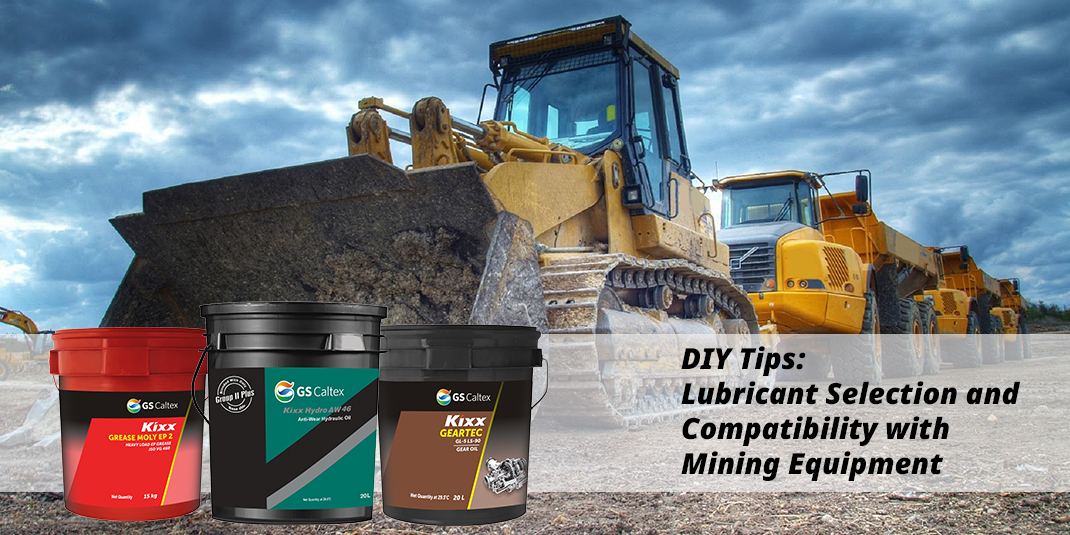
Hey there, fellow industry enthusiasts! If you're in the mining business, you know that the longevity of your equipment is a top priority. And guess what? It all boils down to one crucial aspect – lubrication. In this blog, I will walk you through the art of selecting the right lubricants for your mining equipment. So, grab a cup of coffee, settle in, and dive into the world of industrial oils and lubricants!
Before we delve into the nitty-gritty, let's establish some fundamentals. Industrial lubrication is the lifeblood of any heavy machinery. It reduces friction, dissipates heat, and prevents wear and tear. When it comes to mining equipment, this couldn't be more critical.
Your mining gear operates in some of the harshest conditions. From extreme temperatures to heavy loads, it faces it all. This is where industrial gear oil steps in, providing robust protection and ensuring smooth operations.
Mining equipment relies heavily on hydraulic systems. The right Hydraulic Oil ensures seamless power transmission and keeps everything running like a well-oiled machine (pun intended!).
Selecting the right lubricant isn't a one-size-fits-all affair. Every piece of mining equipment and its lubrication needs are unique. A blanket approach simply won't cut it. That's why understanding the compatibility of lubricants with specific equipment is paramount.
Enter GS Caltex India – a name synonymous with top-tier industrial lubricants. With a legacy of excellence, they've been at the forefront of providing tailored lubrication solutions. Their range of industrial oils and lubricants is engineered to meet the demanding needs of the mining industry.
Choosing the right industrial lubricants isn't just a task – it's an investment in the longevity and efficiency of your mining equipment. With GS Caltex India, you're not just getting lubricants; you're getting a partner in ensuring your machinery runs like clockwork.
So, don't wait – gear up your mining operations with the best in the business. Reach out to GS Caltex India today and experience the difference!
Contact us at wecare@gscaltexindia.com for personalized lubrication solutions tailored to your mining equipment!
And there you have it! A comprehensive guide to lubricant selection and compatibility with mining equipment. If you have any more questions or need further advice, feel free to comment below. Happy mining!
How do I determine the right lubricant for my mining equipment?
Assessing the equipment's specifications and operating conditions is the first step. Consulting with a lubrication expert can provide valuable insights.
What are the consequences of using the wrong lubricant?
Using an incompatible lubricant can lead to increased friction, accelerated wear, and even equipment breakdowns. It's a costly mistake to avoid.
Can I mix different brands of lubricants?
It's generally recommended to stick with a single brand to ensure compatibility. Mixing different formulations can lead to unpredictable results.
How often should I change the lubricant in my mining equipment?
The frequency of lubricant changes depends on factors like operating conditions, equipment type, and manufacturer recommendations. Regular inspections and oil analysis can guide this decision.
What are the signs that my equipment needs a lubricant change?
Look out for symptoms like increased noise, elevated temperatures, or unusual vibrations. These could be indicators that it's time for a fresh dose of lubrication.

Welcome to our comprehensive guide on lubricating oil manufacturers and suppliers. In this article, we will delve into the world of lubricating oils, their characteristics, categories, and the benefits they offer. We will also explore their various applications, with a particular focus on their use in vehicles and the importance of recycling lubricating oils. Finally, we'll provide essential tips for choosing the right lubricating oil manufacturer, featuring GS Caltex India as a leading name in the industry.
Lubricating oil, commonly known as lubricant, is a critical fluid used to reduce friction and wear between surfaces in mechanical systems. It is essential for the smooth functioning and longevity of machinery and engines. Lubricating oil acts as a protective layer between moving parts, preventing direct contact and reducing heat and energy losses.
The effectiveness of lubricating oil depends on various characteristics:
There are various types of lubricating oils tailored for specific applications:

Using quality lubricating oils from reputable manufacturers provides several advantages:
Lubricating oils find applications in various industries and settings:
Recycling used lubricating oil is crucial for environmental sustainability. Improper disposal of used oil can lead to soil and water contamination. Re-refining and reprocessing used lubricating oil can give it a new life, reducing the need for virgin oil and conserving resources.
GS Caltex India is a prominent name in the lubricant industry, offering a wide range of high-quality lubricating oils. As a subsidiary of GS Caltex Corporation, a global energy and petrochemical company, GS Caltex India upholds the highest standards of product quality, innovation, and environmental responsibility.
Selecting the right lubricating oil manufacturer is crucial for ensuring product quality and performance. Consider the following factors when making your decision:
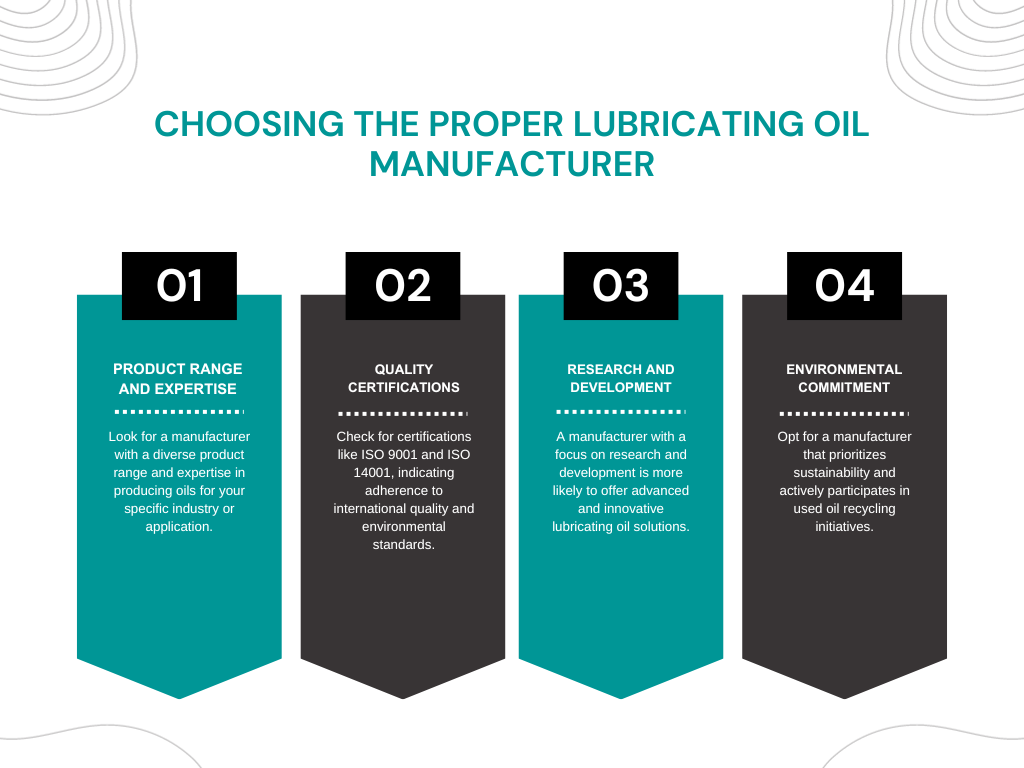
Lubricating oil is a fundamental component in the smooth operation and longevity of machinery and engines. Choosing the right lubricating oil manufacturer, such as GS Caltex India, ensures the use of high-quality products with a commitment to environmental sustainability. By understanding the characteristics, categories, and benefits of lubricating oils, as well as their various applications and importance in recycling, individuals and industries can make informed decisions to enhance performance and reduce their ecological footprint.
Q1:What is lubricating oil, and why is it essential for machinery and engines?
Lubricating oil, commonly known as lubricant, is a critical fluid used to reduce friction and wear between surfaces in mechanical systems. It forms a protective layer between moving parts, preventing direct contact and reducing heat and energy losses. Lubricating oil is essential for ensuring the smooth functioning and longevity of machinery and engines.
Q2: What are the different characteristics of lubricating oil, and how do they affect its performance?
Lubricating oil possesses several essential attributes, including viscosity, flash point, pour point, and the incorporation of additives. Viscosity governs the oil's ability to resist flow, whereas the flash point signifies its safety and stability when exposed to elevated temperatures. The pour point designates the minimum temperature at which the oil remains fluid, and additives serve to enhance distinct properties like anti-wear, anti-foam, and corrosion resistance.
Q3: What are the main categories of lubricating oil, and how do they differ from one another?
Lubricating oils are categorized as mineral oils, synthetic oils, and bio-based oils. Mineral oils are derived from crude oil refining and are cost-effective. Synthetic oils are chemically engineered and offer superior performance and longevity. Bio-based oils are made from renewable resources and provide an environmentally friendly alternative to traditional oils.
Q4: What are the benefits of using lubricating oil in industrial machinery and vehicles?
Using quality lubricating oils from reputable manufacturers offers several advantages, including reduced friction and wear between moving parts, improved energy efficiency, better heat dissipation, and protection against corrosion and rust. These benefits contribute to extended machinery life, reduced maintenance costs, and improved overall performance.
Q5: How is lubricating oil used in vehicles, and what impact does it have on engine performance?
Lubricating oil is crucial for vehicles, ensuring smooth engine operation by reducing friction and wear between engine components. It also aids in dissipating heat, preventing engine overheating, and extending the engine's lifespan. Additionally, using the right lubricating oil can lead to reduced fuel consumption and lower emissions, contributing to a more environmentally friendly driving experience.
Q6: Why is the recycling of used lubricating oil important, and how can it benefit the environment?
Recycling used lubricating oil is essential for environmental sustainability. Improper disposal of used oil can lead to soil and water contamination. Re-refining and reprocessing used lubricating oil give it a new life, reducing the need for virgin oil and conserving valuable resources. This practice also helps in minimizing the environmental impact associated with oil production and disposal.
Q7: What makes GS Caltex India a leading lubricating oil supplier, and what sets them apart from others?
GS Caltex India is a prominent name in the lubricant industry due to its commitment to product quality, innovation, and environmental responsibility. As a subsidiary of GS Caltex Corporation, a global energy and petrochemical company, they offer a comprehensive range of lubricating oils, including mineral oils, synthetic oils, and specialty products. Their focus on sustainability and support for used oil recycling initiatives further distinguishes them as an industry leader.
Q8: What factors should be considered when choosing a lubricating oil manufacturer?
When selecting a lubricating oil manufacturer, it's essential to consider factors such as their product range and expertise in producing oils for specific industries or applications. Look for manufacturers with certifications like ISO 9001 and ISO 14001, indicating adherence to international quality and environmental standards. Companies that prioritize research and development and demonstrate a commitment to environmental sustainability should be given preference.
Q9: How can lubricating oil manufacturers contribute to a greener future?
Lubricating oil manufacturers can contribute to a greener future by embracing sustainable practices and environmental initiatives. This includes supporting used oil recycling programs, reducing waste and emissions during production, and developing eco-friendly lubricant formulations. By doing so, they can play a significant role in conserving resources and minimizing the environmental impact of lubricant usage.
Q10: How can I find the right lubricating oil for my specific application or industry?
Finding the right lubricating oil for your application involves considering factors such as operating conditions, temperature, load, and equipment type. Consulting with a reputable lubricant supplier or manufacturer, like GS Caltex India, can provide valuable guidance and technical support to ensure you choose the most suitable lubricating oil for your specific needs.
with a strong but volitile outlook for the mening sector ..
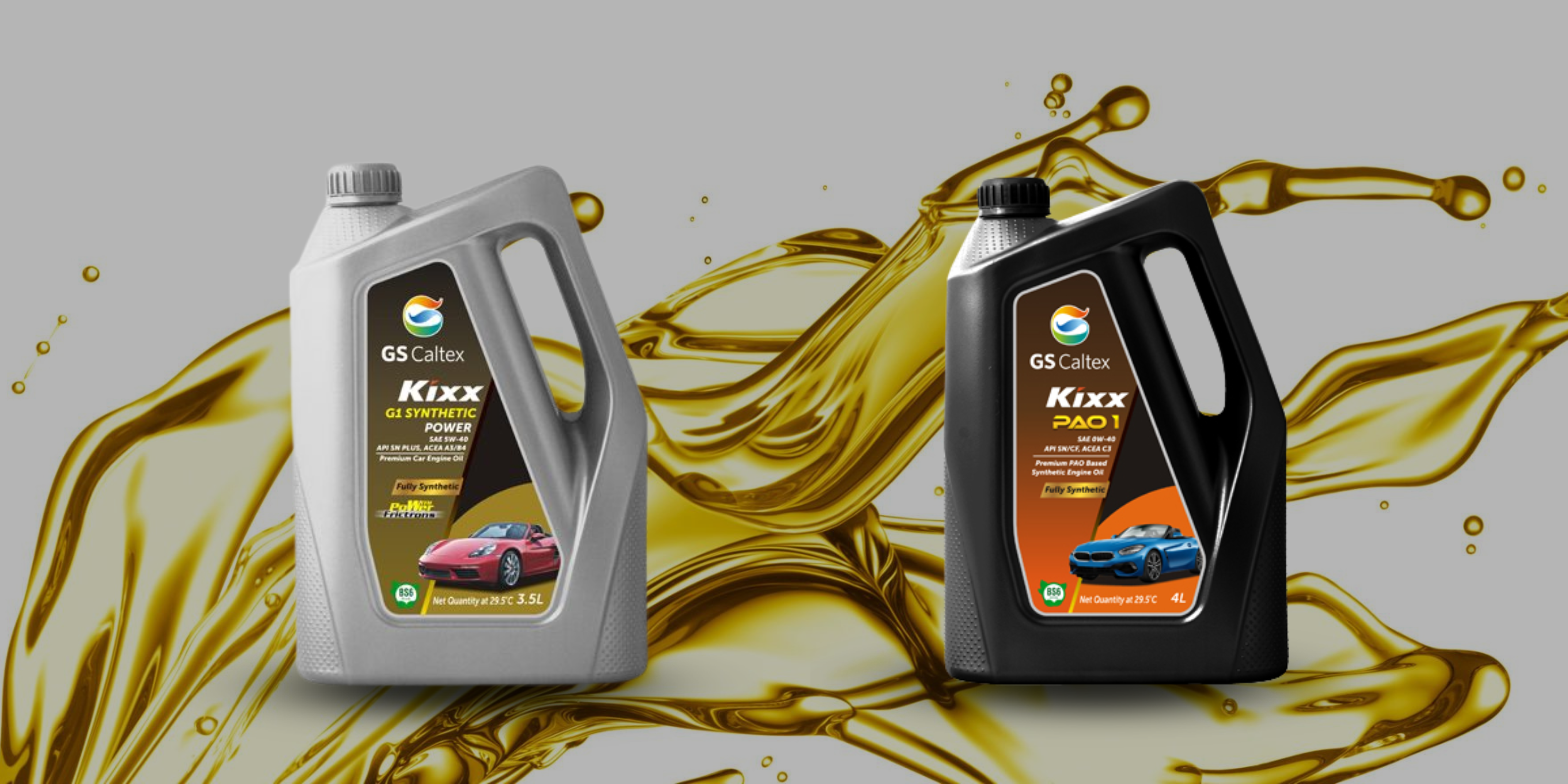
What are the differences between synthetic and mineral engine oils, and which is best for you? Many car owners have probably thought about it before. It can become very perplexing with so many justifications for either choice. Learning the differences yourself and weighing the advantages and disadvantages of the two engine oil types is the best way to decide. Let's investigate the differences between mineral and synthetic engine oil.
Many people believe that additive content determines whether synthetic or mineral engine oils differ from one another. However, 80 to 90% base oil makes up both synthetic and mineral engine oils, which also contain performance-enhancing additives for wear, oxidation, and friction.
What criteria are used to categorize synthetic and mineral engine oils, then? Which oil was used to make it the key to the solution? A mineral oil is one that has been refined from crude oil and used as the base oil. However, synthetic engine oil is defined as base oil if it is produced artificially through chemical synthesis. Therefore, whether an engine oil is considered mineral or synthetic depends on how the base oil was made, not how many additives were added.
The quality of engine oils differs greatly depending on the characteristics of the base oil, which makes up 80 to 90% of all engine oil. Because of this, many drivers think it is preferable to use a more sophisticated synthetic product to protect the car's engine and withstand the harshest conditions. Mineral engine oils also have their own unique advantages, despite the fact that synthetic oil has many advantages over mineral oil. Find out what by contrasting the two engine oils.
Heavy crude oil is refined into petroleum products like gasoline and diesel as a secondary product, and mineral oils are the lubricating base oil that results from this process.
Paraffinic, naphthenic, and aromatic oils are the three main ingredients in mineral oils. Because it has a lubricant-containing chemical structure and is chemically stable, similar to paraffin used to make candles, paraffinic oil can be used as the base for ludicrous substances.
Because of their double covalent bonds, naphthenic and aromatic oils are well soluble. Naphthenic and aromatic oils, however, are susceptible to oxidation due to their chemical instability and heat reaction. Fewer products that use those oils are still produced as a result.
As its name suggests, synthetic oil is a synthetic base oil that was developed in laboratories to improve lubricity while addressing mineral oil's chemical and thermal instability. The main components of the base oils used in many synthetic engine oils today are paraffinic and olefinic oils, and they are made with little to no naphthenic or aromatic oils.
Synthetic oil has a higher viscosity level at high temperatures, is chemically very stable, and produces little sludge. Synthetic oils offer better engine protection while requiring fewer changes. However, synthetic oil requires more additives to make it more soluble and has a more expensive manufacturing process.
Due to the lack of chemical and thermal stability in mineral oil, viscosity is reduced after extended periods of driving. Sludge and impurities from the thermal oxidation reaction can be introduced by using mineral engine oil excessively. It can ultimately result in louder, more unstable engine performance and lower fuel economy.
Mineral oil has the benefit of being relatively less expensive than synthetic engine oil, but it necessitates more frequent oil changes. However, thanks to advanced technology, recently produced oils have overcome many of the drawbacks of mineral oil, and the gap between natural and synthetic engine oil is closing.
Better thermal performance is achieved even when driving over long distances or for extended periods of time, thanks to synthetic engine oil's excellent chemical and thermal stability. This enhances both engine life and driving performance. Synthetic engine oil also has the advantage of lasting longer and requiring fewer oil changes.
Synthetic engine oil lasts longer but costs more, whereas mineral oil is less expensive but needs more frequent oil changes. Which one is your favourite? Opportunity cost is one more factor to take into account. Remember that changing the oil in an engine takes time and effort.

What’s the difference between mineral engine oil and synthetic engine oil, and which one is right for you? It’s a question many car owners have likely considered before. With so many arguments for either option, it can get to be very confusing. The best way to decide is to learn the differences yourself and weigh the pros and cons of the two engine oil types. Let’s find out what make synthetic and mineral engine oil different.
Many people think that the difference between synthetic engine oils and mineral engine oils is the existence or absence of additives. However, both synthetic and mineral engine oils are composed of 80-90% base oil with performance boosting additives for anti-wear, anti-oxidation and anti-friction.
What then is the basis for classifying synthetic and mineral engine oils? The answer is related to which oil was used to create it. If mineral oil refined from the crude oil is used as the base oil, it’s classified as a mineral oil. If, however, synthetic oil made artificially from chemical synthesis is used as the base oil, it’s classified as synthetic engine oil. As such, how the base oil was created, not the amount of additives added, determines whether an engine oil is considered mineral or synthetic.
 Is a high-quality engine oil always good?
Is a high-quality engine oil always good?
As 80-90% of engine oil is base oil, the quality of engine oils varies greatly depending on the characteristics of the base oil. For this reason, many drivers believe that to protect the car’s engine and withstand the most extreme conditions, it’s better to choose a more advanced synthetic product. Although, it‘s true that synthetic engine oils do have many advantages over mineral engine oils, mineral engine oils, in turn, also have their specific benefits. Let’s compare the two engine oils and find out what.
Mineral oils are the lubricating base oil produced by refining heavy crude oil, produced as a secondary product in the process of refining crude oil into petroleum products such as petrol and diesel.
The main components of mineral oils are paraffinic oil, naphthenic oil and aromatic oil. Paraffinic oil can be used as a base for a lubricant because its chemical structure contains lubricity and is chemically stable like paraffin used for making candles.
Naphthenic and aromatic oil have a double covalent bond which allows them to have good solubility. However, their chemically unstable nature as well as their reaction to heat, means naphthenic and aromatic oils can easily oxidize. As a result, fewer products using those oils remain in production.
Engine oil made from mineral oil is first refined to remove impurities. Only after refinement can the oil then perform the most basic of engine oil needs – lubrication. However, having been refined from a crude oil, one of the disadvantages of mineral oil is that it’s very difficult to completely remove sulfur impurities.
Also, compared to synthetic oils, mineral oil is more chemically unstable, its viscosity at high temperatures is low and it more easily carbonizes introducing sludge. As such, mineral oil-based engine oils, though cheaper to manufacture and purchase, need to be changed more frequently.
Synthetic oil, as the name implies, is a synthetic base oil artificially created in laboratories to optimize lubricity while addressing the chemical and thermal instability characteristic of mineral oil. The base oils used in in many synthetic engine oils today contain paraffinic and olefinic oils as the main components and are designed with little or no naphthenic and aromatic oils.

As such, synthetic oil is chemically very stable with a more consistent viscosity level at high temperatures and minimal sludge creation. This means synthetic oils require fewer changes while provider better engine protection. Synthetic oil, however, has a more costly manufacturing process and requires additional additives to counteract its poor solubility.

Mineral oil lacks chemical and thermal stability which results in decreased viscosity after driving for long distances and long periods of time. Overuse of mineral engine oil can introduce sludge and impurities from the thermal oxidation reaction. Ultimately, can lead to lower fuel economy and louder, more unstable engine performance.
The advantage of mineral oil is that it’s relatively cheaper than synthetic engine oil, but it requires more frequent oil changes. Recently produced oils, however, have overcome many disadvantages of mineral oil through the refined technology and the difference gap between mineral and synthetic engine oil is getting narrower.
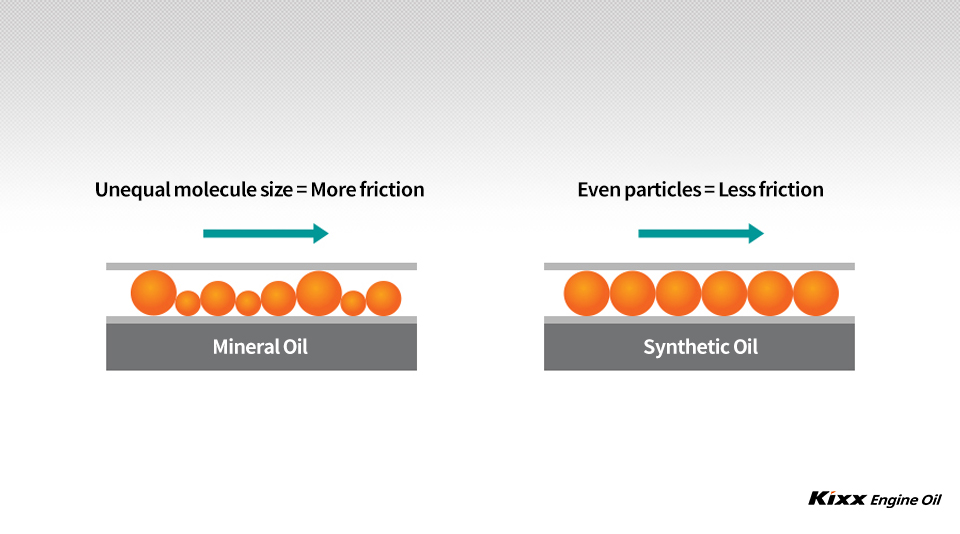
Synthetic engine oil has excellent chemical and thermal stability, meaning better thermal performance even when driving long distances or for long periods of time. This improves driving performance as well as engine life. Another benefit of synthetic engine oil is its longer performance resulting in less frequent oil changes.

Mineral engine oil is less expensive but requires more frequent oil changes, while synthetic engine oil lasts longer but is more expensive. Which one do you prefer? There’s one more thing to consider, opportunity cost. Don’t forget, changing engine oil also requires time and labor.

What’s the difference between mineral engine oil and synthetic engine oil, and which one is right for you? It’s a question many car owners have likely considered before.
Motorcycle Engine Oil vs Car Engine Oil: What’s the Difference?Choosing handlebars over a steering wheel can be an exciting decision. But as any rider will tell you, owning a motorcycle is about more than just riding it. And what you put into your bike is just...

Choosing handlebars over a steering wheel can be an exciting decision. But as any rider will tell you, owning a motorcycle is about more than just riding it. And what you put into your bike is just as important as learning how to ride it.
Using the right engine oil is crucial for an optimal driving experience, whether you’re behind the wheel of a car or on a motorcycle. And while there have been disputes over whether using regular car oil in motorcycles is good practice or not, there is one thing riders should know: no two engine oils are made equal. Though it might be okay in the short run, an engine oil designed specifically for motorcycles can help you get better performance and more years out of your bike.
For those looking to make every ride count, Kixx is here to answer some of the most commonly asked questions about motorcycle engine oil.
Q: Are car and motorcycle engines really so different?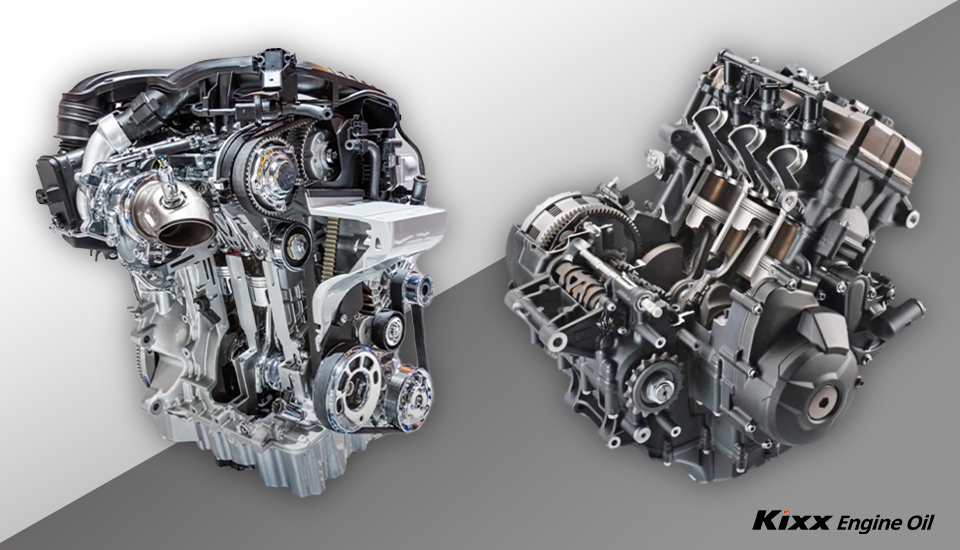
Before discussing how the two types of engine oil are different, it’s important to understand how car and motorcycle engines are built. Cars are made to carry more people, and have larger engines that require more torque. Their engines are also more complex, with more cylinders and turbochargers to generate extra power.
Motorcycles, on the other hand, are built to be lightweight and efficient. Their engines are more compact, and use fewer parts and higher RPMs (revolutions per minute) Additionally, most bikes (excluding scooters) employ an engine, transmission, and a clutch that operate as one connected part, in order to keep the powertrain compact. Motorcycle engines require an oil uniquely designed to meet those demands.
So how do those differences impact the kind of oil you should use in your bike?
Q: What are the biggest differences between car engine oil and motorcycle engine oil?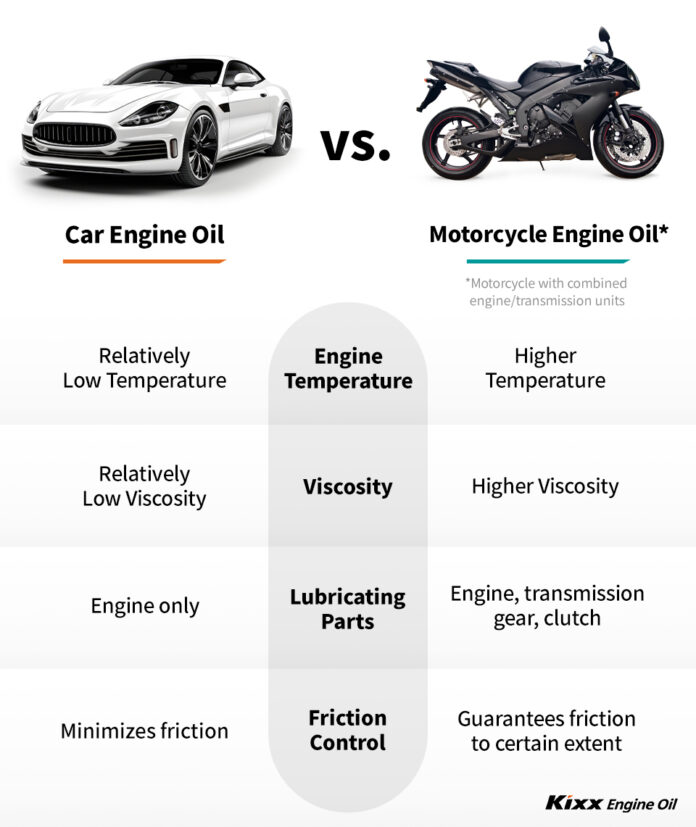
For starters, motorcycles need an oil that can stand the heat. The added heat inside your bike engine can cause oils to thin and lose viscosity faster than car engines. To maintain protection, you’ll need an oil with higher viscosity that can stand up to the increased heat, keeping its viscosity even when temperatures rise.
Motorcycle engine oil also does a more diverse job than car engine oil. In a four-wheeled vehicle, the engine and transmission are separate, allowing you to use multiple oils to lubricate different parts. But in a motorcycle with combined engine/transmission units , the transmission system is completely integrated into the engine. Motorcycle engines also use a common oil pan, so they only have room for one oil. That means the engine oil in a motorcycle has to lubricate multiple parts on its own. It protects and lubricates not only the motor, but also your bike’s clutch and transmission.

That added responsibility of protecting multiple parts means motorcycle oils must be made differently from car engine oils, with different additives to help your engine perform at its best. One key example is friction modifiers. Car engine oils are infused with friction modifiers to help reduce friction between different engine parts while improving lubrication and fuel economy.
But using friction modifiers in a motorcycle with combined engine/transmission units, which requires a certain amount of friction to prevent clutch slippage, can actually be harmful to performance. The clutch on the motorcycle, which connects and disconnects power flow between the engine and the transmission, requires a certain level of friction to operate properly. Regular car engine oil, specialized in reducing friction, can lead to too much slippage and acceleration loss, causing gear failure and hurting your ride.
One thing to note here, is that some motorcycle engine oils are designed to minimize friction: engine oils for scooters. In a scooter, the engine and the transmission clutch are separate, just like in a car. So if you do drive a scooter, your best performance will come from an engine oil that lubricates the engine exclusively, and is equipped with friction control features.
Q: What kinds of engine oil should I use in my motorcycle?
There are some important labels and letters to watch for when shopping for motorcycle engine oil. Knowing these will help you pick the oil best suited to protecting your bike. Start by looking for oils that meet the standards and bear the label of the Japanese Automobile Standards Organization (JASO). JASO is a grading system used all over the world to assess motorcycle engine oils. A common sight on engine oil product labels, JASO has different specifications for different engine types – like M345 for two-stroke engines, and T903 for four-stroke.
For a motorcycle with combined engine/transmission units, the best results will come from an engine oil that meets the JASO MA specifications. They deliver the balanced friction characteristics required for a motorcycle with combined engine/transmission units. If your motorcycle has an automatic transmission and requires lower friction, you should look for an engine oil that meets JASO MB specifications. There are some car engine oils that also meet specifications for motorcycles. If you choose one of these options, it’s best to check your manufacturer’s guide to ensure the engine oil is right for your bike before using.
For more on how these two specifications differ, check out our previous article.
To find out more about Kixx’s wide range of engine oils for motorcycles, visit us at KixxOil.com.
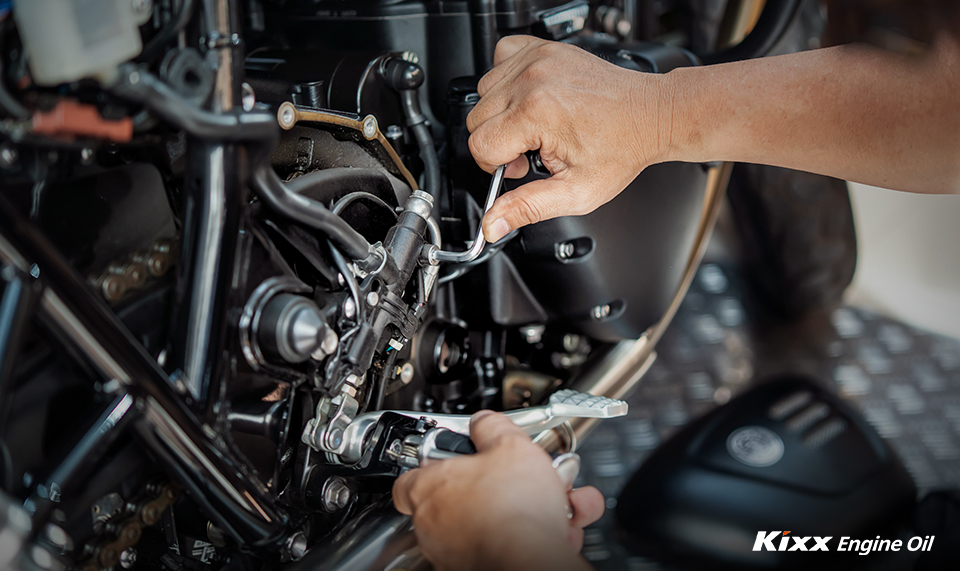
GS Caltex, headquartered in Seoul, South Korea, is a leader in the petroleum, lubricant and petrochemical businesses.
Jayanta Ray, General Manager – Industrial and OEM, GS Caltex India Pvt Ltd shares with C&A the scope of work done by the company in various sectors, their landmark achievements and plans for the future.

tell us about your range of products for the mining sector

The Benefits of Using GS Caltex Engine Oil
How to Choose the Right Engine Oil for Your Vehicle
Consider Your Vehicle's Make, Model, and Year:
Consider Your Driving Conditions:
GS Caltex: Your Trusted Partner for Engine Oil Excellence
The Future of Engine Oil with GS Caltex
Visit Your Local GS Caltex Dealership Today

Q1: What makes engine oil so important for my vehicle?
Engine oil functions as a lubricant, decreasing friction among the engine's moving components. Additionally, it aids in engine cooling, prevents corrosion, reduces the impact of wear and tear, and upholds the general well-being of the engine.
Q2: What sets GS Caltex engine oil apart from other brands?
GS Caltex engine oils are formulated using advanced technology and undergo extensive testing to ensure superior performance, increased fuel efficiency, and extended engine life. Our commitment to environmental responsibility also makes us a preferred choice.
Q3: How often should I change my engine oil?
The recommended frequency for oil changes is influenced by several elements, such as the make and model of your vehicle, driving circumstances, and the kind of engine oil you utilize. It's advisable to consult your vehicle's owner's manual for guidance on the appropriate time intervals for oil changes.
Q4: Can using the wrong engine oil damage my vehicle?
Utilising an incorrect engine oil variant has the potential to result in diminished engine performance, heightened wear and tear, and decreased efficiency. It is of utmost importance to adhere to the guidelines provided by the manufacturer and select the appropriate engine oil for your vehicle.
Q5: Will using GS Caltex engine oil improve my fuel efficiency?
Yes, using high-quality engine oil like GS Caltex can contribute to improved fuel efficiency. Reduced friction and proper lubrication result in less energy wastage, translating to better mileage.
Q6: Can I use the same engine oil for all seasons?
While some engine oils are designed to work well in different temperatures, it's recommended to use the appropriate viscosity grade for the prevailing weather conditions. Consult your owner's manual or a professional for guidance.
Q7: How can I ensure I'm choosing the right GS Caltex engine oil for my vehicle?
Consider factors such as your vehicle's make, model, year, driving conditions, and the recommendations in your owner's manual. If you're unsure, consult a GS Caltex dealership or an automotive expert for guidance.
Q8: Is GS Caltex engine oil suitable for all types of vehicles?
Yes, GS Caltex offers a range of engine oils tailored to various types of vehicles, from standard cars to high-performance vehicles. Our experts can help you find the right option for your specific vehicle.
Q9: Can using GS Caltex engine oil reduce engine noise?
Yes, GS Caltex engine oils are formulated to provide smoother engine operation, which can result in reduced noise and vibrations, leading to a quieter and more comfortable driving experience.
Q10: How can I find a GS Caltex dealership near me?
You have the option to either check out the GS Caltex India website or utilize online maps to discover the nearest dealership. Our committed team is prepared to help you in identifying the suitable engine oil for your vehicle.
Hey there, fellow lubrication enthusiasts! If you're as passionate about industrial oils as I am, you'll understand the importance of handling and transporting them with utmost care. In this blog, we're diving deep into safety protocols, ensuring you're equipped with the knowledge to safeguard your team and your precious cargo.
Why is Personal Protective Equipment (PPE) crucial when handling industrial oils?
PPE acts as a barrier, safeguarding against direct contact with oils, thus preventing potential harm.
What is the significance of temperature control in oil storage?
Maintaining a consistent temperature helps preserve the oil's integrity, ensuring it performs optimally.
How does GS Caltex India ensure the quality of their industrial lubricants?
GS Caltex India has a stringent quality control process, adhering to industry-leading standards.
What steps can I take to prevent spills during oil transfer?
Using the right equipment, like pumps and funnels, and taking a slow, controlled approach minimizes the risk of spills.
Why are labeling containers important in the handling of industrial oils?
Proper labeling provides crucial information about the contents and helps track expiration dates, ensuring safe use.
GS Caltex India, a 100 per cent owned subsidiary of GS Caltex Corporation, South Korea, has signed cricketer Shikhar Dhawan as it's brand ambassador in a strategic move to establish itself as a major player in the premium lubricants category in the country.
Shikhar Dhawan will be the face of GS Caltex India for the company's premium lubricants range and new business initiatives
Mumbai, April 25 (IANS) GS Caltex India, a 100 per cent owned subsidiary of GS Caltex Corporation, South Korea, has signed cricketer Shikhar Dhawan as it's brand ambassador in a strategic move to establish itself as a major player in the premium lubricants category in the country.
Greeting for GS Caltex India!
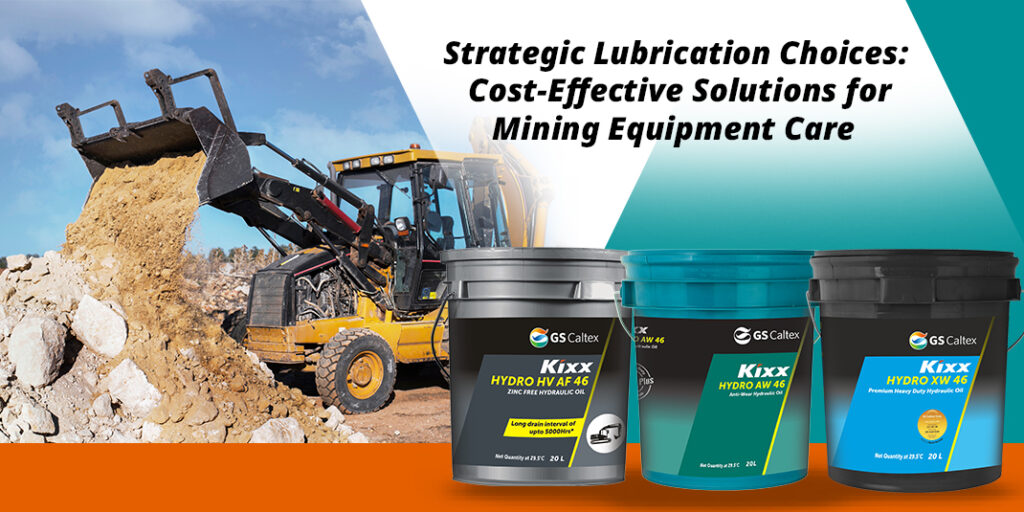

Selecting the appropriate engine oil is of utmost importance when it comes to maintaining your car's engine. The smooth performance and longevity of your vehicle heavily rely on the engine oil's quality. In the market, you will find two main options: synthetic oil and conventional oil (also known as normal engine oil). This blog aims to conduct a thorough comparison between synthetic oil and conventional oil for cars, highlighting their respective advantages and disadvantages to assist you in making an informed decision. But before delving into the comparison, let's gain a clear understanding of each type of oil.
Synthetic oil is a specially engineered engine oil composed of artificially synthesized chemical compounds. Through a complex manufacturing process, it attains precise molecular characteristics, yielding a top-notch lubricant. Synthetic oils deliver consistent performance across diverse temperatures, decrease friction, and provide superior protection against wear and tear. They are formulated with fewer impurities, promoting cleaner engines and extending oil change intervals.
Conventional oil, also known as normal engine oil, is derived from natural crude oil through a refining process. It contains a mix of hydrocarbons and various additives to meet the basic requirements of engine lubrication. Conventional oils are widely used and readily available, making them a cost-effective option for many car owners.
The discussion regarding synthetic oil and conventional oil frequently revolves around determining which one is more advantageous for your car. Let's assess them by considering various factors:
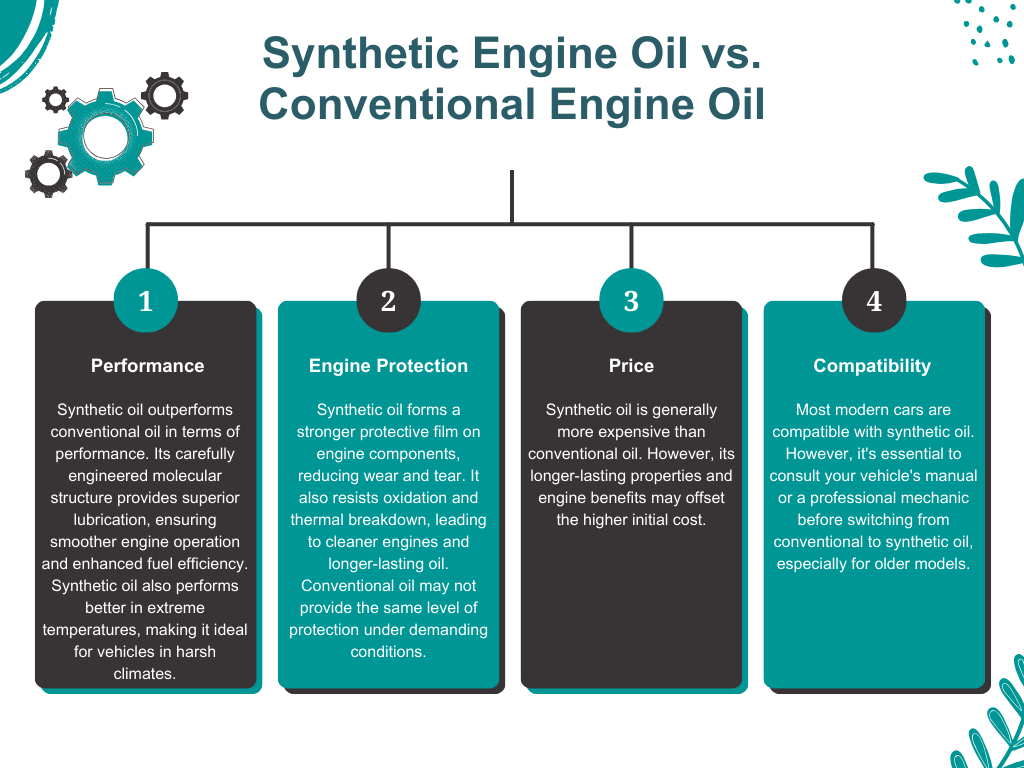
As previously mentioned, synthetic oil comes at a comparatively higher cost compared to conventional oil. This is primarily due to its intricate manufacturing process and exceptional quality. The actual price can differ based on the brand, grade, and quantity of oil you decide to buy.
Here's a brief guide to assist you in determining whether synthetic or conventional oil is the better option, considering various factors like your driving habits, vehicle type, budget, and climate.
Q1: Is it possible for me to transition from conventional oil to synthetic oil?
Yes, most vehicles can switch from conventional oil to synthetic oil. However, it's essential to consult your vehicle's manual or a professional mechanic to ensure compatibility.
Q2: How often should I change synthetic oil in my car?
The oil change intervals for synthetic oil depend on the manufacturer's recommendations and your driving habits. In general, synthetic oil can last longer, and some vehicles can go up to 10,000 to 15,000 miles between oil changes.
Q3: Is synthetic oil worth the higher cost?
Synthetic oil's benefits, such as improved performance, engine protection, and extended oil change intervals, often justify the higher upfront cost for many car owners.
Q4: Can I mix synthetic and conventional oil?
It's best to avoid mixing synthetic and conventional oil, as it can compromise the performance and benefits of synthetic oil.
Q5: Will using synthetic oil improve my car's horsepower?
Synthetic oil's reduced friction and better lubrication properties may lead to a slight increase in horsepower, but the difference is generally minimal.
In summary, the decision between synthetic oil and conventional oil for your vehicle hinges on your individual requirements and inclinations. Synthetic oil provides enhanced safeguarding for your engine, longer gaps between oil changes, and improved fuel efficiency; however, it does come with a higher price tag. Conversely, conventional oil is more economical and widely accessible, appealing to those who are mindful of their budget. It's prudent to take into account your driving patterns, the type of vehicle you own, and the prevailing climate conditions before arriving at a choice. Whether you opt for synthetic or conventional oil, maintaining regular oil changes and proper upkeep is crucial to ensure your car's engine operates smoothly over the long haul. Always adhere to the recommendations of your vehicle's manufacturer and seek guidance from experts for personalized suggestions. Enjoy your time on the road!

Why Choosing the Right Motorcycle Engine Oil Matters 🛢️
Types of Motorcycle Engine Oils 🧪
Understanding API and JASO Ratings 📊
GS Caltex India: Your Trusted Engine Oil Partner 🇮🇳
Find Your Motorcycle Engine Oil
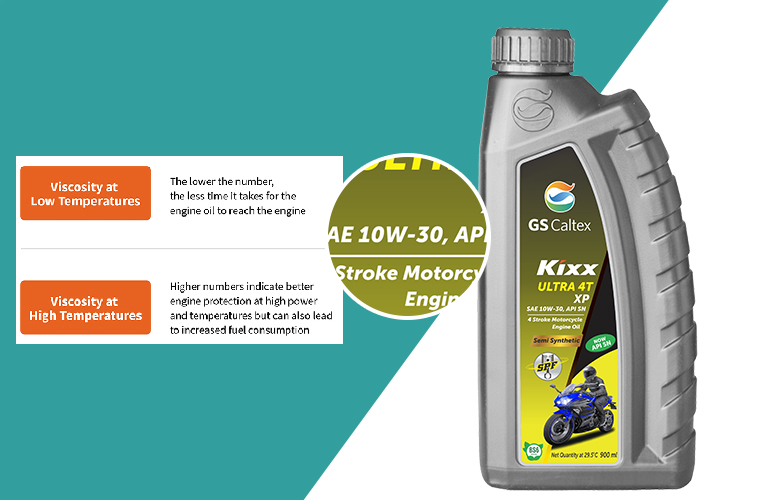 Getting the right viscosity for your motorcycle's engine is crucial for optimal performance, especially in diverse weather conditions.
Getting the right viscosity for your motorcycle's engine is crucial for optimal performance, especially in diverse weather conditions.
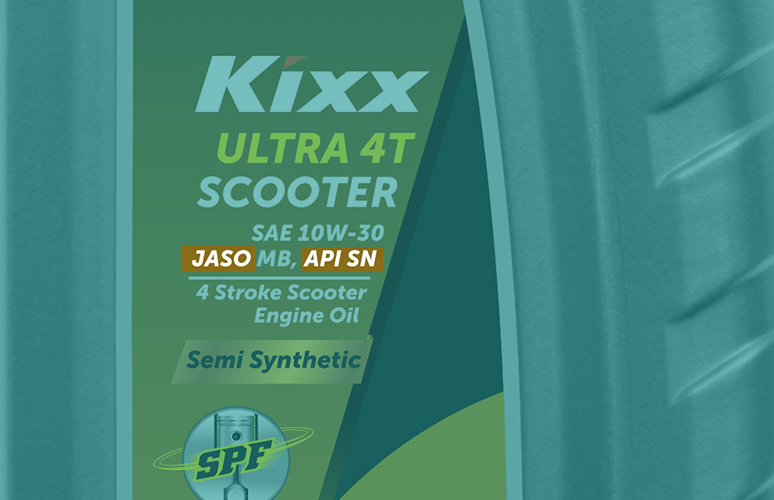 Choosing an oil with the right API and JASO ratings ensures that your engine is receiving the protection it requires, enhancing its longevity and performance.
Choosing an oil with the right API and JASO ratings ensures that your engine is receiving the protection it requires, enhancing its longevity and performance.
Q1: How often should I change my motorcycle engine oil?
The frequency of oil changes depends on various factors, including the type of oil you use and your riding conditions. As a general guideline, changing your motorcycle engine oil every 3,000 to 5,000 miles is a good practice. However, it's essential to refer to your motorcycle's owner's manual for manufacturer-recommended intervals.
Q2: Can I use car engine oil in my motorcycle?
It's not advisable to use car engine oil in your motorcycle. Motorcycle engines have unique demands, including higher RPMs and wet clutch systems, which require specially formulated motorcycle engine oils. Using car oil may not provide adequate protection and can potentially harm your bike's engine.
Q3: What happens if I use the wrong motorcycle engine oil?
Using the wrong oil can lead to decreased performance, increased wear and tear, and potential engine damage. It's crucial to choose an oil that meets the manufacturer's specifications for your specific motorcycle model.
Q4: Is it okay to mix different brands of motorcycle engine oil?
While it's generally recommended to stick with a single brand and type of oil for consistency, in emergencies, you can mix different brands of the same type and viscosity-rated motorcycle engine oil. However, it's best to avoid mixing different types or viscosities of oil to maintain optimal engine protection.
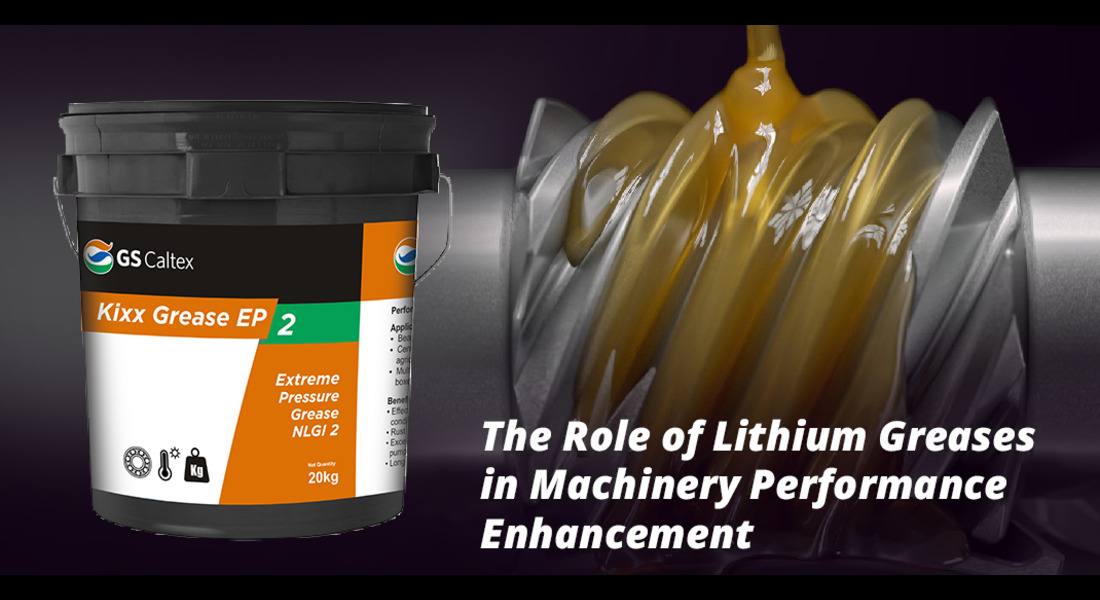

Mining contractors and companies the world over are focusing on raising efficiency and productivity. As such, lubricant manufacturers all over are optimistic about the demand for technologically advanced products that can help mining equipment meet such demands of efficiency and productivity.
Mining equipment is required to perform efficiently and reliably without any breakdown. Efficient and safe operation is vital for enhancing safety and productivity in mining operations. A major role is played by lubricants in this, by reducing wear and tear of machinery parts and safeguarding of equipment in starkest conditions.
The mining industry prefers quality products that can sustain extreme environments and operating conditions. Most of the manufacturers of lubricants for the mining industry focus on developing products that provide excellent wear protection and enhance performance.
Risks of the mining industry and role of lubricants Smaller carbon footprintA major risk area for mining operations is linked to environmental concerns. Such risks include contamination of water because of mining activities and transition to a low-carbon economy. Greases and Lubricants with an extended drain period can aid in reducing the quantum of waste lubricant generated by a mine. Combining this with robust procedures can help in lowering the risk of contamination via disposal. Switching to a lubricant that has been formulated to enhance energy efficiency can also be a stride in the proper direction.

Unplanned downtime of equipment can increase the interruptions of operations of the mining industry and adversely impact productivity. This risk can be reduced by lubricant analysis which offers a predictive, proactive approach towards maintenance. This works just like testing blood samples to indicate the nature of human health. By monitoring conditions of greases and oils, one can do a health check-up of mining operations.
In sum, there is rising demand for lubricants that will protect mining equipment for long periods under the toughest conditions. Lubricant’s help mining companies prolong the life of their equipment and reduce both oil consumption and logistics costs. For more details, please visit www.gscaltexindia.com or write to wecare@gsclatexindia.com
Why is changing engine oil at the proper interval so important? Making sure that you are changing your oil on a regular basis is the most important routine of vehicle maintenance. Properly scheduled oil changes are crucial in keeping your bike running properly. A responsible bike owner takes great care to maintain his bike. This helps keep the bike in good shape and prevents any issues from emerging in the future. The engine is the soul of the bike. Changing the engine oil is a basic and critical task. One must opt for the best bike engine oil.
1. Regular Oil Changes Keep Your Engine CleanWhen oil flows into the engine parts, dirt and other particles will begin to accumulate within it. If you are not changing your oil at the proper intervals, sludge will begin to build up in your engine. Those who may live in drier, dustier areas will have even more particles making their way through. Changing your engine oil as well as replacing your filters on a timely basis will get any of these harmful bits of dirt and debris out of the engine before they do any damage.
2. Longer Engine Life More Likely with Routine Oil ChangesOil is the lifeblood of your vehicle. It lubricates and protects your engine and many of its critical parts from wear and damage. The problem is oil gets dirty. By making sure that you have your oil and filter changed according to the recommendation in the owner’s manual, you will be keeping your engine clean and protected, as well as saving time, money, and stress. A regularly scheduled oil change is an investment that will help ensure that you will be driving around in your vehicle for years to come.
3. Get Better Mileage by Changing Oil on Time
Changing the oil on time and I will get better mileage? How does that work? Overall miles per litre are affected by several factors including environment, terrain, personal driving habits and vehicle maintenance. Without proper maintenance, all that dirt and grit we talked about earlier will build up inside your engine causing friction, and friction is no friend of your engine. Friction is the enemy of engine performance and optimum fuel economy. Making sure that your engine always has clean oil in it will help to reduce friction, allowing your engine to run more efficiently with the best possible mileage.
4. Routine Oil Changes Help with Better Engine PerformanceOver time, old oil breaks down due to exposure to heat. This causes it to lose its viscosity as well as its ability to lubricate the engine cylinder walls. Essentially, the dirtier the oil is, the harder it is to go where it needs to. That sludge begins to build up in areas blocking the flow to parts that need lubrication. Another function of oil is to draw heat from the parts of the engine. If they are covered with sludge, these parts stay hotter longer. Ultimately the engine will run less efficiently as its performance is robbed of both mileage and power.
Regularly schedule oil changes are a must. Hands down, they are not a vehicle service you can ignore. Old dirty oil decrease mileage lowers horsepower, and will ultimately reduce the life of your engine. Read over the owner’s manual for your vehicle and be sure to get your oil changed at the proper intervals recommended by your manufacturer. GS Caltex India Pvt Ltd provides the best solution with its vast portfolio of lubricants suitable for all types of machineries. For more details visit www.gscaltexindia.com

Introduction: Uncover the Power of Fully Synthetic Engine Oils!
Why GS Caltex India's Synthetic Engine Oils Are the Game-Changers
GS Caltex India: Pioneers in Engine Lubrication
Unveiling GS Caltex India's Top-Rated Synthetic Oils
FAQs: Unraveling the Mysteries of GS Caltex India's Synthetic Engine Oils
Conclusion: Elevate Your Engine's Performance with GS Caltex India's Fully Synthetic Oils!Your car's heart deserves nothing but the best, and that's where GS Caltex India's range of Engine Oil Fully Synthetic steps in. Crafted with precision and backed by years of expertise, these oils are engineered to provide unparalleled protection and performance. In this blog, we'll take you on a journey through GS Caltex India's top-rated synthetic oils, designed to be a game-changer for your vehicle.
Q1: Can I switch to GS Caltex India's synthetic oil if my car uses conventional oil?
Absolutely! Transitioning to GS Caltex UltraGuard Platinum can enhance engine longevity and performance, giving your car the care it deserves.
Q2: How often should I change GS Caltex India's synthetic engine oil?
While these synthetic oils have a longer lifespan, following the manufacturer's guidelines is recommended, usually suggesting an oil change every 7,500 to 10,000 miles.
Q3: Are GS Caltex India's synthetic oils suitable for older cars?
Yes, fully synthetic oils can benefit older vehicles by providing enhanced protection and reducing engine wear.
Q4: Can I mix GS Caltex India's synthetic oil with conventional oil?
While it's generally not recommended, it's safe to mix GS Caltex India's synthetic oils with conventional oils in an emergency. However, it's best to stick with one type for optimal performance.
Q5: How does GS Caltex India's synthetic oil benefit my car's fuel efficiency?
The reduced friction these synthetic oils provide leads to improved fuel efficiency, allowing your engine to operate more smoothly and effectively.

How do industrial lubricants enhance the lifespan of mining equipment?
Industrial lubricants play a crucial role in prolonging the lifespan of mining equipment. They reduce friction between moving parts, which minimizes wear and tear. This, in turn, lowers the risk of equipment failure and costly repairs. Additionally, lubricants also help dissipate heat generated during operation, preventing overheating and further extending the life of the machinery.
What are the key considerations when choosing the right industrial lubricant for a specific mining application?
Several factors should be considered when selecting an industrial lubricant for a mining application. These include the type of equipment, operating conditions (such as temperature and pressure), load-bearing capacity, compatibility with seals and materials, and environmental considerations. Additionally, considering the manufacturer's recommendations and consulting with lubrication experts can help make an informed choice.
Can using the wrong type of lubricant have detrimental effects on mining machinery?
Yes, using the wrong type of lubricant can have serious consequences for mining machinery. It may lead to increased friction, accelerated wear and tear, overheating, and equipment failure. Incompatible lubricants can also compromise seals and gaskets, leading to leaks and further damage. Ultimately, using the correct lubricant is essential to ensure optimal performance and longevity of mining equipment.
How often should industrial lubricants be changed in a mining operation?
The frequency of lubricant changes in a mining operation depends on various factors, including the type of equipment, operating conditions, and the specific lubricant being used. Generally, it's recommended to follow the manufacturer's guidelines for lubricant change intervals. Regularly monitoring lubricant conditions through oil analysis can help determine the optimal change intervals and prevent premature equipment wear.
What are some common signs of lubrication-related issues in mining equipment?
There are several indicators of lubrication-related problems in mining equipment. These include increased operating temperatures, unusual noises (such as squealing or grinding), decreased equipment efficiency, excessive vibration, and visible wear on components. Additionally, frequent breakdowns or contaminants in the lubricant are clear signs of lubrication issues that require immediate attention and corrective action.

Hey there, fellow car enthusiasts! You're in the right place if you're passionate about your car's performance. Today, we're delving into the fascinating world of car engine oil. Buckle up because this isn't your typical engine oil discussion. We're diving deep into car engine oil grades and specifications, unraveling the mysteries that often baffle us. So, if you're ready to maximize your vehicle's performance, keep reading!
If you're ready to give your car the care it deserves, explore GS Caltex India's exceptional range of Synthetic Engine Oils. You won't just be filling your engine with oil; you'll give it a performance upgrade. Don't wait – choose the right engine oil and keep your car running strong for years. Your car will thank you!
Happy driving, and see you on the road!
Why do I need to use the right engine oil for my car?
Using the right engine oil ensures optimal performance, reduces engine wear, and prolongs the engine's life.
What happens if I use the wrong engine oil grade?
Using the wrong grade can lead to poor engine performance, increased fuel consumption, and potential engine damage.
Is synthetic engine oil better than conventional oil for my car?
Synthetic engine oil performs better than conventional oil, especially in extreme conditions.
Can I switch between engine oil grades?
It's best to stick with your car manufacturer's recommendations, but consult a mechanic if you're considering a change.
How often should I change my car's engine oil?
The frequency of oil changes depends on your car, driving habits, and the type of oil used. Check your owner's manual for guidelines.
There’s nothing quite as disconcerting as suddenly seeing a red or yellow warning light on your dashboard.
Understanding what those symbols mean can be the difference between a simple 10-minute check-up and expensive repairs or even irreparable damage. Your dashboard lights are there to tell you when something is wrong, but not all manufacturers use the same symbols, so it’s important to consult your owner’s manual to get familiar the specific symbols for your make and model. This guide will help you get a start to understanding what your vehicle is telling you.


There’s nothing quite as disconcerting as suddenly seeing a red or yellow warning light on your dashboard. Understanding what those symbols mean can be the difference between a simple 10-minute...

Welcome to the exciting world of oil and lubricants distribution! GS Caltex India, a leading global player in the energy sector, is seeking dynamic and enthusiastic distributors to join their esteemed network. This blog will serve as an interactive and informational guide for aspiring entrepreneurs interested in becoming lubricant oil distributors in India. If you have a passion for business, a commitment to quality, and a desire to explore new opportunities, then GS Caltex India has an enticing offer for you!
GS Caltex India is a joint venture between GS Caltex Corporation, a South Korean company, and Chevron Corporation USA. With over five decades of expertise, GS Caltex has established itself as a trusted brand, providing a wide range of premium-quality oil and lubricant products across the globe. Their commitment to innovation, sustainability, and customer satisfaction sets them apart in the competitive market.


Becoming a distributor of GS Caltex India's oil and lubricant products offers a golden opportunity to embark on a rewarding entrepreneurial journey. With a robust product portfolio, renowned brand reputation, and comprehensive support from the company, you can carve a niche for yourself in the Indian lubricant market. So, if you have the drive and determination to succeed, take the first step towards a prosperous future by applying for GS Caltex India distributorship today!
Q1: What is GS Caltex India, and what products do they offer?
GS Caltex India is a joint venture between Chevron Corporation, USA and the GS Group in South Korea. They are a leading global player in the energy sector, offering premium-quality oil and lubricant products. Their product portfolio includes lubricants for automotive, industrial, marine, and other applications.
Q2: What are the benefits of becoming a GS Caltex India distributor?
Becoming a GS Caltex India distributor comes with several benefits, such as access to a diverse product range, marketing and sales support, comprehensive training, and technical assistance. Additionally, you get to partner with a reputed brand that enjoys a strong market presence, which can boost your credibility and customer base.
Q3: Do I need prior experience in the oil and lubricants industry to apply for distributorship?
While prior experience in the industry can be advantageous, it is not a strict requirement. GS Caltex India considers individuals with a strong entrepreneurial spirit and business acumen as potential distributors. However, having experience in a related field can enhance your chances during the evaluation process.
Q4: What financial requirements do I need to meet to become a distributor?
Distributorship opportunities require a certain level of financial stability to handle initial investments and operational expenses. GS Caltex India evaluates prospective distributors based on their financial capacity to ensure they can effectively run the distribution business.
Q5: What infrastructure do I need to have as a GS Caltex India distributor?
As a distributor, you should have appropriate storage and distribution infrastructure. This includes having warehousing facilities to store the products, transportation capabilities to deliver to customers, and a well-organized supply chain network to ensure smooth operations.
Q6: How do I apply to become a GS Caltex India distributor?
To apply for distributorship, you can express your interest by filling out an online application form available on the GS Caltex India official website. Provide accurate and detailed information about your background, business experience, and the proposed distribution area.
Q7: What happens after I submit my application?
After submitting your application, GS Caltex India will evaluate your eligibility based on the provided information. If you meet their criteria, you will be shortlisted for further discussions and meetings with their team to explore the potential for a successful partnership.
Q8: What factors does GS Caltex India consider during the selection process?
GS Caltex India considers various factors during the selection process, including financial stability, infrastructure capabilities, market potential in the proposed distribution area, and alignment with their business values and goals.
Q9: Is distributorship with GS Caltex India a lucrative business opportunity?
Yes, distributorship with GS Caltex India offers a lucrative business opportunity. With the growing demand for quality lubricants in India's industrial and automotive sectors, distributors have the potential to earn attractive profit margins.
Q10: What ongoing support can I expect from GS Caltex India as a distributor?
GS Caltex India believes in fostering long-term partnerships with its distributors. As a distributor, you can expect continuous support, joint marketing initiatives, access to technological advancements in the lubricant industry, and mutual growth opportunities throughout your association with the brand.
Q11: Can I distribute GS Caltex India products in any region of India?
GS Caltex India considers distributorship applications for various regions across India. The availability of distributorship in specific regions may depend on factors such as existing distribution networks and market demand.
Q12: How can I contact GS Caltex India for more information or to clarify any queries?
To obtain further details or address any inquiries concerning distributorship opportunities with GS Caltex India, please visit their official website. Feel free to utilize the provided contact information to reach out to their team for clarification.

Rev up your engines! In this blog, we're diving deep into the world of engine oils. What's the deal with fully synthetic, semi-synthetic, and mineral oils for bikes in 2023? Let's break it down.
Your Burning Questions Answered
Is fully synthetic oil suitable for all types of bikes? Absolutely! Fully synthetic oil caters to various bikes, from cruisers to sport bikes.
Can I switch from mineral oil to fully synthetic?
Yes, you can make the switch. However, it's recommended to consult your bike's manufacturer or a mechanic for compatibility.
How often should I change my engine oil?
The frequency of oil changes depends on factors like your bike's make and model and your riding habits. Generally, it's advisable to follow the manufacturer's recommendations.
Will using fully synthetic oil improve my bike's fuel efficiency?
Yes, fully synthetic oil's reduced friction properties can improve fuel efficiency.
Is fully synthetic oil more expensive than mineral oil?
While fully synthetic oil may have a higher upfront cost, its superior performance and engine protection can lead to long-term savings by preventing costly repairs.

The engine has traditionally been the final platform for determining the required oil quality. The engine continues to be the last arbiter of oil quality despite modifications to the engine's design for performance, fuel efficiency, and environmental considerations.
The oil must possess specific physical and chemical characteristics to function properly in the engine. During the oil's service, the engine generates several operating stresses that have a negative impact on the oil's long-term ability to work at a consistently high level. Service conditions might also differ significantly depending on the environment and how the vehicle is operated. As a result, selecting an engine oil to match specific servicing needs and conditions necessitates knowledge of numerous critical oil qualities, including viscosity. Get the best engine oil from an engine oil company like GS Caltex India.
Whether you live in a hot or cold region or drive on paved or unpaved roads, you should consider the driving conditions you are used to. Different situations can strain your car in various ways, necessitating frequent engine oil changes. Consider your living and driving situations when determining what type of motor oil is best for you.
A fluid's reluctance to flow is known as its viscosity. Because the molecules in a fluid are slightly attracted to one another, energy is necessary to separate them and create flow. Larger molecules have greater attraction between them and have a higher viscosity.
The energy necessary to overcome this molecule-to-molecule interaction and generate fluid flow is friction. As a result, viscosity can be considered a type of molecular friction. The viscosity and viscometric behaviour of engine oil during operation are frequently regarded as essential physical and chemical properties.
Regarding frequent oil changes, mineral oil should always provide proper lubrication. The engine oil company provides a decent indication of the type of oil that should be used. A good rule of thumb is to avoid switching between the various categories.
If you start using conventional oil in your car, keep using it. If you use synthetic oil for the first time, be cautious while converting to traditional oil.
This oil is used in large quantities by dealers and is usually the cheapest on the market. Most owners trust frequent oil changes and drive little kilometres to adhere to an appropriate oil.
This oil has been used in vehicles for decades. It provides better protection against heavier engine loads and higher engine temperatures. Although they are typically more expensive than normal premium oils.
These oils are designed for high-performance engines. If these oils pass stringent specific tests, it implies they provide outstanding long-term performance in all essential areas ranging from viscosity index to engine deposit protection. They flow better at lower temperatures and maintain maximum lubrication at higher degrees. When choosing a synthetic oil, consider Kixx G1 Synthetic Power from GS Caltex India.
It can be tough to understand engine oil and make the appropriate choice for your automobile, but choosing the right engine oil helps increase engine life and allow your engine to run more effectively.

Diesel engines have different functional requirements than conventional gasoline-engine-powered vehicles. Diesel engines have two primary purposes, the first being the power to drive the wheels and the second being the motive force to propel the vehicle. The diesel engines in heavy-duty trucks and trailers have this second purpose, called motive power. The heavy duty diesel engine oils must perform at all speeds, sustained use, and several different cranking cycles, idling, and starting. They must not allow hydrocarbon to seep through, or the engine will not run properly. They must provide adequate cooling under both warm and cold operating conditions. Thus, below are some of the benefits of selecting the best heavy-duty diesel engine oil.
Better Performance :- Unlike conventional motor oils, diesel engine oils are often formulated to promote lower energy consumption and higher performance in a wide variety of applications. Engine oils need to survive the rigors of heavy-duty operation for many years with high performance. The decision to develop heavy-duty diesel engine oils came from a desire to find the best motor oil to improve performance and maximize engine life.
Better Mileage :- While modern diesel engines have changed significantly over the past 40 years; they still suffer from common oil quality issues that cause wear and degradation of engine parts. Diesel will not typically run as efficiently as gasoline engines when first started due to the lack of oil used for lubrication. Manufacturers recommend pre-conditioning of the engine to prepare it for the startup procedure, which an oil change may follow before the end of the week. However, most heavy-duty diesel engine oil suppliers offer complete engine oil maintenance programs designed to resolve common engine oil problems.
Protects wear and tear of the engine :- Reduces carbon dioxide emissions by reducing fluid displacement (aerodynamic drag) in the cylinders during startup and by reducing the amount of fuel needed for combustion during idle periods. Heavy-duty diesel engine oil delivers improved power and durability and also increases horsepower and torque while reducing fuel consumption and the need for frequent fuel stops. Moreover, improved fuel efficiency is associated with increased idling time as well as decreased emission of gaseous pollutants (NOx and CO2). Eliminates the risk of cylinder walls cracking due to heat. Cylinders can crack due to the heat from high-temperature fuels. Manufacturers, therefore, make periodic changes to their oil viscosities and oil additives to compensate for the effect of this risk.
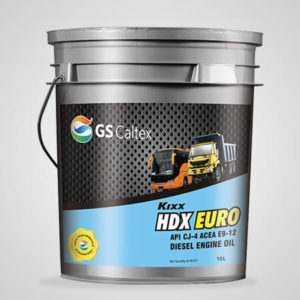
Protects from corrosion :- Iron from the input diesel fuel oil corrodes parts of the engine oil. To protect the engine from corrosion, the different base oils have additives that combine with sulfur. Each fuel engine manufacturer offers a base oil that meets the requirements of its specific model. This often means that there are different base oil options available for different model year engines that have different system and injector injection levels.
While diesel engines can be found in many non-diesel applications such as forklifts and municipal transport, none can match their power and reliability compared to their gasoline-based counterparts. In addition, combustion products generated by diesel engines are significantly cleaner than those generated by gasoline engines. Having the Best Diesel Engine Oils for your application can make a real difference in your fuel mileage.
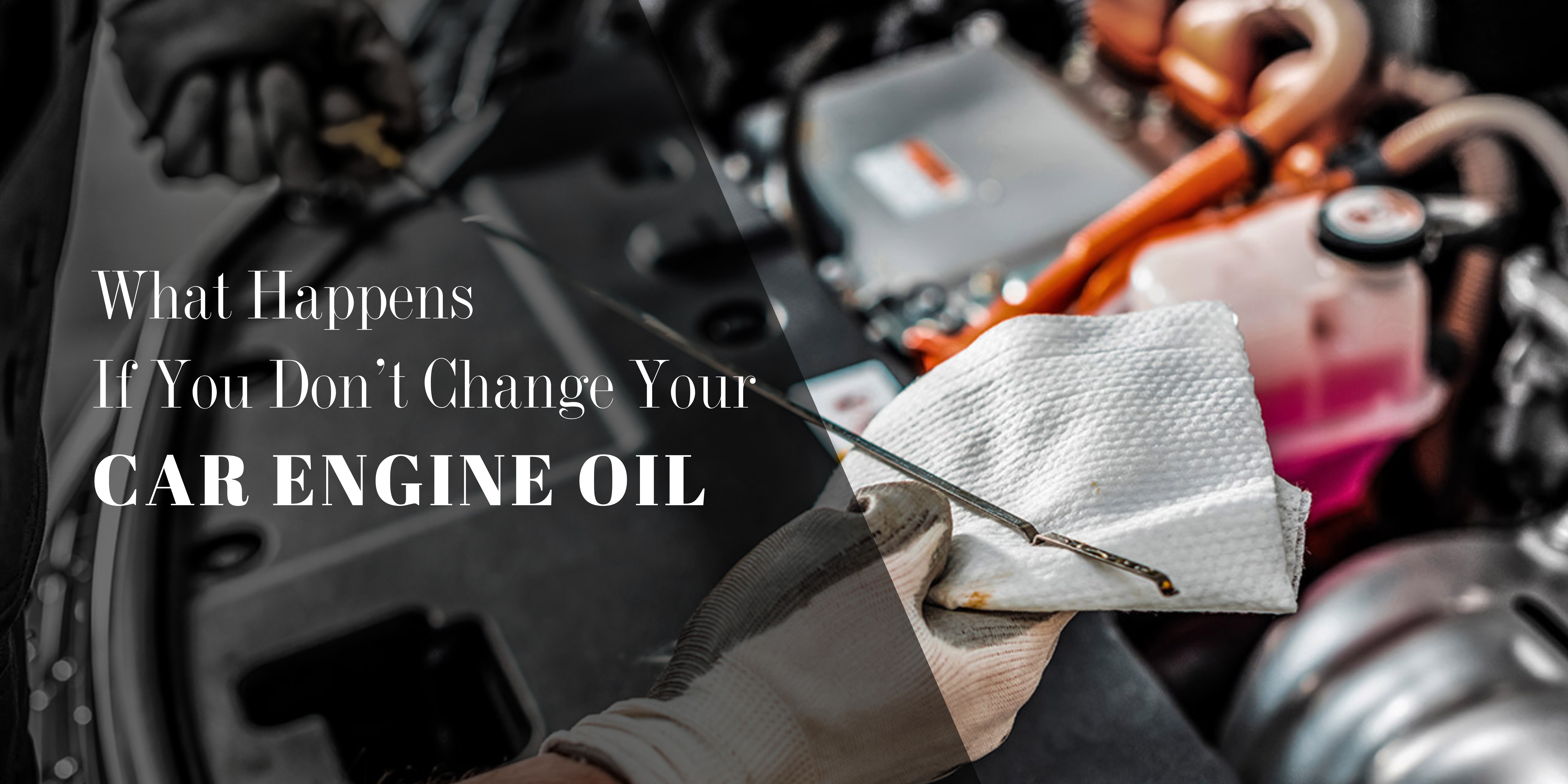
As a car owner, it's essential to keep your vehicle in good condition to ensure it runs smoothly and lasts for years to come. One crucial component of your car's maintenance is regular engine oil changes. Not only does it keep your engine running smoothly, but it also prevents costly repairs down the road.
Engine oil is a lubricant that helps to keep the engine's moving parts working correctly by reducing friction and wear. It also helps to cool the engine by absorbing heat generated during operation. Engine oil also helps to prevent corrosion, keeps the engine clean by removing debris and contaminants, and improves fuel efficiency.
Over time, engine oil becomes dirty and loses its effectiveness, making it harder for it to lubricate and cool the engine properly. If the engine oil is not changed regularly, it can lead to several issues, including:
GS Caltex India is one of the most popular and reliable brands of engine oil available in India. It's a synthetic blend that provides excellent protection against engine wear and tear, extending the engine's lifespan. It's also designed to resist high temperatures, making it perfect for Indian weather conditions.
In conclusion, engine oil plays a crucial role in keeping your car running smoothly, and regular oil changes are essential for maintaining your car's performance and longevity. And when it comes to the best engine oil for your car, GS Caltex India is the perfect choice to ensure your car stays in top condition for years to come.

Drivers who care for and maintain their vehicles know the importance of engine oils – and of car oil changes. They change their oil regularly according to the seasons or miles they’ve traveled, and look into different types of engine oils to find the one that gives their vehicle the best performance. And while not every driver is this particular about their engine lubricants, anyone who has sat behind a wheel or the handlebars knows that the oil needs to be changed at some point.

But what happens when you don’t change your engine oil?
To answer that question, let’s start by looking at what engine oils do, and why they’re important to the maintenance of your vehicle.
When the engine is running, there will always be friction – especially between the pistons and the cylinder. Friction is created between the connecting rod and the crankshaft, and that’s where engine oil is needed. Engine oils most basic job is to lubricate – hence why engine oils are also called ‘lubricants.’
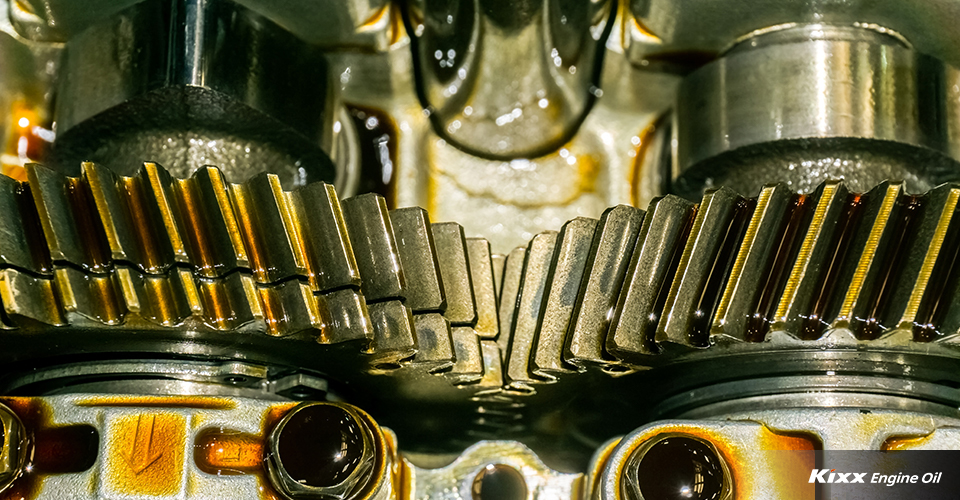
Engine oil works by creating a film on the inner wall of the cylinder, preventing direct contact between the pistons and the cylinder. Since oil is a liquid, it naturally flows downward over time. But as the pistons move up and down, they also pump oil back up to the rest of the cylinder, maintaining an even coverage as you drive.
Friction between the cylinder and pistons is reduced, and the rotations can happen more smoothly.
The second role of engine oil is cooling down your engine, though not many people realize how important engine oil is to temperature regulation. Your engine generates a massive amount of heat from fuel combustion. As engine oil moves around the inside of your engine, it carries heat away from hot spots and disperses it evenly, helping to regulate the temperature and prevent overheating.

Pistons and cylinders ay appear to be a perfect match in size, but if that were the case, they would rub against each other too much and cause friction to reach excessive levels.

To avoid this, manufacturers actually make the cylinder and pistons with a small gap in between. The engine oil then forms a layer on the engine’s inner wall to seal the gap between the cylinder and the pistons, preventing fuel from leaking through the gap. This is why engine oil viscosity is so important – an engine oil produced with the right viscosity can act as a highly effective sealant and help prevent leakages.
The final role of engine oil is to prevent carbon sludge and combustion residue from accumulating inside the engine, and to prevent rust. Washing is a very important job of any good engine oil, helping carry away debris that contaminates the injected fuel.
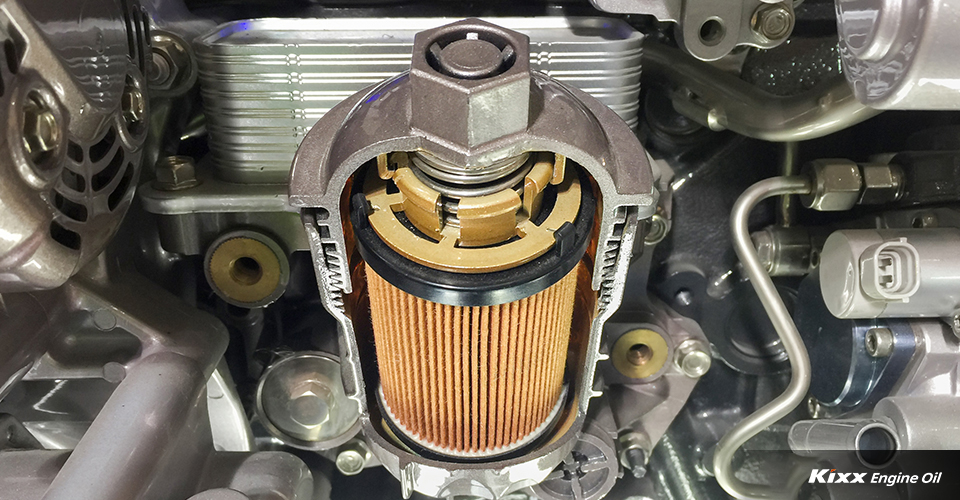
Now that we understand the role of engine oil, we can answer the most important question: what happens if you don’t change your engine oil?
First, lubrication inside your engine will start to drop. When lubrication starts to degrade, the fuel efficiency of your vehicle falls with it. This results in increased internal friction, which then puts more pressure on the engine and makes its job more difficult. This causes the power to drop significantly – and as the engine fights harder than usual to maintain performance, fuel efficiency suffers considerably.
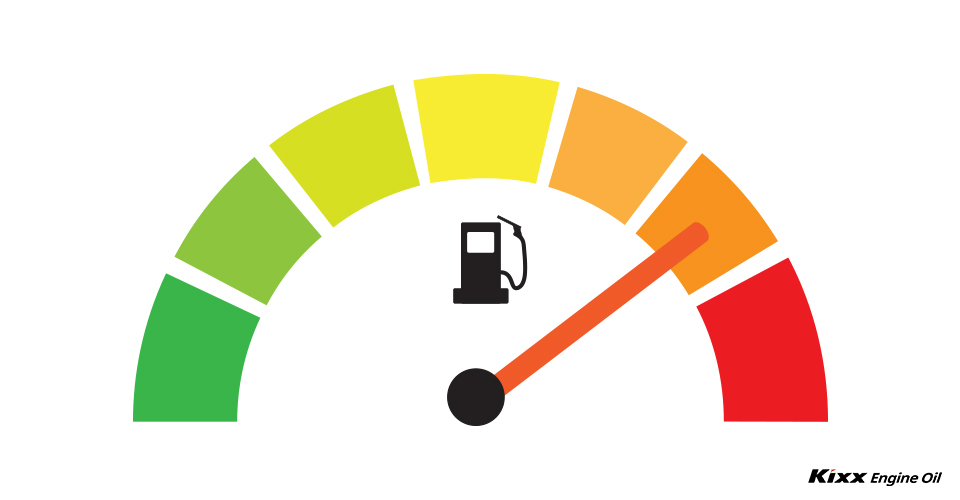
If you’ve ever driven your vehicle too far past the recommended engine oil change date, you might have noticed a suspicious rattling sound coming from under the hood. This happens because unchanged engine oil doesn’t control heat levels as well as newer oil. When heat builds up inside the engine, it causes the fuel to combust at unexpected times. Engine oil plays a huge role in keeping an engine cool, second only to the coolant, so the impact of oil and past tis time engine oil in the cooling system shouldn’t be overlooked.
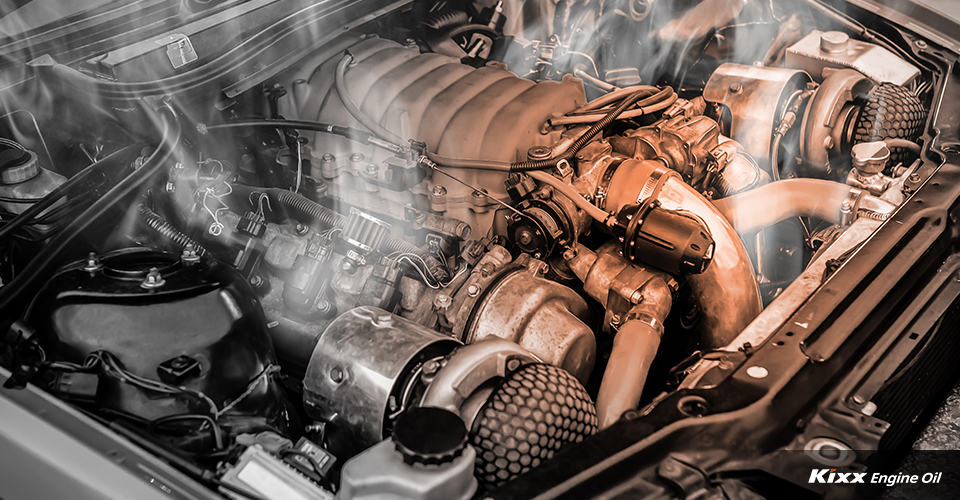
We already explored how engine oil can help create a seal inside your engine that prevents leakage. But old engine oil breaks down over time and can’t seal your engine as well as fresh oil. This allows certain metals to expand, ultimately causing the pistons to overwhelm the engine’s inner walls. Also, when your oil fails to act as a proper sealant, it can leave gaps inside the engine through which fuel can leak, sapping power from the engine and reducing fuel efficiency over time.
The final downside to not changing your oil frequently enough is the sheer amount of build up that will occur inside your engine. A dirty, sludge filled engine can lead to problems like contaminating the injected fuel or preventing the spark plug from igniting. Residue cleared away by the engine oil is filtered through an oil filter, but the filter can only do so much. If you drive without changing your oil for long enough, the engine oil will become black and contaminated – and so will the engine itself.
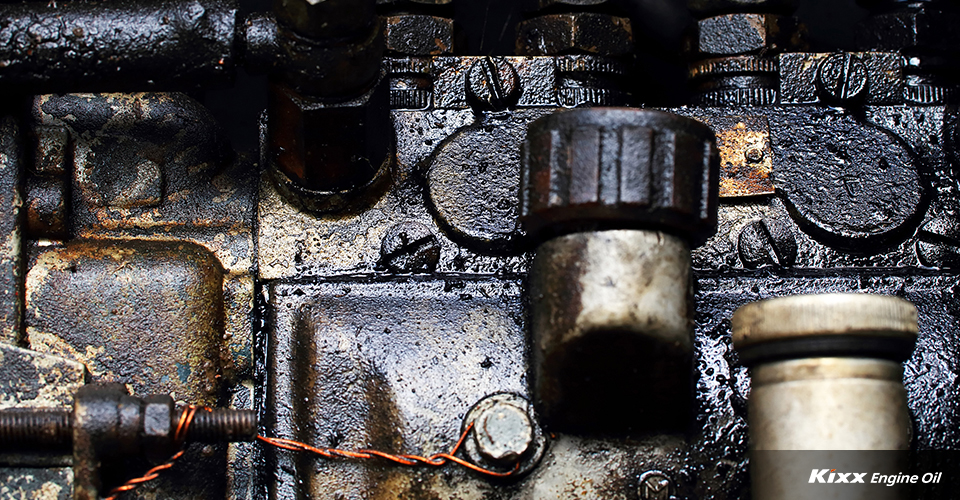
Changing engine oil regularly is crucial to healthy vehicle maintenance. When engine oil goes unchanged for too long, a host of problems can set in. Engine oil contains a important properties and additives that help with the four functions we’ve discussed so far, and when engine oil is contaminated by debris or excessive heat, function is either damaged or lost entirely.
Of course, driving your vehicle for a short time past the replacement cycle won’t cause you major problems right away. In recent years, engines have also become considerably more durable, especially in gasoline direct injection (GDI) engines, while the functions for cleaning the cylinders and cooling the engine have improved significantly. But even with today’s durable and efficient engines, going too long without changing your engine oil is a recipe for trouble, cutting engine performance over time.
So how often should engine oil be changed? The answer to this question is different for every driver, and is influenced by the driving environment, style, and how frequently you drive. Due to engine improvements, engine oil change cycles are also getting longer, with some vehicle manufacturers recommending you change the oil once every two years. It’s also important to consider the risks of overdoing it and changing your oil too much, including the cost of car oil changes, unnecessary waste, and environmental issues. While we may need to rethink engine oil cycles based on new and improved vehicles, one thing is for sure: if you want your vehicle to last for years to come, changing your oil regularly is far better than not changing it.
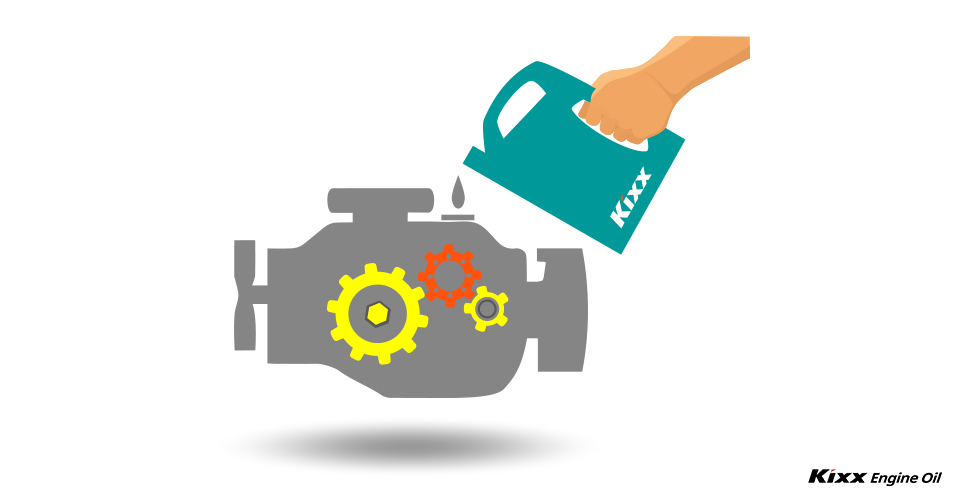
Drivers who care for and maintain their vehicles know the importance of engine oils – and of car oil changes.
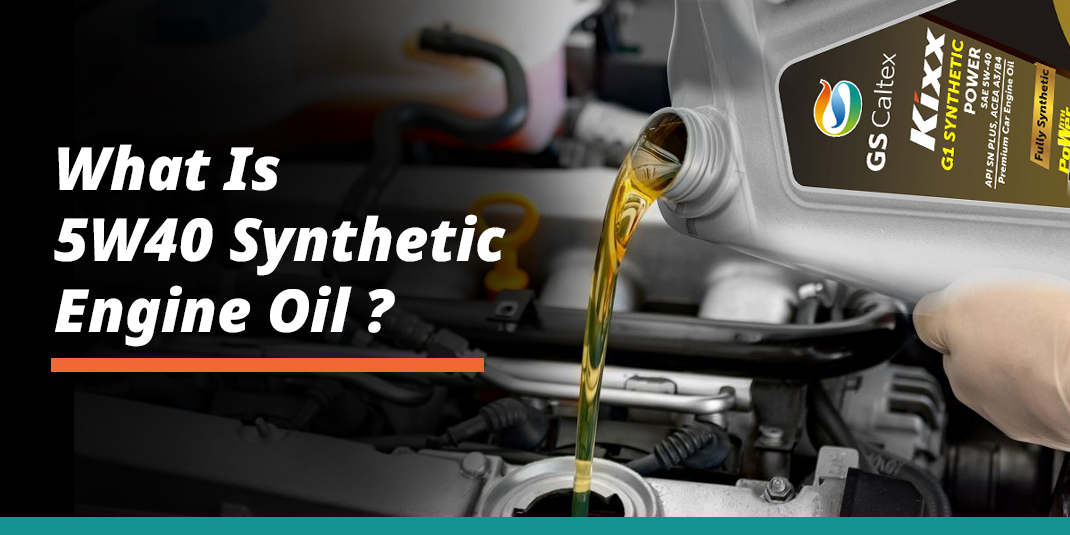
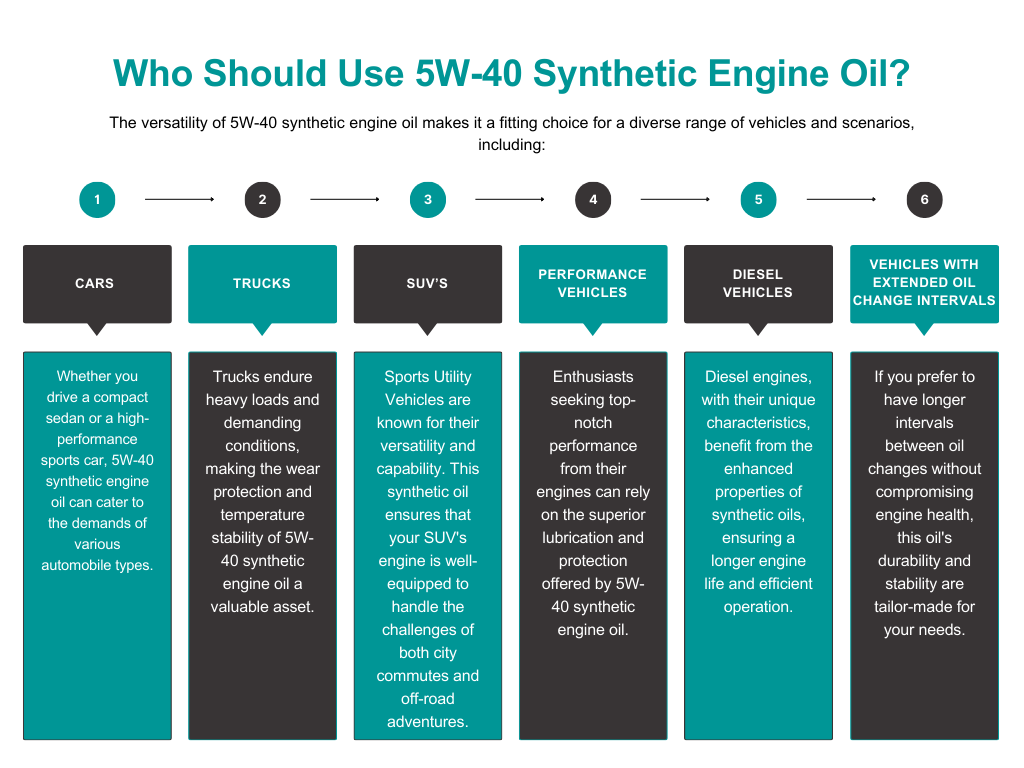
Q1: What makes 5W-40 synthetic engine oil different from conventional oils?
5W-40 synthetic engine oil is formulated using artificially engineered molecules that offer superior stability and performance compared to conventional oils. These molecules provide better lubrication, reduced friction, and improved protection for your engine, resulting in enhanced efficiency and longevity.
Q2: How does the "5W-40" designation affect engine performance?
The "5W" indicates the oil's cold-weather viscosity, making it flow easily at low temperatures. This ensures smooth engine start-up, even during chilly mornings. The "40" indicates the hot-weather viscosity, which ensures the oil retains its protective properties at high temperatures, safeguarding your engine under extreme conditions.
Q3: Will using 5W-40 synthetic engine oil improve my vehicle's fuel efficiency?
Yes, 5W-40 synthetic engine oil can contribute to improved fuel efficiency. Its lower viscosity at cold temperatures reduces engine drag during start-up, leading to reduced energy consumption. Over time, this can translate into noticeable fuel savings.
Q4: Can I use 5W-40 synthetic engine oil in all types of vehicles?
Certainly, the 5W-40 synthetic motor oil is appropriate for a broad spectrum of automobiles, encompassing cars, trucks, SUVs, high-performance vehicles, and even diesel engines. Its adaptability renders it a valuable option for diverse driving scenarios and types of vehicles.
Q5:How often should I change my oil if I'm using 5W-40 synthetic engine oil?
One of the benefits of synthetic oils like 5W-40 is their extended oil change intervals. Depending on your vehicle and driving habits, you might be able to go longer between oil changes compared to using conventional oils. However, it's recommended to refer to your vehicle's owner's manual for specific guidance.
Q6: Will using 5W-40 synthetic engine oil reduce engine wear and tear?
Indeed, the 5W-40 synthetic motor oil is designed to offer enhanced safeguarding against wear, thanks to its sophisticated lubricating qualities. It establishes a shielding barrier amidst mobile components, thereby diminishing friction and lessening the deterioration experienced by your engine's parts.
Q7: How does 5W-40 synthetic engine oil contribute to reduced emissions?
The efficient lubrication provided by 5W-40 synthetic engine oil ensures cleaner combustion within the engine. Cleaner combustion leads to reduced emissions of harmful pollutants, contributing to a more eco-friendly driving experience.
Q8: Can I switch from conventional oil to 5W-40 synthetic engine oil?
Yes, you can switch from conventional oil to 5W-40 synthetic engine oil. However, it's recommended to consult your vehicle's owner's manual and follow the manufacturer's recommendations. In most cases, making the switch is possible, and it can lead to improved engine performance and protection.
Q9: Is 5W-40 synthetic engine oil more expensive than conventional oils?
Yes, synthetic oils are generally more expensive than conventional oils. However, their extended oil change intervals and the benefits they offer in terms of engine protection, fuel efficiency, and performance can often justify the slightly higher cost.
Q10: Where can I find GS Caltex India's 5W-40 synthetic engine oil?
You can locate GS Caltex India's 5W-40 synthetic engine oil at authorized dealers, automotive supply shops, and online sellers. Make certain to buy from trustworthy sources to guarantee the authenticity of the product.
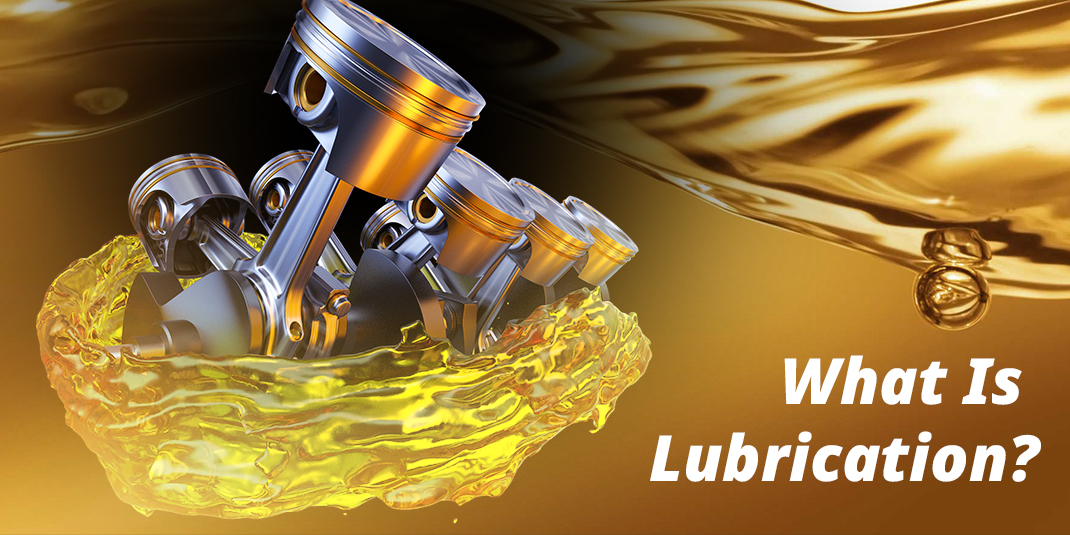
4. Importance of Choosing the Right Lubricants Distributorship

Choosing the Right Synthetic Engine Oil: It All Begins Here!
Tip #1: Match the Oil to Your Vehicle
GS Caltex India: My Go-To Choice for the Best Synthetic Engine Oil
Pre-Monsoon Vehicle Care: Don't Get Caught in the Rain Unprepared! ☔
Conclusion: Drive Safe and Enjoy the Monsoons! 🌦️
 Explore - Kixx G1 Synthetic Power
Explore - Kixx G1 Synthetic Power

Q1: What is synthetic engine oil, and why is it recommended?
Synthetic engine oil is a lubricant that contains artificially created molecules designed to provide superior engine protection and performance. It's recommended for its ability to withstand high temperatures and reduce friction, leading to improved fuel efficiency and engine longevity.
Q2: How do I know which synthetic engine oil is best for my car?
Refer to your car's manual for manufacturer recommendations. It specifies the viscosity and oil type suitable for your engine. You can also consult with a trusted mechanic or refer to GS Caltex India's range of synthetic engine oils.
Q3: What are the advantages of using synthetic engine oil from GS Caltex India?
GS Caltex India's synthetic engine oils are known for their quality, fuel efficiency improvement, and environmental responsibility. They offer a wide range of options suitable for different engine types and driving conditions.
Q4: When should I check my tires before the monsoon season?
It's advisable to check your tires' tread depth and pressure well before the monsoon season begins. Ideally, perform this check during routine vehicle maintenance or at least a few weeks before the anticipated onset of heavy rains.
Q5: How often should I replace wiper blades?
Wiper blades should be replaced when they start leaving streaks or are visibly worn out. It's a good practice to replace them annually, especially before the monsoon season, to ensure clear visibility during rain.
Q6: Is rust prevention necessary for all vehicles during the pre-monsoon period?
Rust prevention measures are beneficial for most vehicles, especially those exposed to wet and salty road conditions. Applying a rust inhibitor or undercoating helps protect your car's undercarriage from corrosion, extending its lifespan.
Q7: Can I perform pre-monsoon vehicle care at home, or should I visit a service center?
While some pre-monsoon checks like tire pressure and lighting can be done at home, it's advisable to visit a trusted service center for comprehensive pre-monsoon servicing. Professionals can identify and address potential issues more effectively.

What Does Transmission Fluid Do?
What Type of Transmission Fluid Do I Need?
Synthetic vs. Traditional Transmission Fluid:
What Does Transmission Fluid Look Like?
How Often Should Transmission Fluid Be Changed?
How Do I Know if My Transmission Fluid Is Low?
Symptoms of Low Vehicle Transmission Fluid:
 Another important consideration is choosing between synthetic and traditional (conventional) transmission fluid. While both serve the same purpose, synthetic transmission fluid offers certain advantages:
Another important consideration is choosing between synthetic and traditional (conventional) transmission fluid. While both serve the same purpose, synthetic transmission fluid offers certain advantages:

 Allowing your car to run out of transmission fluid can be disastrous for your transmission. The consequences of driving with an empty or critically low transmission fluid level include the following:
Allowing your car to run out of transmission fluid can be disastrous for your transmission. The consequences of driving with an empty or critically low transmission fluid level include the following:


When it comes to the heavy-duty world of mining machines, proper lubrication is crucial for their optimal performance and longevity. The demanding operating conditions in mines, such as high temperatures, heavy loads, and dusty environments, require the use of high-quality lubricants that can withstand these challenges. In this blog, we will delve into the importance of selecting the right lubricants for mining machines and shed light on the role of GS Caltex India, a leading provider of advanced lubricant solutions for the mining industry.
In the mining industry, achieving maximum efficiency is a top priority for companies. This involves optimizing the performance of mining machines to ensure productivity and cost-effectiveness. Proper lubrication plays a crucial role in achieving this goal. By reducing friction, heat, and wear, lubricants help improve overall machine efficiency and productivity. Reduced friction means less energy loss, smoother operation, and less strain on the machine's components. As a result, mining companies can enhance the performance and output of their machines while minimizing downtime and maintenance costs.
Lubricants play a multifaceted role in mining operations. They act as a protective barrier between moving parts, reducing friction and preventing metal-to-metal contact. This prevents excessive wear and damage to critical components, extending the lifespan of mining equipment. Lubricants also carry away heat generated during machine operation, ensuring that optimal temperature levels are maintained. By dissipating heat, lubricants prevent overheating and contribute to the efficient functioning of the machinery. Additionally, lubricants possess corrosion-inhibiting properties, protecting metal surfaces from rust and other forms of deterioration. This protection is particularly crucial in the mining industry, where machines are exposed to harsh environments and moisture.
Mining machines, including excavators, bulldozers, loaders, and dump trucks, operate under extreme conditions that can take a toll on their components and performance. Here are some key reasons why selecting the appropriate lubricants is crucial:
Heavy mining equipment experiences significant friction and wear during operation. High-quality lubricants reduce friction between moving parts, minimize wear, and help prevent premature component failure. This ensures the machines operate smoothly and efficiently, reducing downtime and maintenance costs.
Mining environments are often filled with dust, dirt, and other contaminants that can infiltrate the machines' critical components. The right lubricants create a protective barrier that shields the equipment from contaminants, preventing damage and maintaining operational efficiency.
Mining machines generate considerable heat and operate under high pressure. Lubricants with excellent thermal stability and resistance to extreme pressure conditions ensure reliable performance, even in the harshest mining environments.
Proper lubrication significantly extends the lifespan of mining machines. By reducing friction, wear, and the risk of component failure, the right lubricants help mining companies maximize their return on investment by increasing equipment durability and reducing replacement costs.
The mining industry employs a wide range of equipment, each with its specific lubrication requirements. Here are some common types of lubricants used in mining:
Hydraulic systems in mining machinery require specialized lubricants. Mining hydraulic oils are designed to provide excellent anti-wear properties, ensuring the longevity of hydraulic components. They also offer high oxidation stability and thermal stability to withstand the demanding operating conditions encountered in mining.
Mining gear oils are formulated to protect gears and bearings from extreme pressures and heavy loads. They possess excellent anti-wear properties, ensuring smooth gear operation and minimizing wear-related failures. These oils also exhibit high load-carrying capacity and thermal stability, making them suitable for the demanding gear systems used in mining machinery.
Greases are semi-solid lubricants that find application in mining where a thicker lubricating film is desired or when lubrication points are challenging to access. Mining greases offer excellent water resistance, protecting equipment from moisture-related damage. They also provide superior protection against contaminants, ensuring reliable performance in dusty and dirty mining environments.
Selecting the appropriate lubricant is crucial for maximizing the performance and reliability of mining machines. Consider the following factors when choosing a lubricant:
Evaluate the operating conditions, such as temperature, humidity, and load capacity, to determine the lubricant's viscosity and performance characteristics required. Different mining applications may have varying temperature ranges, and lubricants must be able to perform optimally within those conditions.
Consult equipment manufacturers for their lubrication recommendations and specifications. Manufacturers have extensive knowledge of their equipment and can provide valuable insights into the lubrication requirements for specific machines. Following OEM recommendations ensures compatibility and maximizes equipment performance.
Opt for environmentally friendly lubricants that comply with regulations and contribute to reducing ecological footprints. Environmentally friendly lubricants offer performance benefits while minimizing potential harm to the environment and aligning with sustainable mining practices.
Consider the ease of lubricant application, monitoring, and compatibility with existing lubrication systems. Efficient lubricant maintenance requires proper application techniques, regular monitoring, and timely lubricant change intervals. Selecting lubricants that are compatible with existing lubrication systems simplifies maintenance processes and reduces the risk of equipment damage.
Proper lubricant maintenance is essential for maximizing the performance and lifespan of mining machines. Here are some key aspects of lubricant maintenance:
Perform routine inspections to monitor the condition of the lubricant, including its viscosity, contamination levels, and overall effectiveness. Visual inspections, oil analysis, and other diagnostic techniques help identify potential issues before they cause major problems.
Regularly analyze lubricant samples to assess their condition and identify any contaminants or signs of wear. Oil analysis provides valuable insights into the health of the lubricant and the machinery, allowing for timely maintenance actions to be taken.
Follow the manufacturer's recommendations for lubricant change intervals. Overused or degraded lubricants can lead to reduced equipment performance, increased wear, and potential failures. Timely lubricant changes ensure that the equipment operates with fresh and effective lubrication.
Train personnel on proper lubrication techniques, including the correct amount and method of lubricant application. This helps prevent over- or under-lubrication, ensuring optimal performance and avoiding potential damage to the equipment.
Implement proper storage practices to maintain the quality of lubricants. Lubricants should be stored in clean, dry areas, away from contaminants and extreme temperatures. Following appropriate storage practices prevents contamination and degradation of lubricants, preserving their effectiveness. By prioritizing lubricant maintenance and following best practices, mining companies can enhance equipment performance, reduce downtime, and minimize maintenance costs, ultimately improving their overall operational efficiency and profitability.
When it comes to choosing the right lubricants for mining machines, one company stands out: GS Caltex India. GS Caltex, a joint venture between GS Energy and Chevron, is a renowned global energy company with a strong focus on providing high-quality lubricants for various industries, including mining.
GS Caltex India possesses extensive knowledge and expertise in developing lubricants specifically designed for the demanding conditions of the mining industry. Their lubricants are engineered to provide exceptional performance, protection, and efficiency for mining machines, ensuring uninterrupted operations.
GS Caltex India leverages cutting-edge technology and research to develop lubricants with advanced formulations. These formulations are designed to deliver superior lubrication properties, excellent thermal stability, exceptional wear protection, and resistance to contaminants, meeting the unique requirements of mining equipment.
GS Caltex India is committed to sustainable practices and environmental responsibility. Their lubricants are formulated to reduce environmental impact through lower emissions and extended oil drain intervals. By using GS Caltex lubricants, mining companies can contribute to a greener future while maintaining operational excellence.
GS Caltex India offers a comprehensive range of lubricants suitable for various mining applications. From engine oils and gear oils to hydraulic fluids and greases, their product portfolio covers the lubrication needs of mining machines, ensuring optimal performance across different equipment types.
GS Caltex India provides dedicated technical support and service to mining companies. Their team of experts offers valuable guidance in selecting the right lubricants, conducting oil analysis, and implementing lubrication best practices. This ensures mining machines operate at their best and helps optimize overall productivity.
In conclusion, selecting the right lubricants for mining machines is essential for their performance, longevity, and overall productivity. GS Caltex India, with its extensive expertise, advanced formulations, environmental considerations, comprehensive product range, and excellent technical support, is a trusted partner that fulfils the lubrication needs of the mining industry. By choosing GS Caltex lubricants, mining companies can ensure the reliability, durability, and efficiency of their equipment, ultimately leading to improved operational success in the challenging mining sector.

In hydraulic equipment, hydraulic fluid is used as a lubricant and a way for heat to move. You can choose many kinds of fluids for your hydraulic system. For best performance, each system needs its kind of fluid. Because hydraulic oils and their uses are different, it is difficult to choose the right fluid. Here is what makes a hydraulic fluid great and some tips to follow when buying them.
The way hydraulic oils are made chemically makes them easy to tell apart. Synthetic hydraulic oil is very stable and works better as a lubricant. In situations where the temperature and pressure change a lot, choose synthetic fluids. When there is a high fire risk, use hydraulic oils made with water.
Choose a hydraulic fluid that is right for your use. Hydraulic fluid is used in many places, including Infrastructure, construction, mining machinery, steel plant etc. Different kinds of equipment will need different kinds of hydraulic oils. If your application needs a multigrade oil, look for a fluid with additives that make it more stable when it is being sheared. Shear stability is a lubricant's ability to hold its viscosity and resist hydraulic forces.
When choosing a lubricant, think about how the equipment's pump is made. Gear, piston, and vane pumps are the most common kinds. Rotors on vane pumps are connected to a shaft that spins inside a cam ring. Most of the time, these pumps need hydraulic fluid with a thickness between 14 and 160 centistokes. Vane pumps can move much fluid, but they wear out quickly, adding up maintenance costs quickly. Most pumps have pistons as their main part. They last longer and work better than the others. For piston pumps to work, the viscosity of the hydraulic fluid must be between 10 and 160 centistokes. Gear pumps do not work as well as other types. Gear pumps can be either internal or external. Pumps with gears on the inside are quieter and work better. Different types of hydraulic fluids can be used with this type of pump.
Look for hydraulic fluids that work well with the way temperatures change in your application. For example, the hydraulic oil for a snowplough might not be good for tractors or forklifts, which get very hot. Fluids used in hydraulics can only keep their properties in certain temperature ranges. If the temperature is below or above this range, the oil will lose its thickness, leak, and may even hurt the way the equipment works. Choose hydraulic oils with performance-boosting and life-extending additives if you use your equipment in a wide range of temperatures.
Make sure to follow what the maker of the equipment says to do. When buying hydraulic fluid, you should ask the seller if they confirm the manufacturer’s specifications. Also, ask if the fluid meets national and international standards for how it works.
When buying the right hydraulic oil, you need to consider the type, brand, and quality of oil and how often you plan on using it. Many online retailers sell high-quality, cheap oil and sometimes even offer free coupons to encourage you to buy their products. However, these retailers often use cheaper, less reliable oil, so it’s important to look for another way. Gs Caltex India is a leading manufacturer of Hydraulic Oil, and Here are some of the best quality Hydraulic Oils. For more info, check us out at Gscaltexindia.com.

The right bike engine oil is formulated to provide oil to lubricate the moving parts of the bike engine and to prevent the fluid from freezing. However, it's interesting to note that the lubricant varies from one brand to the other as some of the brands may be more suitable for vintage motorcycles or even modern vehicles with the same make. Moreover, it is difficult to change the bike engine oil regularly without having a general idea of its normal level of oil viscosity, which, in turn, depends on your Bike model, the amount of power the engine is capable of producing, and the height of your frame.
There are many reasons why you should consider changing your bike's oil, and you may have to change it more than once. One of the main reasons is that the engine might seize. However, some of the reasons are due to damage and wear that occurs due to normal road usage. Another reason why you should change your bike's oil is that the oil is no longer suitable to the type of load the bike will be subjected to during its life. The oil might have become too thick for the bike's load, and this could affect the lubrication of the engine and the tires as well. It is also important to change your bike's oil regularly to remove all the unwanted oil. Below are some of the tips that you should consider before choosing bike engine oil.
Understand the type of oil you'll need-
Regardless of the type of engine you have, a healthy engine requires consistent oil changes. After all, the oil contains anti-freeze agents that help keep the engine oil at a constant temperature. The oil that has been 'crispy' is not very good for a bike engine. Hence, when choosing your motorcycle engine oil, be sure to choose oil with anti-freeze properties. However, make sure the oil has been sufficiently hardened so that it can penetrate all the engine parts and conduct the required protection. The ideal oil for most motorcycles is the oil that absorbs well into the lubricating system without causing excessive deposits. Although a lot of motorcycle engine oil is available in the market, make sure you go for high-grade oil, or you'll pay the price in the long run.
Driving Conditions-
In contrast to gas-powered cars, the power output and required fuel in a motorcycle engine increase dramatically during acceleration. A vibration-free engine is of utmost importance to avoid overheating, and thus, on-road maintenance is imperative. While most people concentrate on four-wheelers, two-wheelers also require maintenance and an oiling schedule to keep them running smoothly.

Additives- Additives, a lot of oils have them. These additives can perform, among other things, a detergent function that cleans deposits in the engine and can prevent corrosion too. While these aren't strictly necessary, their presence means a longer-lasting engine in the future.
Good quality engine oil for bikes should have all the proper additives and shouldn't be too viscous or greasy. In addition, the oil should have the proper cold-start/high-rpm characteristics and resistance to freezing. To top it off, some bikes require special additives to keep them at a constant temperature during cold winter days. Kixx Ultra 4T synthetic SAE 10W-50, API SN, JASO MA2 from GS Caltex India Pvt Ltd ensures excellent thermal stability which effectively handles both high and low operating temperatures thus protecting the bike’s engine from wear & tear and gradually increase the drain interval up to 10,000 Kms* (Tested Under Ideal Conditions)

Selection of Gear Lubricant Type and Additives
Choosing the Suitable Base Oil
 Viscosity is a critical parameter to consider when selecting gear oils. It determines the oil's resistance to flow and its ability to provide adequate lubrication under varying operating conditions. Gear oil viscosity requirements are typically specified by equipment manufacturers and depend on factors such as gear type, load, speed, and temperature. It is crucial to choose gear oils with the appropriate viscosity grade to ensure optimal lubrication and minimize wear.
Viscosity is a critical parameter to consider when selecting gear oils. It determines the oil's resistance to flow and its ability to provide adequate lubrication under varying operating conditions. Gear oil viscosity requirements are typically specified by equipment manufacturers and depend on factors such as gear type, load, speed, and temperature. It is crucial to choose gear oils with the appropriate viscosity grade to ensure optimal lubrication and minimize wear.
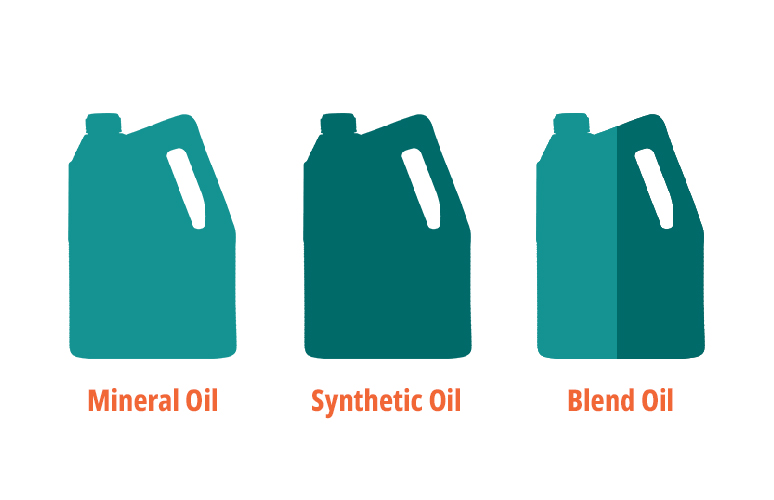
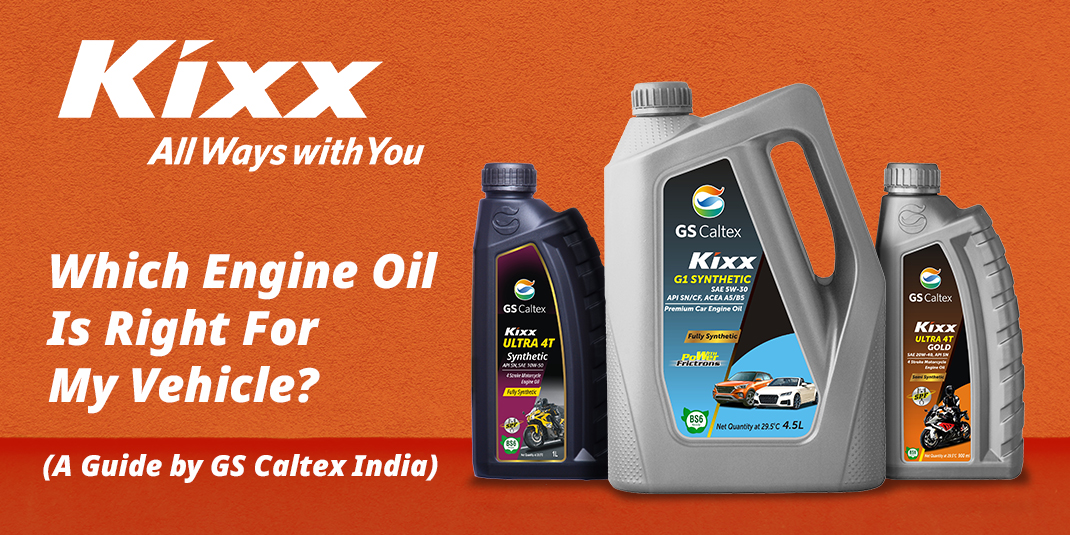
Choosing the right engine oil for your vehicle is essential to ensure optimal engine performance, longevity, and fuel efficiency. With the multitude of options available, it can be overwhelming to determine which engine oil is best suited for your specific vehicle and driving conditions. In this blog, we will provide you with a comprehensive guide to selecting the perfect motor oil, with a focus on the high-quality products offered by GS Caltex India.
To select the right engine oil for your vehicle, consider the following factors:
Before delving into the intricacies of engine oil selection, it is important to understand your vehicle's requirements. Refer to the owner's manual or consult with a trusted mechanic to determine the recommended oil viscosity, specifications, and oil change intervals specific to your vehicle's make and model.
Viscosity refers to the oil's resistance to flow. It plays a critical role in ensuring optimal lubrication and protection for your engine. Engine oils are classified using a combination of letters and numbers, such as 5W-30 or 10W-40. The first number (e.g., 5W or 10W) indicates the oil's viscosity at low temperatures, while the second number (e.g., 30 or 40) represents the viscosity at higher temperatures. Choosing the right viscosity grade ensures proper lubrication across a range of operating conditions, facilitating smooth engine operation and reducing wear and tear.
An engine oil specification defines the oil's performance requirements and properties. These specifications encompass various aspects such as viscosity, friction reduction, engine cleanliness, and compatibility with emission control systems. When selecting engine oil, ensure that it meets or exceeds the specifications recommended by your vehicle manufacturer to ensure compatibility and performance.
Engine oil specifications, such as viscosity grades and performance ratings, play a crucial role in determining which oil is suitable for your vehicle. The viscosity grade, represented by numbers like 5W-30 or 10W-40, indicates the oil's flow characteristics at different temperatures. The performance ratings, such as API (American Petroleum Institute) and ACEA (Association des Constructeurs Européens d'Automobiles), ensure that the oil meets industry standards for engine protection and performance.
If you're uncertain about which engine oil is best for your vehicle, don't hesitate to seek advice from automotive experts or authorized service centers.
Conventional oil is basic engine oil suitable for older vehicles with simple engine designs. It provides decent protection and lubrication but may require more frequent oil changes compared to synthetic oils.
Synthetic oil is chemically engineered for superior performance, especially in extreme temperatures. It offers enhanced lubrication, reduces friction, and provides improved engine protection. Synthetic oil is recommended for modern engines, high-performance vehicles, and severe driving conditions.
Synthetic blend oil combines conventional and synthetic oils, offering a balance between performance and cost-effectiveness. It suits vehicles with moderate driving conditions, providing improved engine protection and better resistance to breakdown compared to conventional oil alone.

GS Caltex India, a trusted provider of lubricant solutions, offers a diverse range of automotive lubricants designed to meet the unique needs of various vehicles and driving conditions. Let's explore some of their exceptional motor oil products:

Designed for high-performance motorcycles. Provides excellent engine protection and optimized clutch performance. Suitable for air-cooled and liquid-cooled engines.
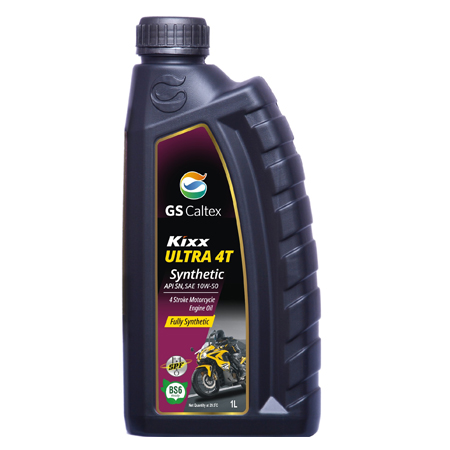
Fully synthetic oil for high-performance motorcycles. Offers exceptional protection, thermal stability, and engine cleanliness. Suitable for demanding riding conditions.

Fully synthetic oil for gasoline engines. Ensures high-performance, fuel economy, and reduced emissions. Suitable for passenger cars and light-duty vehicles.

Formulated for diesel engines. Provides superior protection, soot control, and extended drain intervals. Suitable for commercial vehicles and heavy-duty applications.
GS Caltex India's Kixx engine oil products offer a range of options for different engines and applications. From high-performance motorcycles to passenger cars, light-duty vehicles, and heavy-duty diesel engines, Kixx engine oils deliver excellent protection and performance. Choose the appropriate Kixx engine oil based on your vehicle's needs for optimal engine health and efficiency.
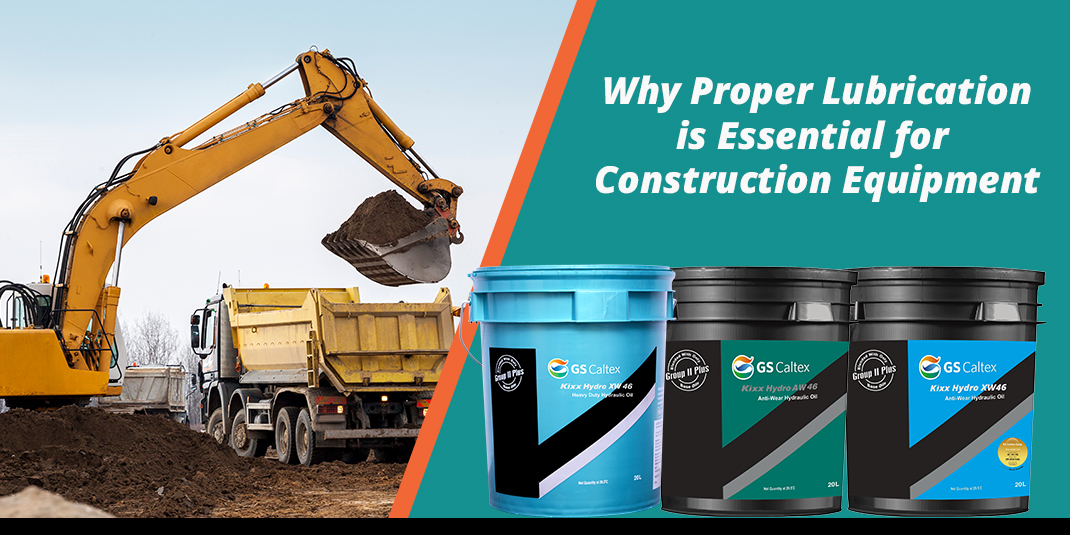
Importance of Proper Viscosity in Construction Equipment
GS Caltex India's High-Performance Construction Lubricants
Oxidation and Aeration: The Enemies of Efficiency
Understanding Oxidation and Aeration
Effects of Oxidation and Aeration on Construction Equipment
GS Caltex India's Heavy-Duty Lubricants with Enhanced Oxidation and Aeration Resistance
Consultation: Tailored Lubrication Solutions for Your Equipment
Importance of Professional Lubrication Consultation


A bike's engine is its beating heart. The best manufacturer in town may provide the newest model, but if the engine of that bike is not properly maintained, the entire riding experience may be ruined.
Everything seems crucial, but how and what does spending more on higher quality aid your engine? Every time we get an oil change, we are informed that the oil has thickened or depleted and needs to be changed, but how can you choose the right oil for your engine's needs? Here are some reasons for using GS Caltex Engine oil for your bike to dispel this skepticism.
High RPM puts more strain on engine parts, necessitating more wear protection. Oils are subjected to greater loading and shearing pressures, which can cause lubricant film rupture and viscosity reduction, both of which lead to an increase in wear. High RPM also raises the chance of foaming, which can lower an oil's capacity to carry the load and make it more susceptible to wear. Look for the best engine oil for the bike to keep it running for a longer time period.
Heat is transferred away from the lubricated parts using synthetic engine oil. The oil in the oil pan is cooled by the effective engine oil. It is advised to use engine oil for a bike with strong heat resistance to minimize carbon production from breakdown.
Kixx Ultra 4T range of engine oils is one of the finest engine oils for bikes. These engine oils help you to maintain your performance of your(need another word as the fleet is often referred to as more than 1 vehicle). This oil is exclusively designed for new-age 4-stroke motorbikes to improve their power.
Engine oil's primary function is to ensure that all engine components receive adequate lubrication, hence minimizing friction and wear. Engine Oil lubricates the moving parts and creates a slick coating over the parts... Ensuring continuous oil supply to each component and thus reducing the wear is the main function of the lubrication system. continuous oil supply. Reduced friction also depends on the proper oil viscosity. Selecting a smart lubricant for your smart bikes thus becomes an important decision.
Smart engine oil can enhance the power of the bike as well as reduce the maintenance cost too. It is essential to choose the finest engine oil to achieve the best performance and maintain the pickup of your bike. Some of the best engine oil for bikes includes Kixx Ultra 4T Synthetic, Kixx ULTRA 4T POWER, Kixx ULTRA 4T GOLD, Kixx ULTRA 4T XP, and Kixx ULTRA 4T SCOOTER. These products are thoughtfully made to provide optimum seal protection and lubricate the bike.
Better fuel combustion results from the engine oil running smoothly and with the least amount of friction. Smooth working of all the components helps in reducing the fuel loss during power. Kixx Ultra 4T range of oils ensure that the piston and the crank don’t have to work harder as the long drain interval ensures that the oil is not used up while generating additional power and thus ensures lower friction. Greater stress results from greater power density.
Compared to car engines, motorcycle engines create more horsepower per cubic inch. Additionally, they frequently use greater compression ratios. Higher engine temperatures and more stress are caused by increased power density and compression. Motorcycle oil must work harder to combat wear, deposits, and chemical deterioration as a result.
Moreover, if you are owning a scooter and have experienced some decline in power and compression then, Kixx ULTRA 4T SCOOTER can be one of the best choices. It is specially crafted for scooters. The high-quality engine oil cleanses your engine and enhances lubrication. It helps you to get maximum power density.
Base oil and additives are the two main components found in all engine oils. While the base oil aids in lubrication, the additives assist clean the engine, which offers further engine protection. All the engine parts it comes into contact with are cleaned by the engine oil. The additives in use remove the carbon buildup that has accumulated on the motor parts.
Finally, it is advised for bike owners to use synthetic engine oil for a better and smoother riding experience if they wish to increase the lifespan of their vehicles. To maintain a healthy engine, one needs to also keep changing the engine oil for the bike as per intervals suggested in the user manual of the OEM
GS Caltex India brings to you a wide range of premium engine oil for bikes. Now enjoy the exhilarating ride and maintain your prized possession with utmost ease only with GS Caltex India. Visit our website now!
There’s an old adage that an ounce of prevention is worth a pound of cure. Making sure your oil levels are topped up is the type of easy, preventive...
There’s an old adage that an ounce of prevention is worth a pound of cure. Making sure your oil levels are topped up is the type of easy, preventive maintenance that can save you both time and money. We have already discussed how often you should change your engine oil, so now let’s look at the how often you should top up to prevent damage and keep your engine running smoothly.


Hello there! If you're a bike enthusiast or an everyday rider, you know that choosing the best engine oil for your bike is critical for its performance and longevity. That's where GS Caltex India comes in. In this blog, we'll discuss why GS Caltex India is the best engine oil for your bike and how you should top up your engine oil to ensure the best results.
GS Caltex India is one of the most trusted engine oil brands in the market. Their range of engine oils is specially designed to provide superior performance and protection to your bike's engine. Here are some reasons why GS Caltex India stands out:
To keep your bike's engine in top shape, you should ensure that the engine oil level is always within the recommended range. Here are some instances when you should top up your engine oil:
Topping up your bike's engine oil is a straightforward process. Here are the steps you should follow:
In conclusion, GS Caltex India is the best engine oil for your bike. With its superior quality, better fuel efficiency, extended engine life, and improved performance, you can be assured that your bike's engine is well-protected. To ensure the best results, check your engine oil level regularly and top up as required using the right engine oil. Happy biking!
MOTORCYCLES and music, for the most part, go hand in hand. The reason is that they are both relatable to us in the sense that they liberate us. What lyrics and chords can do for someone when they put their headphones on, motorcycles can do just as much when you get your gear and saddle up. Imagine a hard day at work and imagine putting on your favourite track at the end of it. Now, imagine a hard week at work and imagine going for an early morning ride on a Sunday. We can bet that the effects are similar.
Modern engines are packed with technologies built to improve efficiency and power. Equipped with direct injection and turbocharging systems while running at higher cylinder pressure, these engines require oils...

Modern engines are packed with technologies built to improve efficiency and power. Equipped with direct injection and turbocharging systems while running at higher cylinder pressure, these engines require oils that can maximize performance and still resist wear.
To meet the needs of modern engines, Kixx recently announced the launch of the G1 SP engine oils. The lineup meets the API SP standard, which is the latest industry specification issued by the American Petroleum Institute. But what does that actually mean for you and your vehicle? Here’s everything you need to know about the API SP standard and the Kixx G1 SP lineup.
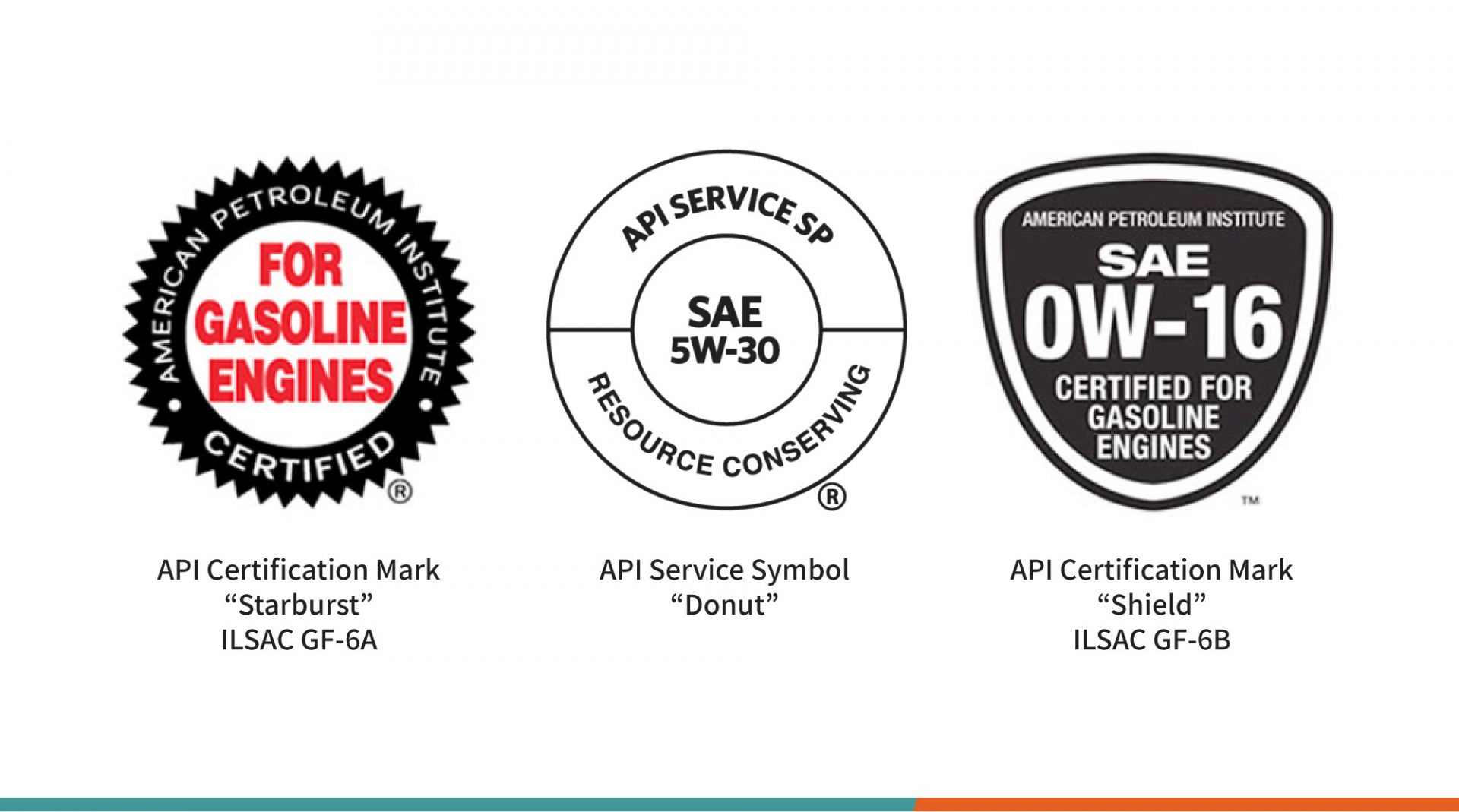 The API SP standard is fully backward compatible with previous API specifications, including API SM, SN and SN Plus. ILSAC GF-6A is suitable for vehicles that previously used GF-5 lubricants, while GF-6B is only compatible with engines built for this specific engine oil category.
Products that meet the API SP standard will carry the API Service Symbol “Donut”. Meanwhile, products licensed under ILSAC GF-6A and ILSAC GF-6B will display the API Certification Mark “Starburst” and the new API Certification Mark “Shield” respectively.
The API SP standard is fully backward compatible with previous API specifications, including API SM, SN and SN Plus. ILSAC GF-6A is suitable for vehicles that previously used GF-5 lubricants, while GF-6B is only compatible with engines built for this specific engine oil category.
Products that meet the API SP standard will carry the API Service Symbol “Donut”. Meanwhile, products licensed under ILSAC GF-6A and ILSAC GF-6B will display the API Certification Mark “Starburst” and the new API Certification Mark “Shield” respectively.

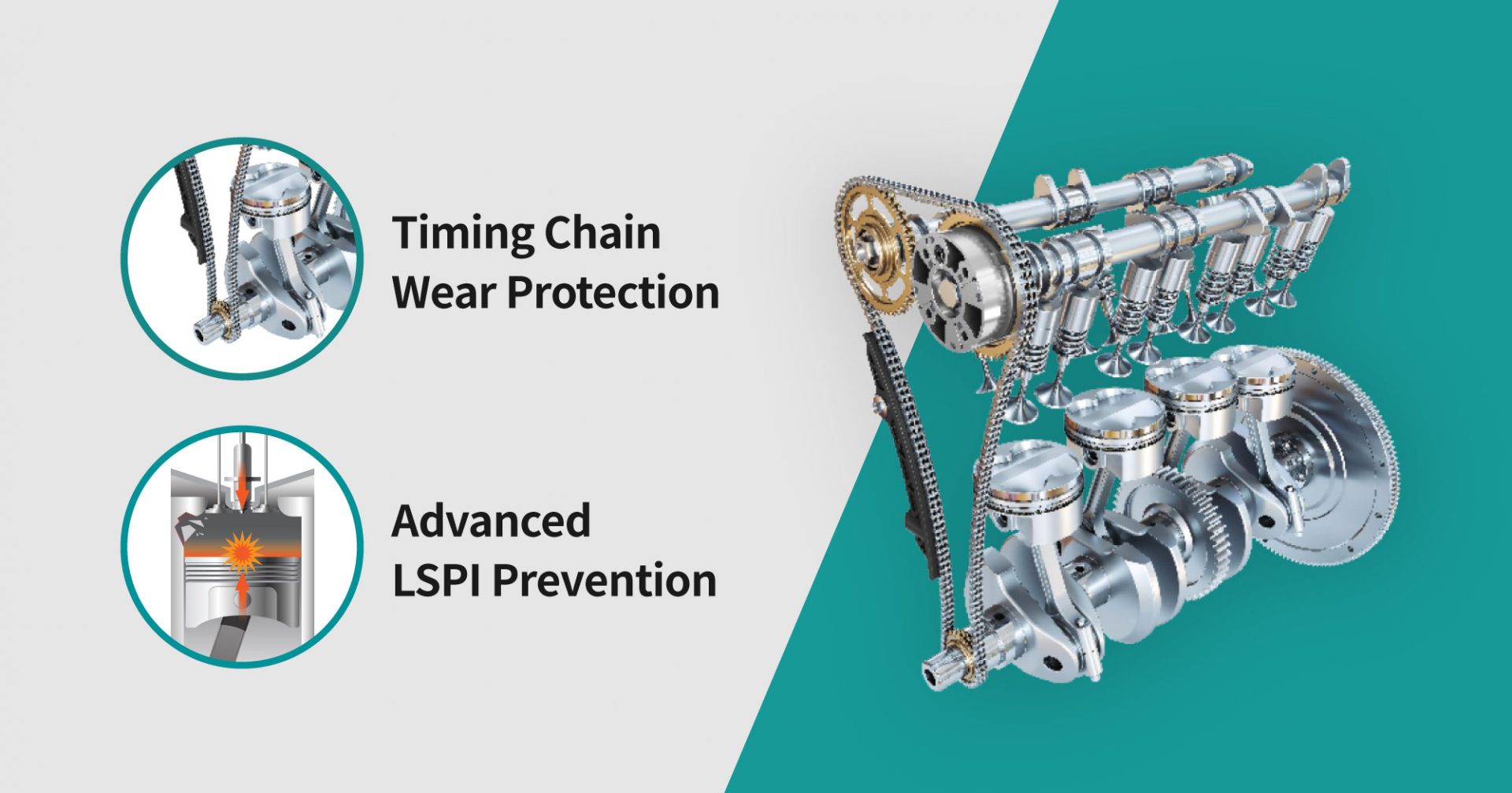 The performance of modern engines depends on proper actuation of intake and exhaust valves, which is maintained by either a timing chain or a timing belt. Recently, timing chains are making a comeback due to the added advantage of durability compared with timing belts. However, fracture, abrasive wear or elongation of the timing chain can reduce engine output and increase emissions.
The API SP standard requires engine oils to pass two new tests specifically targeting the challenges modern engines face. These tests ensure that SP certified lubricants can prevent the occurrence of LSPI and minimize timing chain elongation. In addition, the new standard also requires engine oils to show performance improvements from the previous generation in various categories, including oxidation stability and sludge control. This means that the new SP standard does not only meet every pre-existing standards but also provides enhanced, all-round protection for the most critical parts of the engine.
The performance of modern engines depends on proper actuation of intake and exhaust valves, which is maintained by either a timing chain or a timing belt. Recently, timing chains are making a comeback due to the added advantage of durability compared with timing belts. However, fracture, abrasive wear or elongation of the timing chain can reduce engine output and increase emissions.
The API SP standard requires engine oils to pass two new tests specifically targeting the challenges modern engines face. These tests ensure that SP certified lubricants can prevent the occurrence of LSPI and minimize timing chain elongation. In addition, the new standard also requires engine oils to show performance improvements from the previous generation in various categories, including oxidation stability and sludge control. This means that the new SP standard does not only meet every pre-existing standards but also provides enhanced, all-round protection for the most critical parts of the engine.
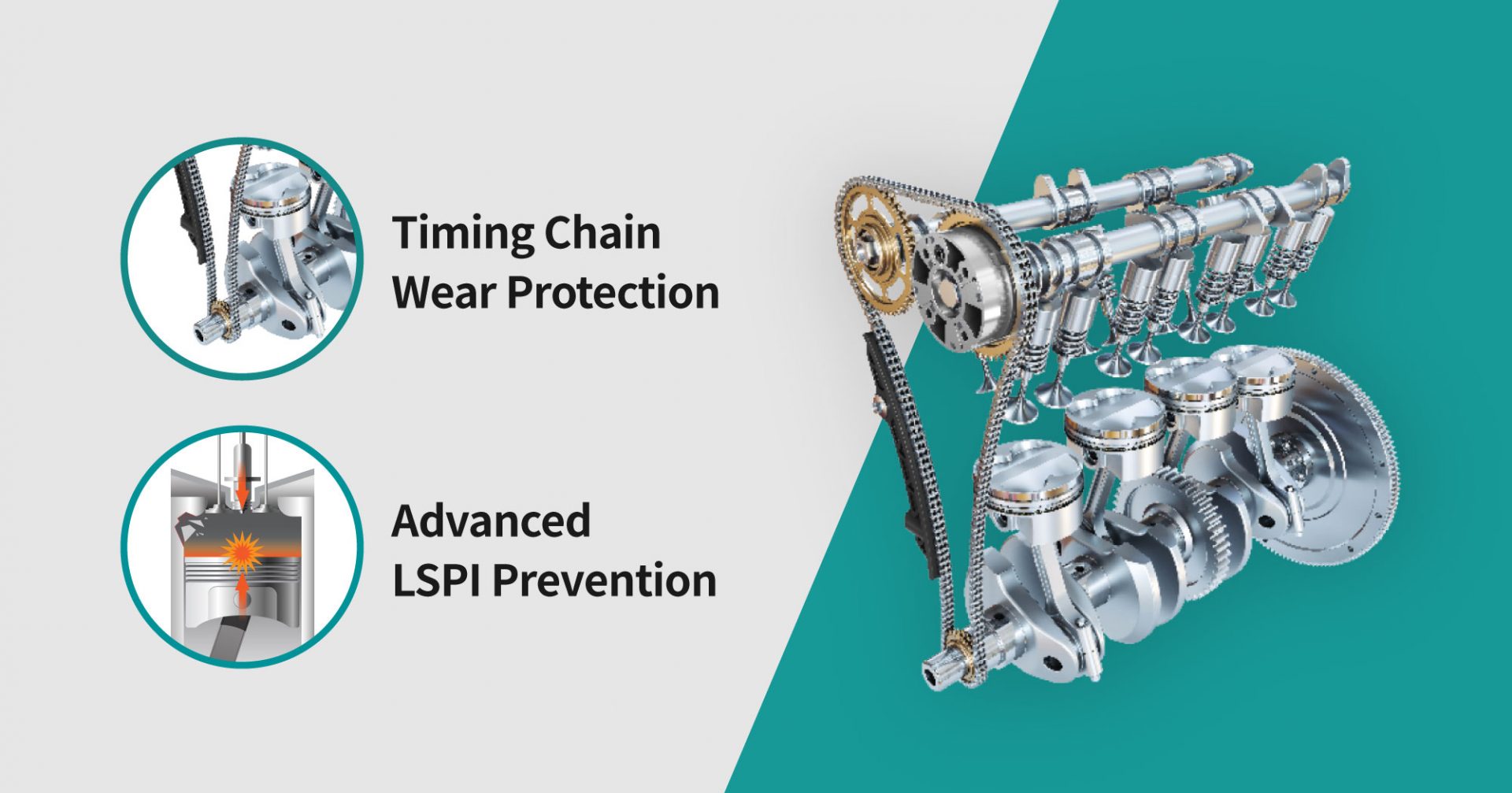 The performance of modern engines depends on proper actuation of intake and exhaust valves, which is maintained by either a timing chain or a timing belt. Recently, timing chains are making a comeback due to the added advantage of durability compared with timing belts. However, fracture, abrasive wear or elongation of the timing chain can reduce engine output and increase emissions.
The API SP standard requires engine oils to pass two new tests specifically targeting the challenges modern engines face. These tests ensure that SP certified lubricants can prevent the occurrence of LSPI and minimize timing chain elongation. In addition, the new standard also requires engine oils to show performance improvements from the previous generation in various categories, including oxidation stability and sludge control. This means that the new SP standard does not only meet every pre-existing standards but also provides enhanced, all-round protection for the most critical parts of the engine.
The performance of modern engines depends on proper actuation of intake and exhaust valves, which is maintained by either a timing chain or a timing belt. Recently, timing chains are making a comeback due to the added advantage of durability compared with timing belts. However, fracture, abrasive wear or elongation of the timing chain can reduce engine output and increase emissions.
The API SP standard requires engine oils to pass two new tests specifically targeting the challenges modern engines face. These tests ensure that SP certified lubricants can prevent the occurrence of LSPI and minimize timing chain elongation. In addition, the new standard also requires engine oils to show performance improvements from the previous generation in various categories, including oxidation stability and sludge control. This means that the new SP standard does not only meet every pre-existing standards but also provides enhanced, all-round protection for the most critical parts of the engine.
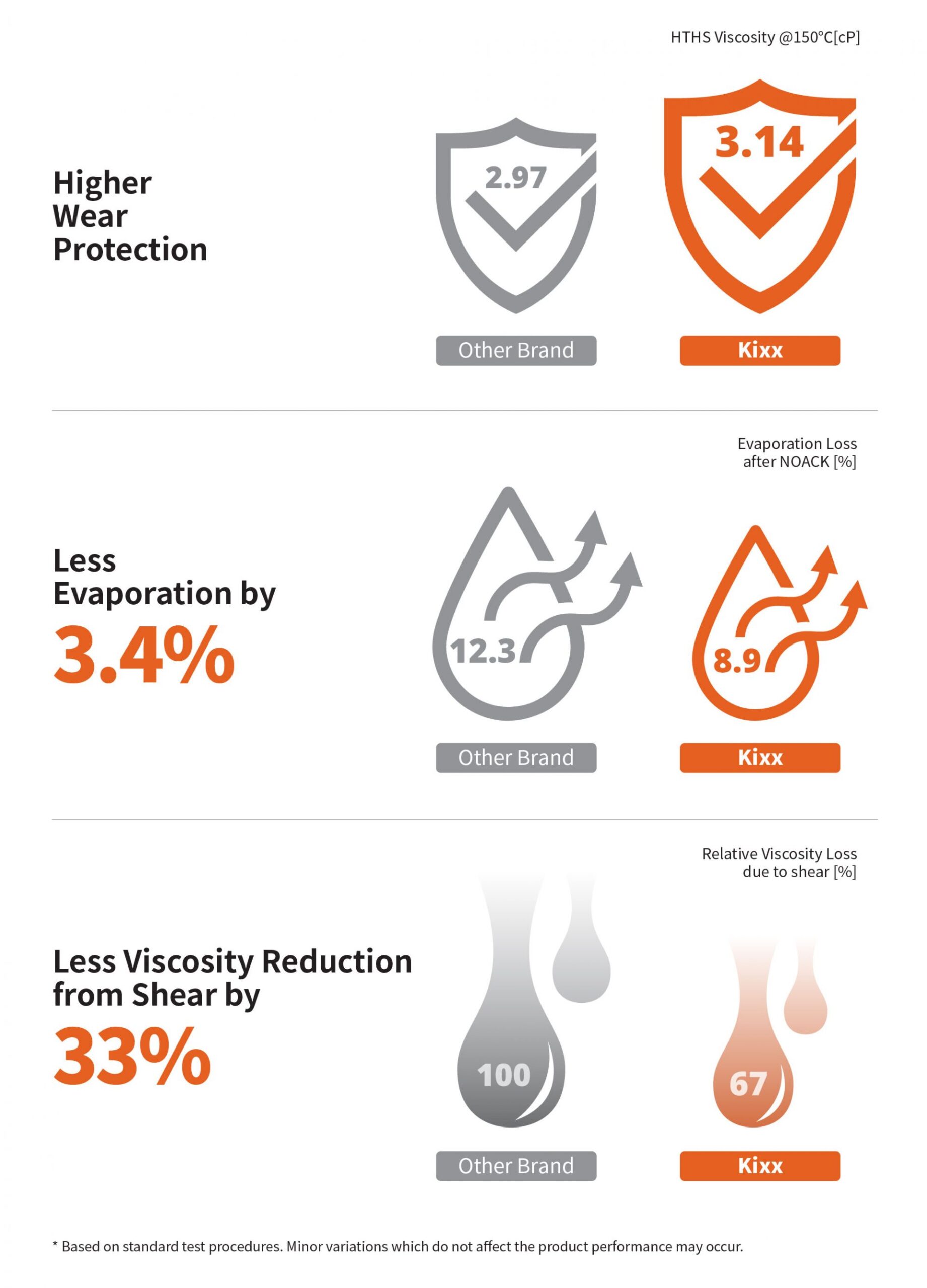 With a high HTHS viscosity and an enhanced lubricant film, the Kixx G1 SP lineup strengthens protection for key engine parts and extends the service life of engines. The lubricants are also engineered to minimize evaporation and reduce the frequency of oil top-up between service intervals. Featuring Kixx’s exclusive Triple Double Technology, which combines friction, oxidation and wear reduction with temperature and shear stability, G1 SP engine oils enable smoother engine operations and boost engine durability.
Kixx’s new G1 SP line will be launching in global markets starting from August 3. For more information on Kixx’s SP products, please visit https://www.kixxoil.com.
With a high HTHS viscosity and an enhanced lubricant film, the Kixx G1 SP lineup strengthens protection for key engine parts and extends the service life of engines. The lubricants are also engineered to minimize evaporation and reduce the frequency of oil top-up between service intervals. Featuring Kixx’s exclusive Triple Double Technology, which combines friction, oxidation and wear reduction with temperature and shear stability, G1 SP engine oils enable smoother engine operations and boost engine durability.
Kixx’s new G1 SP line will be launching in global markets starting from August 3. For more information on Kixx’s SP products, please visit https://www.kixxoil.com.
Choosing the right engine oil can be a tough task. The right engine oil can prevent corrosion and overheating to keep your vehicle running at its best for years...

Choosing the right engine oil can be a tough task. The right engine oil can prevent corrosion and overheating to keep your vehicle running at its best for years to come. But the wrong engine oil could have your car or motorcycle breaking down faster than it needs to, requiring more frequent repairs.
Thankfully organizations exist to monitor the engine oil industry and set standards for engine oil specifications. These standards can help drivers learn how to choose an engine oil and let auto makers approve which oils are best for their engines.
Let’s take a look at some of the most important engine oil specifications, who sets them, and how they can help you keep your vehicle running smooth.

Today’s engines are packed with features specially designed to improve efficiency and power in your engine, with new tech being developed every year. In order to get the most out of features like direct injection and modern turbocharging systems, you need an engine oil that’s well equipped to maximize performance while prolonging your engine life.
When shopping for engine oils, you might see a lot of confusing letters like API, ILSAC, JASO, or ACEA written on each product label. Those aren’t industry jargon put there to confuse you – they’re acronyms for the organizations that monitor the engine oil industry and set standards for engine oil specifications. Those specifications let drivers and vehicle manufacturers know the performance and quality of an engine oil.
First, here are a few of the top organizations setting engine oil specs globally.
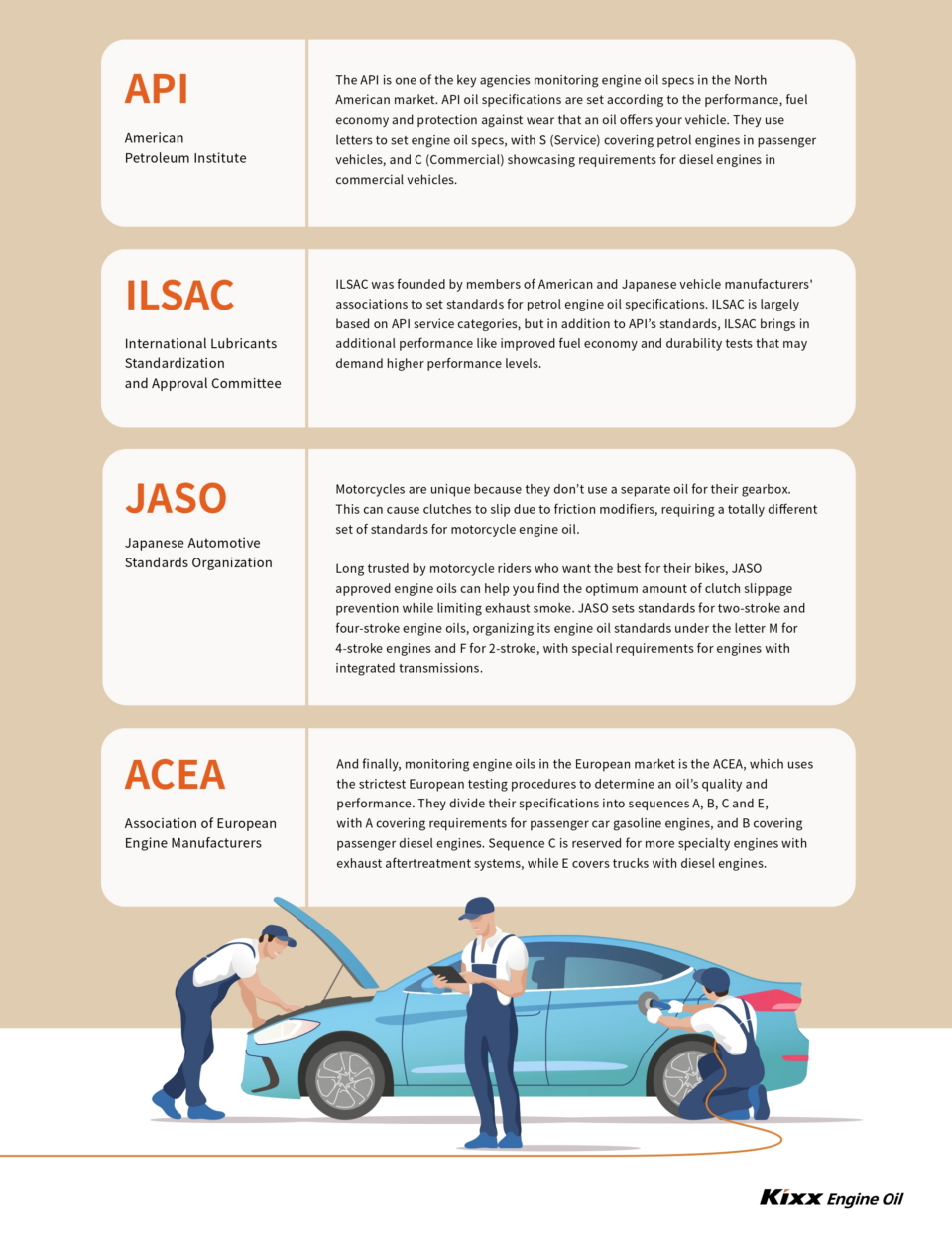
When shopping for engine oils, you’ll likely see some of these letters as you shop for the right product. But since the auto industry is always evolving, these agencies are evolving their requirements as well.
To keep up with the fast-evolving auto industry, these committees regularly update their standards to reflect the most cutting-edge advancements in engine output, fuel efficiency, and emissions reduction. Here are a few of the newest standards to watch for from each agency, and why they matter for your vehicle.
API’s newest engine oil standard, API SP, came 10 years after its predecessor and marked an important milestone in making engine oils more protective and efficient. It comes after API developed seven new tests to create a stricter standard for engine oils, with special attention being placed on timing chain protection and LSPI (low-speed pre-ignition) prevention – two features that are growing increasingly important for modern engine oils.
The API SP standard is fully backward compatible, covering all of their previous standards and pushing new requirements in protection and performance from today’s engine oils.
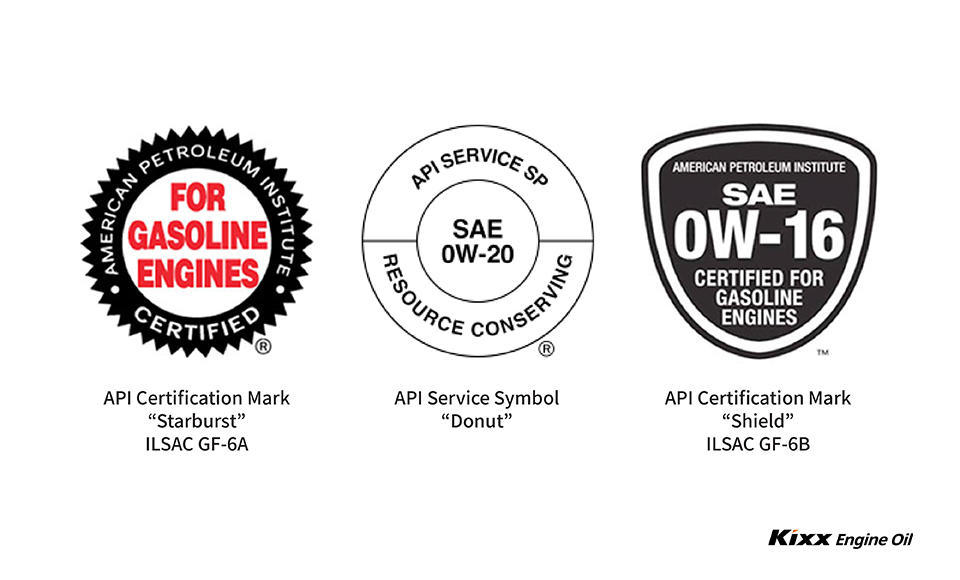
A growing trend for greater fuel economy and smaller engines pushed ILSAC to develop ILSAC GF-6 – an all-new engine oil standard for today’s passenger cars.
The downsizing trend has led to a rise in what’s called TGDI (Turbocharged Gasoline Direct Injection), which calls for a whole new kind of engine oil. Like the API-SP, ILSAC GF-6 has stricter requirements for LSPI prevention and timing chain protection, while raising the bar for fuel efficiency by requiring engine oils to have a lower viscosity. ILSAC has also set up seven new tests to ensure today’s oils are offering the best possible engine protection.
JASO’s T903 standard has been guaranteeing the quality of motorcycle engine oil for four-stroke engines since 1998, while M345 for two-strokes was introduced in 1994.
The T903 is further divided into two performance categories: JASO MA for motorcycles with a wet clutch, and JASO MB for scooters that use an automatic transmission. F or two-stroke engine oils, JASO’s M345 standards fall under FA, FB, FC and FD quality levels. FC represents the highest quality, while FD offers similar benefits but with a higher detergency requirement. Both standards ensure the optimum amount of clutch slippage prevention for any motorcycle you ride.
In 2021, ACEA replaced their 2016 European engine oil sequences with a new version that reflected some of the most important updates in the industry. Much like the API and ILSAC, the ACEA’s new tests and standards put an emphasis on LSPI prevention and wear protection. They also offer versions for both high and low SAPS (Sulphated Ash, Phosphorous, and Sulphur) oils, since it’s up to each manufacturer which level of SAPS will be most effective for their vehicle.
The first new category to watch for from the ACEA are High SAPS A7/B7-21, providing LSPI and wear protection for turbocharged gasoline engines as well as turbocharger compressor deposit (TCCD) protection for modern diesel engines.
The second new category is C6-21 (0W20), which checks for similar LSPI and TCCD protection in low SAPS oils.
The ACEA has added five strict new tests for today’s engine oils, while retiring two of the tests they used previously.
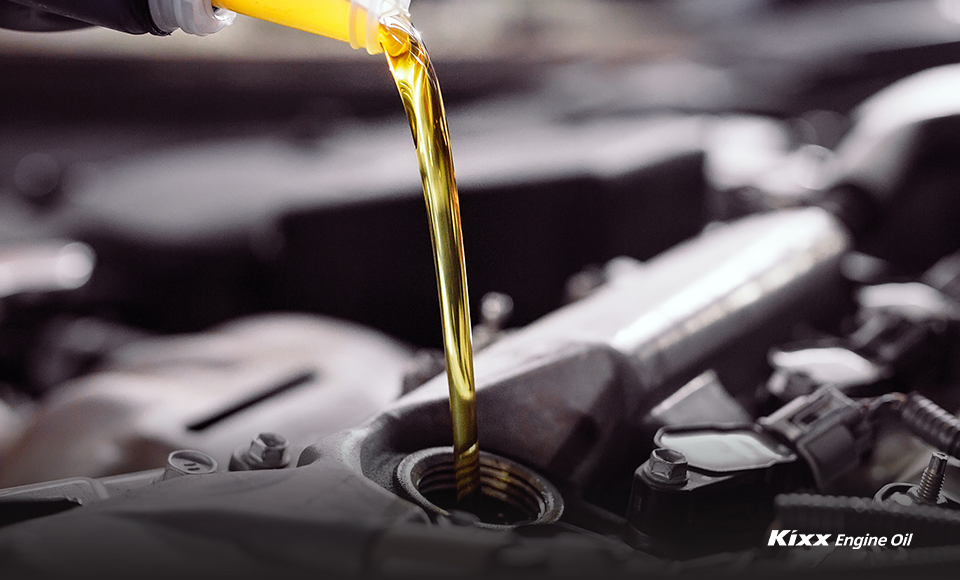 These are a few of the core standards to look for when shopping for an engine oil, though there are other standards such as SAE and various other OEM approvals. A basic understanding of these labels and specs could make all the difference as you shop for the right engine oil and choose what’s best for your vehicle.
Stay tuned to Kixx newsroom smart tips for more smart tips on how to care for your vehicle.
These are a few of the core standards to look for when shopping for an engine oil, though there are other standards such as SAE and various other OEM approvals. A basic understanding of these labels and specs could make all the difference as you shop for the right engine oil and choose what’s best for your vehicle.
Stay tuned to Kixx newsroom smart tips for more smart tips on how to care for your vehicle.

When it comes to taking care of your car, one of the most important things you can do is to make sure that you use the right engine oil. GS Caltex India is a popular brand of fully synthetic engine oil that is known for its high-quality performance and durability. In this article, we will provide you with a comprehensive guide to understanding engine oil specs and the latest engine oil specifications.
The first thing you need to understand when it comes to engine oil specs is that they can be quite complex. However, there are a few key things that you should be aware of. The first thing is the viscosity rating. This refers to how thick the oil is and how well it flows. The second thing is the API service category. This is a rating system that is used to indicate the performance level of the oil.
As technology advances, so do engine oil specifications. The latest engine oil specifications are designed to provide better protection for your engine and to help your car run more efficiently. Here are some of the latest engine oil specifications:
Now that you understand the basics of engine oil specs and the latest engine oil specifications, you may be wondering why you should choose GS Caltex India fully synthetic engine oil. Here are some of the key benefits:
In conclusion, understanding engine oil specs and the latest engine oil specifications is important if you want to make sure that your car is running smoothly and efficiently. GS Caltex India's fully synthetic engine oil is a great choice for those who want superior performance and protection for their engines. So, the next time you are in the market for engine oil, consider choosing GS Caltex India fully synthetic engine oil for your car.